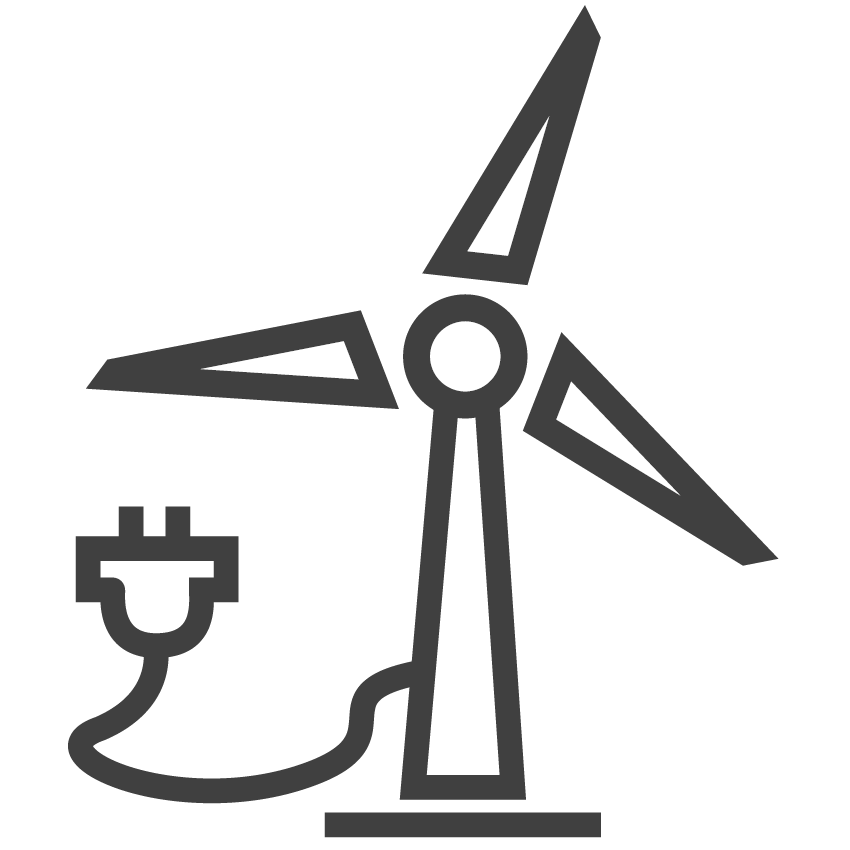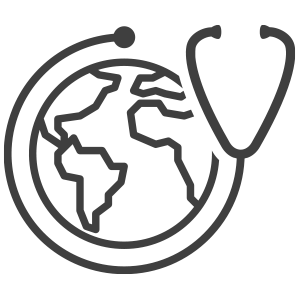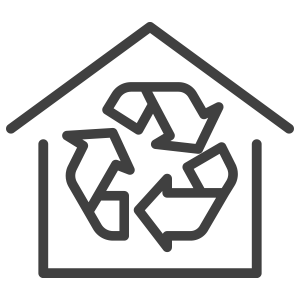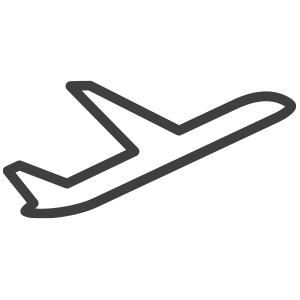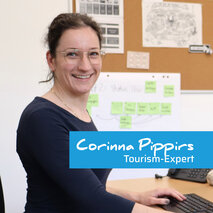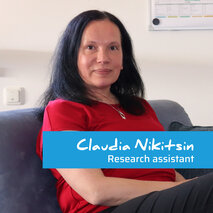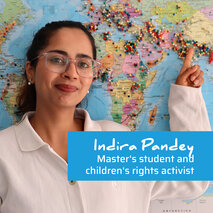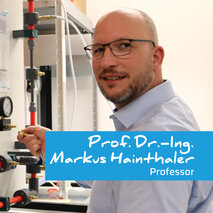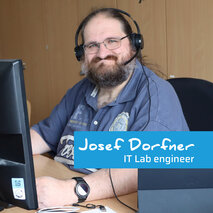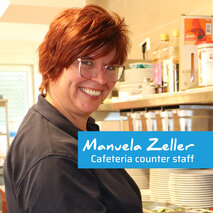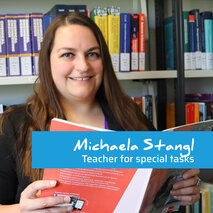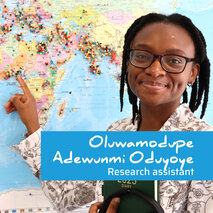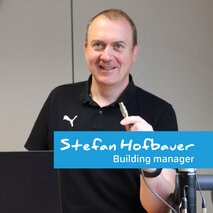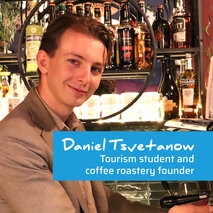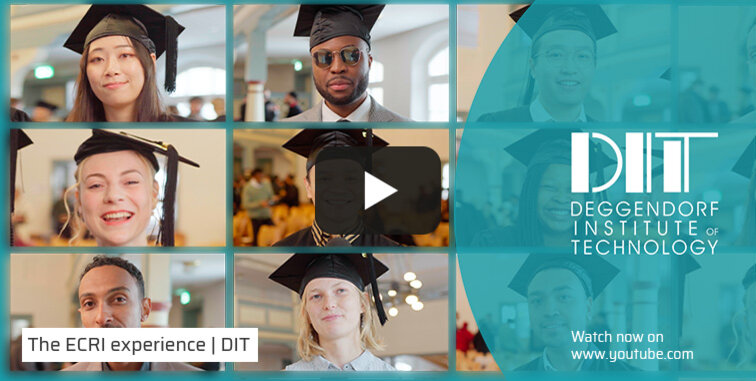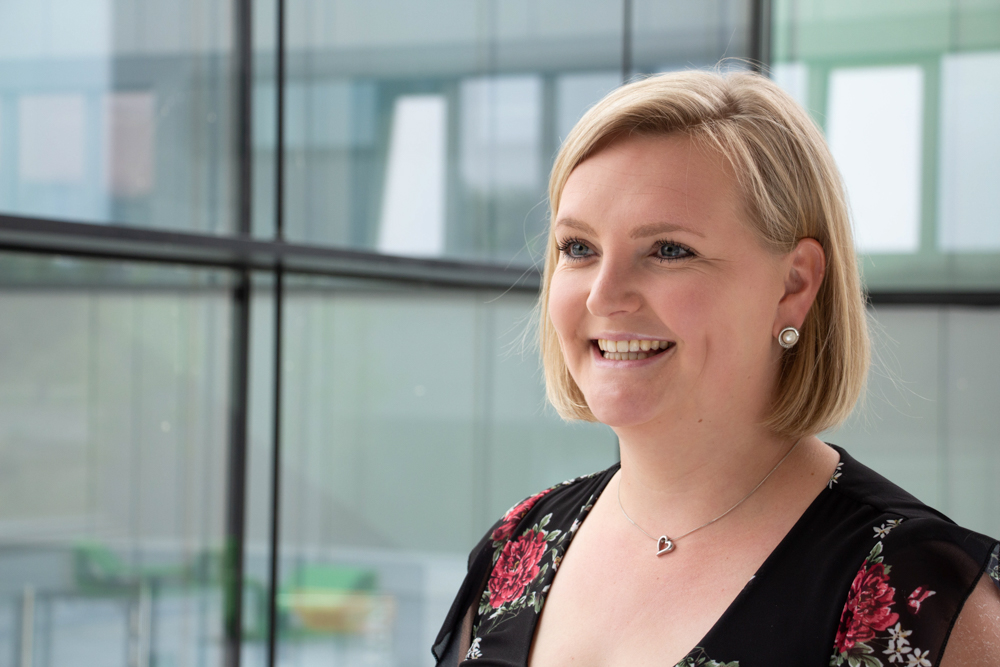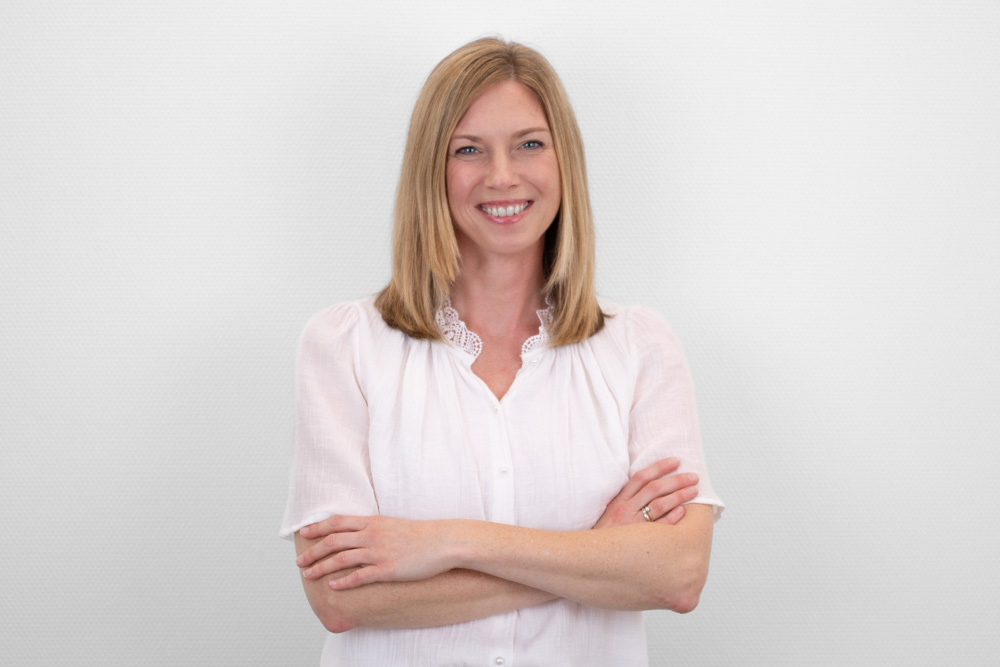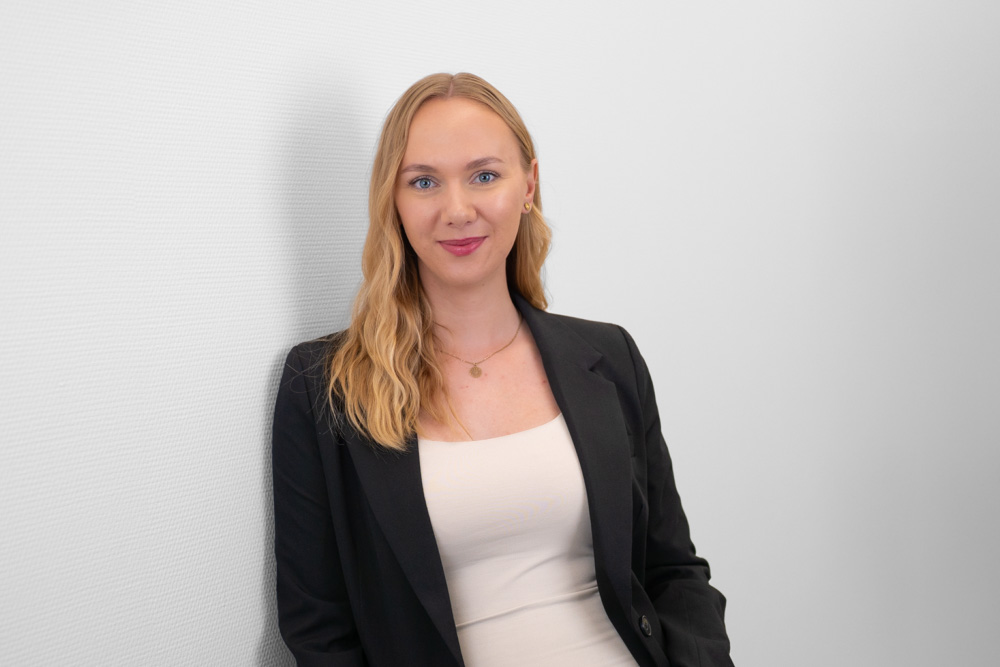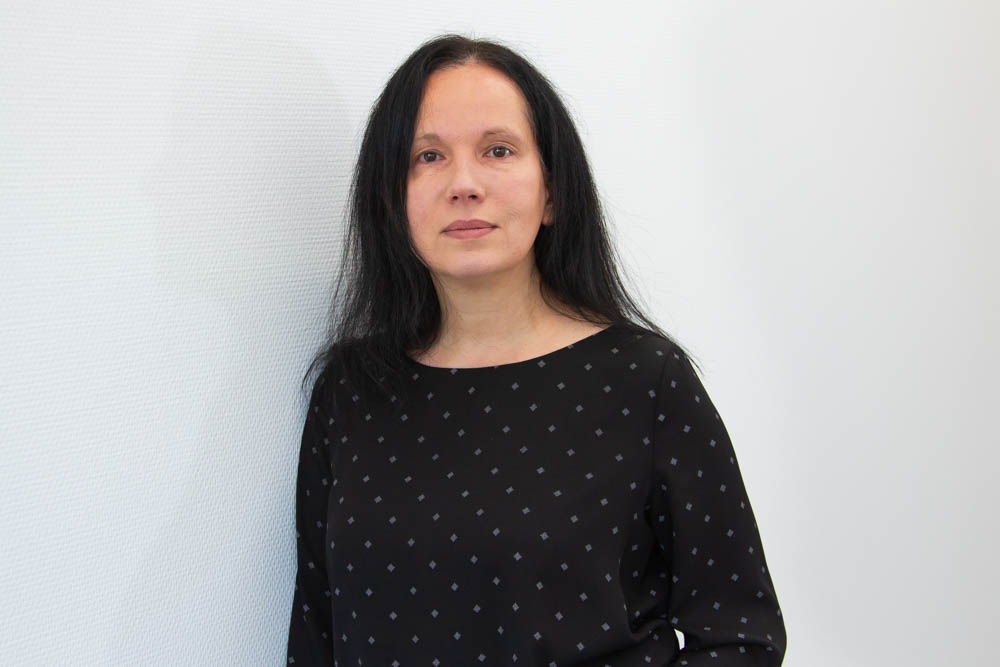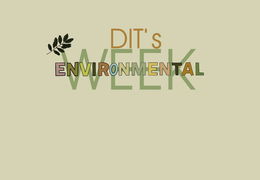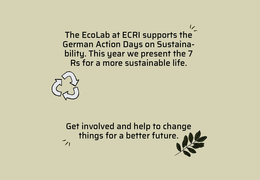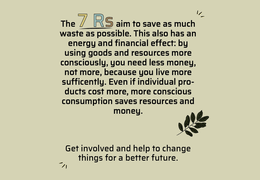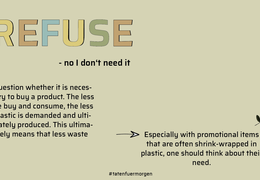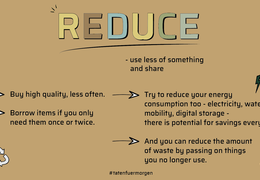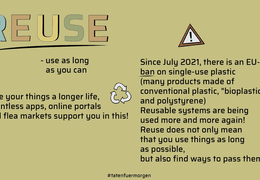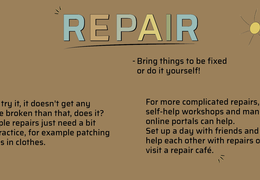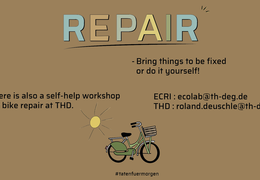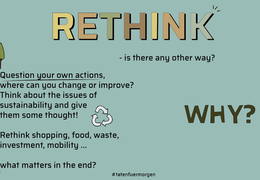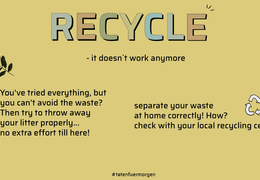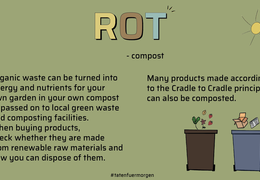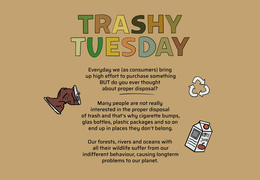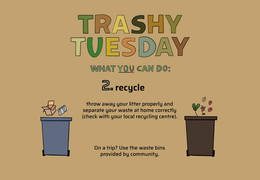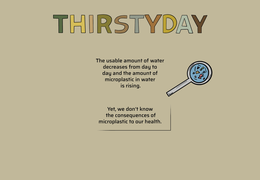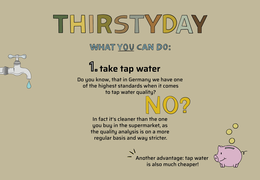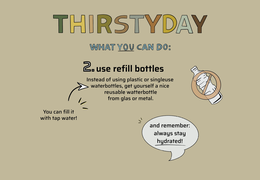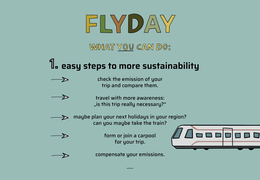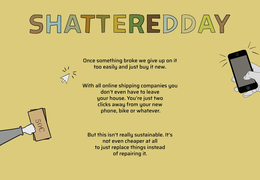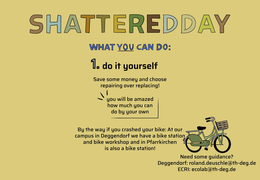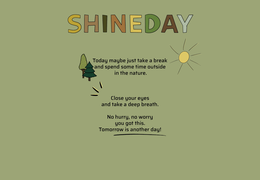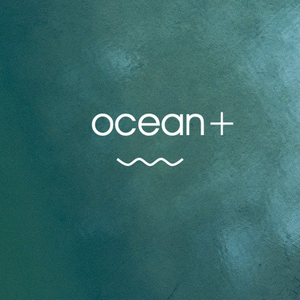european campus rottal-inn
an english campus for students with global aspirations
One World-One Campus: The European Campus Rottal-Inn (ECRI) is the most multicultural out of all the study locations of the Deggendorf Institute of Technology’s (DIT) and one of its eight faculties. Because all courses are exclusively taught in English, the campus is particularly attractive for international students: ECRI offers people from all over the world the opportunity to study in Europe and become changemakers who contribute to the achievement of sustainable development goals globally but also regionally. They can drive change to improve the lives of the entire community involved. As an intercultural microcosm ECRI promotes international talents across borders and personal skills of the students within crossdisciplinary group work.
All courses and labs, especially the Sustainability and the Healthy and Sustainable Buildings Labs, value environmentalism and teach students everything about ecological awareness in order to be able to shape the future of our planet.
Bachelor.
Master.
events
the faculty at a glance
Impressions
1,600 students, 23 professors, ten degree programs: Ten years after its founding, the European Campus Rottal-Inn of Deggendorf Institute of Technology is in a strong position. As part of the anniversary celebrations in 2025 in Pfarrkirchen, we are introducing ten people who have contributed to its success story. Here you can find all portraits.
Graduates about their ECRI experience.
labs & projects
With the best technical equipment, the labs and workshops offer the basis for modern and practical hands-on education. Modern technology based on industrial standards make it possible for you to deepen the knowledge you've acquired in lectures during all phases of your course. In addition, labs provide the basis for numerous R&D projects and therefore students have a wide range of bachelor's and master's projects to work on.
The European Campus Rottal-Inn (ECRI) is making history with the approval of the "European Campus of Studies and Research" as a European Grouping of Territorial Cooperation (EGTC) as the only EGTC in Bavaria in the university sector. The EGTC is an instrument of the EU, which serves to promote cross-border, transnational or interregional cooperation within the EU. Learn more here: Starting point for unique european cooperation
Multifunctional Lab for Chemistry and Material Science
- Basic training in scientific-technical work
- Focus on renewable energies and energy storage
- Materials for healthy and sustainable construction
DigiHealth & Smart Tourism Lab
- Design thinking processes for innovative tourism and medical products and services
- Studies and research on advanced tourist experiences and sustainable healthcare
- Evaluating the use of smart tourism and digital health software and equipment
Sustainability Lab
- Education and research with focus on sustainable development through innovative
- teaching, activities, field internships, excursions and sustainable lifestyles
- Sustainable social, economical, ecological projects within the partner network
EEE Lab for Electrical and Energy Engineering
- Focus on measurement and control technology, industrial communication,
- automation technology, energy technology and renewable energies
- Teaching graduate and project workers as well as research and development activities
HSB Lab for Healthy and Sustainable Buildings
- Learning how to use measurement technology
- Experiencing sustainable building materials and technology
- Training „to be old“: Wheelchair training and age simulation suits
- Heliodon: Analysis of the sun‘s position and the impact on energy-efficient planning
BPP Lab for Building Products and Processes Lab in Arnstorf
- Study of room temperature, acoustics, building information modelling (BIM)
- Construction and management of buildings
university certificate for intercultural competence
The newest information can be found on this website.
positions & infos
Dean
Vice Dean
Dean of Studies
Operative Manager
Commissioner for Equal Opportunities for Women in Science and the Arts
Course Coordinators
- Energy Systems Engineering: Prof. Dr. Stefan Mátéfi-Tempfli
- International Tourism Management / Health and Medical Tourism: Prof. Dr. Erik Lindner
- Health Informatics: Prof. Dr. Thomas Spittler
- Industrial Engineering: Prof. Dr. Raimund Brotsack
- International Tourism Development: Prof. Dr. Marcus Herntrei
- Digital Health: Prof. Dr. Georgi Chaltikyan
- Healthy and Sustainable Buildings: Prof. Dr. Michael Laar
- Global Public Health: Prof. Dr. Sabine Dittrich
- Building Products and Processes: Prof. Dr.-Ing. Markus Hainthaler
- Business Administration and Service Management: Prof. Dr. Marcus Herntrei
Student advisory
- Energy Systems Engineering: Prof. Dr. Stefan Mátéfi-Tempfli
- International Tourism Management / Health and Medical Tourism: Prof. Dr. Erik Lindner
- Health Informatics: Prof. Dr. Thomas Spittler
- Industrial Engineering: Prof. Dr. Raimund Brotsack
- International Tourism Development: Prof. Dr. Marcus Herntrei
- Digital Health: Prof. Dr. Georgi Chaltikyan
- Healthy and Sustainable Buildings: Prof. Dr. Michael Laar
- Global Public Health: Prof. Dr. Sabine Dittrich
- Building Products and Processes: Prof. Dr.-Ing. Markus Hainthaler
- Business Administration and Service Management: Prof. Dr. Marcus Herntrei
Internship coordinators
- Prof. Dr. Erik Lindner (International Tourism Management / Health and Medical Tourism)
- Prof. Dr. Dominik Böhler (Health Informatics)
- Prof. Dr. Sascha Kreiskott (Industrial Engineering / Energy Systems Engineering)
- Prof. Dr. Ahmed Khoja (Building Products and Processes)
- Prof. Dr. Marcus Herntrei (Business Administration and Service Management)
Foreign representative
- Ibrahim Bader
- Prof. Dr. Roland Augustin (Bachelor Building Products and Processes)
Exam board
- Chairperson: Prof. Dr. Marcus Herntrei
- Members: Prof. Dr. Sascha Kreiskott, Prof. Dr. Robert Feicht
Faculty council:
Members by virtue of office
- Prof. Dr. Georg Christian Steckenbauer, Dean
- Prof. Dr. Sascha Kreiskott, Vice Dean
- Prof. Dr. Sabine Dittrich, Dean of Studies
- Claudia Nikitsin, Commissioner for Equal Opportunities for Women in Science and the Arts
Elected representatives Professors
- Prof. Dr. Stefan Mátéfi-Tempfli
- Prof. Dr. Robert Feicht
- Prof. Dr. Matthias Hümmer
- Prof. Dr. Michael Laar
- Prof. Dr. Roland Augustin
- Prof. Dr. Christian Rummel
Elected representatives scientific personnel
Elected representatives non-academic staff
Assistance
- Secretary: Valentin Bauer, Julian Gerhardinger
- Course assistant (ITD, GPH): Julian Gerhardinger
- Course assistant (ITM, BPP, BAS): Elisabeth Müller
- Course assistant (HI, DH): Brigitte Hiefinger
- Course assistant (IE, ESE, HSB): Verena Laura Hager
Find here the planned info sessions & activities of the International Office for the summer semester 2026.
If you have any questions, please contact Marion Bachmeier-Staab.
International Office:
Career Service:
You will find all important information and dates of the Career Service at the European Campus Rottal-Inn in our Career Service Semester Guide for the summer semester 2026.
We can't change the wind, but we can set the sails differently. (Aristotle)
The studies are an important milestone in life. During your studies, you want to build up the necessary professional and social skills and gain important experience for the future, in order to realise your own potentials later in life. On this path, you take on a lot of responsibility. You’re facing new challenges every day, which often require a lot of strength and energy.
In life, however, not everything always goes according to plan. That can also happen in your studies. Many unexpected problems can be solved quickly if you get competent help in time. It often helps at first if you can talk about your worries and problems with someone.
StuCoS
The "Student Counselling Service" (StuCoS) at the European Campus Rottal-Inn is aimed at students who feel the need to talk confidentially about themselves and their personal situation. The students are supported in looking at their own situation "from the outside in", looking for and finding solutions together, in order to ultimately get out of a difficult situation.
StuCoS sees itself as the first point of contact for very personal concerns of those seeking advice. Since the counsellor cannot be an expert in all areas, they work confidentially and closely networked with other counselling centres in the region. In this way, you will receive comprehensive professional guidance and support in your personal concerns.
Counselling services
The counselling centre “StuCoS“ can help you in the following areas and situations:
Intercultural Psychosocial counselling:
- General issues of daily life and social integration
- Conflicts with fellow students, teachers or in your relationship, etc.
- Dissatisfaction with your social situation
- Psychological stress caused by studying
- Socialising difficulties or other issues that are bothering you
Study guidance:
The following questions often come up in connection with your studies:
- What is expected of me as a student in terms of learning?
- Which study methods are best suited for daily learning in studies?
- Are my self-competences dependent on my own learning success?
Often these questions cannot be answered on their own. You will receive competent support in the following areas:
- Problems with learning through coaching, e.g.: effective exam preparation
- Stress and studying, relaxation techniques, learning techniques
- Self/time management, diary to manage your study time, etc.
Further information
Contact person and consultant
Claudia Nikitsin - research assistant and Commissioner for Equal Opportunities for Women in Science and the Arts at the European Campus Rottal-Inn (ECRI) in Pfarrkirchen
- MA “Psychosocial Counselling in Social Work”
- Studied Pedagogy, Educational Science, German and has a Master in with the 1st State Examination at the University of Paderborn
- Certified training as a telephone counsellor in the TelefonSeelsorge (TS) with many years of work experience
- Methodological-didactic further training in areas such as pedagogical learning guidance, non-violent communication according to Marshall B. Rosenberg, Mental health problems among students and tutor qualification (DIZ)
- Conception and collaboration in various university projects on learning support for young adults
Contact
You can send me an email with a short description of your personal concerns and to arrange a personal counselling appointment: stucos-ecri@th-deg.de
Our courses are accredited or in the process of being accredited by ASIIN or FIBAA. For further information please go to the respective course page.
|
Date / Time |
|
|
|
|
|
|---|---|---|---|---|---|
| Prof. Dr. Roland Augustin | Tuesday 1 pm - 2 pm by request via E-Mail | roland.augustin@th-deg.de | |||
| Prof. Dr. Tobias Bader | Thursday 8:45 am - 9:30 am by request via iLearn | tobias.bader@th-deg.de | |||
| Prof. Dr. Dominik Böhler | By request via E-mail | dominik.boehler@th-deg.de | |||
| Prof. Dr. Raimund Brotsack | By request via E-mail | raimund.brotsack@th-deg.de | |||
| Prof. Dr. Georgi Chaltikyan | Thursday 10 am - 1 pm in iLearn, "Prof. Chaltikyan Open Office" | georgi.chaltikyan@th-deg.de | |||
| Prof. Dr. Michelle Cummings-Koether | By request via E-Mail | michelle.cummings-koether@th-deg.de | |||
| Prof. Dr. Sabine Dittrich | Wednesday 4 pm - 5:30 pm via iLearn | sabine.dittrich@th-deg.de | |||
| Prof. Dr. Robert Feicht | Booking via iLearn | robert.feicht@th-deg.de | |||
| Prof. Dr. Mouzhi Ge | By request via E-mail | mouzhi.ge@th-deg.de | |||
| Prof. Dr. Markus Hainthaler | By request via E-mail | markus.hainthaler@th-deg.de | |||
| Prof. Dr. Marcus Herntrei | By request via E-mail | marcus.herntrei@th-deg.de | |||
| Prof. Dr. Matthias Hümmer | Wednesday 2 pm - 5 pm by request via E-mail | matthias.huemmer@th-deg.de | |||
| Prof. Dr. Ahmed Khoja | By request via E-mail | ahmed.khoja@th-deg.de | |||
| Prof. Dr. Sascha Kreiskott | Booking via iLearn | sascha.kreiskott@th-deg.de | |||
| Prof. Dr. Michael Laar | By request via E-mail | michael.laar@th-deg.de | |||
| Prof. Dr. Erik Lindner | By request via E-mail | erik.lindner@th-deg.de | |||
| Prof. Dr. Stefan Mátéfi-Tempfli | By request via E-mail | stefan.matefi-tempfli@th-deg.de | |||
| Prof. Dr. Christian Rummel | Thursday 10 am - 11 am in person with prior request via E-Mail | christian.rummel@th-deg.de | |||
| Prof. Dr. Thomas Spittler | By request via E-mail | thomas.spittler@th-deg.de | |||
| Prof. Dr. Georg Christian Steckenbauer | Booking via iLearn | georg.steckenbauer@th-deg.de | |||
| Prof. Dr. Katerina Volchek | By request via E-mail | katerina.volchek@th-deg.de | |||
| Wolfgang Schauer | Booking via iLearn | wolfgang.schauer@th-deg.de |
sustainability
Sustainability is an integral part of the university operations at the European Campus Rottal-Inn. With a variety of projects and activities we make sustainability a tangible experience. As a university, we train multipliers and thus bear a responsibility in shaping a sustainable future.
Promotion of skills and raising awareness in the sense of education for sustainable development through innovative teaching, actions, excursions and the development of projects related to topics of sustainability.
We use the synergies between our projects and network partners to creatively address innovative issues related to sustainability and the Sustainable Development Goals (SDGs). The Sustainability Lab is open to all professors, staff & students for project work, teaching and final theses.
International days bring together activities, projects and ideas around a single theme and make it accessible to a broad public in a variety of ways. At the European Campus Rottal-Inn, university members use thematically appropriate days as hooks to present study programmes, research projects or current topics in various formats on campus. Whether it's an interview, a competition announcement or a short contribution via the social media channels - there are no limits to creativity to generate attention for this day and provide information.
Here you can find all previous articles on the International Days:
From WS21/22, the Deggendorf Institute of Technology in cooperation with the OTH Amberg-Weiden and the TH Nuremberg will offer a digital self-learning course (in German) entitled "Fundamentals of Sustainability". The course provides insights into the societal, economic, material and technical foundations of a transformation to sustainability and shows the causes for this from a scientific perspective.
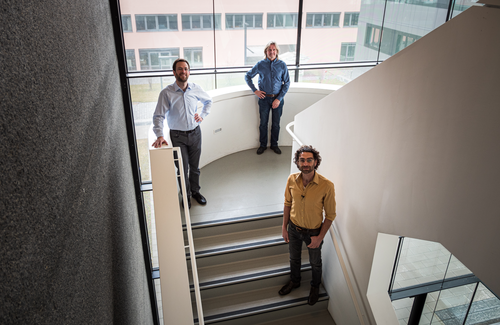
Robert Feicht, Raimund Brotsack and Christoph Lindenbergerlead through the following four modules of the course:
General foundations of sustainability: Students learn about the interrelationships of social, ecological and economic factors and actors and apply basic sustainability models and analysis methods.
Economic framework of sustainability: Students learn methods of environmental and resource economics and assess the use of sustainability policy instruments.
Materiality and sustainability: Students understand the material cycles of the earth and learn about the production of materials from renewable raw materials and the recycling and disposal of products.
Energy and sustainability: Students understand the basics of climate change. They learn about current technologies and developments and assess measures in the field of regenerative energy systems in the context of grid expansion, energy distribution and storage technologies.
The course can be booked via the Virtual University of Bavaria and can be integrated by vhb sponsoring universities into their degree programmes. The project leader at TH Deggendorf is Prof. Dr. Robert Feicht (robert.feicht@th-deg.de).
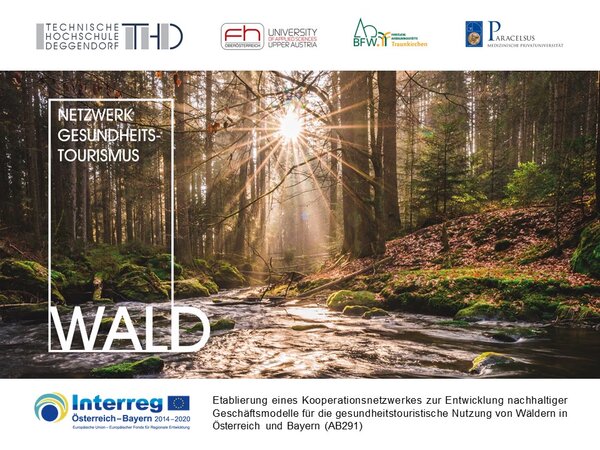
Sustainability is an integral value and component of the European Campus Rottal-Inn and accordingly also means for us to harmonise "economic performance, ecological responsibility and social justice". It is precisely these basic pillars of sustainability that we are currently trying to unite in an exciting and ambitious pilot project on the topic of "Forest, Health and Tourism". The driving research question here is: "How can we use local, native forest and natural areas sustainably, for health tourism, and create added value for all stakeholders in the process?"
In the course of the INTERREG project AB291 "Forest Health Tourism Network", in which the European Campus is even the lead partner, we have joined forces with a broad, interdisciplinary consortium and are investigating this and other important questions - especially in Corona times.
You can find more information about our exciting project in our project overview.
On the world ocean day • 8th June • the student association RESP e.V., ECRI's EcoLab and the Tourism Naturally Online Symposium would like to invite you to an online discussion on overfishing and plastic in the ocean with blue park ambassador Tharaka Sriram.
In the coming weeks, information about our oceans and how we can contribute to the conservation of this habitat will be published here padlet.com/resp
news
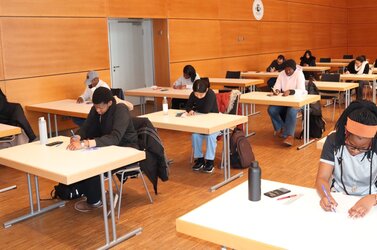
Months of intensive preparation are behind them. Now it's time for exams at the European Campus Rottal-Inn (ECRI) of the Deggendorf Institute of Technology (DIT/THD). All 1,575 students are required to demonstrate their knowledge in a total of 235 exams in nine degree programs in accordance with their curricula. The exam period lasts three weeks until February 13.
“Please be quiet. Examination”
The exam period is in full swing. Signs in front of the lecture halls urge people to be quiet so as not to disturb the students. Behind the closed campus doors and in the city hall (Stadthalle), the examinees from five bachelor's and four master's degree programs are poring over the tasks set for them. They are being tested on their specialist knowledge in the overarching ECRI areas of tourism, health/digitalization, energy/technology, and sustainability/construction. Dean Prof. Christian Steckenbauer is keeping his fingers crossed for all graduates, but also says: “Our curricula are strict, the examinees are not being given anything for free.”
Since students take more than one exam, the ECRI study center has received up to ten registrations per capita in some cases. With 78 registrations, the bachelor's degree program in Industrial Engineering accounts for the largest single examination in “Principles in Business & Economics”.
Exams also in the city hall
The exams are not only held in the campus lecture halls. For space reasons, a number of exams are moved to the spacious city hall. This means that the tests do not have to be spread across several rooms. The following applies to all exams: The use of electronic devices such as cell phones is not permitted during the exam. For the first time, checks will be carried out to ensure that no artificial intelligence (AI) is used.
As always, the focus is on written exams. However, oral exams and the timely submission of research papers are also part of the requirements. “The exam requirements are strict,” confirms Birgit Espertshuber, head of department at the ECRI Study Center. According to her, repeated failure to meet deadlines will result in de-registration.
Grades announced in March
Mandatory retakes have already taken place, as have the compulsory language exams. Students and lecturers alike hope for the best possible results in all exams. The results will be announced starting March 2. For students in advanced semesters, bachelor's and master's theses are on the agenda in addition to exams.
The European Campus Rottal-Inn in Pfarrkirchen has been the international study location of the Deggendorf Institute of Technology for eleven years. Currently, students come from around 100 countries in Europe, Asia, Africa, and America. “In addition to technical training, there is a special focus on teaching German language skills,” says Prof. Dr. Steckenbauer.
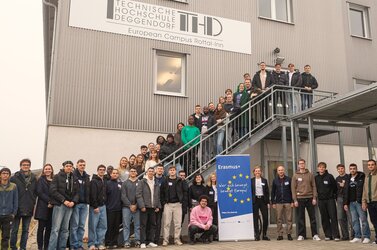
For ten days, the International Office at the European Campus Rottal-Inn (ECRI) of the Deggendorf Institute of Technology (THD) held an Erasmus+ Blended Intensive Program (BIP) entitled “AI for Health,” a short-term study program with partner universities on the topic of artificial intelligence (AI) in healthcare. The event seamlessly transitioned into three days of the “DigiHealthDayS” conference, part of the global forum for health. At the conclusion in the Pfarrkirchen town hall, Bavarian Health Minister Judith Gerlach joined the event.
When it comes to research into digital medicine, the district town of Rottal proved itself to be the hub of the European research world for a total of twelve days, with English-language lectures, workshops, and discussions. The BIP brought together nine scientists and almost 60 students from 13 partner universities, including the European Campus. The subsequent “DigiHealthDayS” featured 40 internationally renowned speakers and around 400 participants from well over 100 countries, both on site and online.
BIP with partner universities
First, the “Erasmus+ Blended Intensive Programme” discussed the possibilities of artificial intelligence for healthcare – from research and development to clinical testing and safe implementation. The discussion focused on how modern technologies learn independently from data, recognize complex patterns, and support clinical decisions, for example in medical diagnostics. In terms of data quality, the focus was on how AI tools work transparently, reliably, and impartially. In this context, participants dealt with algorithmic recommendations as well as ethical issues such as patient privacy. Ultimately, it is important to ensure that digital solutions are accepted by medical professionals and patients. The following universities, among others, participated as partners in the ECRI: Luleå University of Technology (Sweden), Thomas More University (Belgium), and the University of Agder (Norway).
DigiHealthDayS with link to the ministry
The sixth edition of DigiHealthDayS kicked off with the annual meeting of XiA members and their project on cooperation in healthcare. On the following day of the congress, Prof. Dr. Horst Kunhardt welcomed participants to a “global view of digital health from the heart of Europe.” Appearing as an avatar, DHDs initiator Prof. Dr. Georgi Chaltikyan called “artificial intelligence an accelerator of the digital world.”
In her video message, Bavarian State Minister for Health, Care, and Prevention Judith Gerlach described “digitalization as an integral part of our lives, especially in times of skilled labor shortages.” Deputy Mayor Hans Hirl praised “the European Campus's great commitment to digital health” on behalf of the city. THD Vice President Prof. Dr. Marcus Herntrei was pleased “that the meeting serves as a bridge between science and society.” From a clinical perspective, Chief Physician Dr. Jürgen Terhaag (Rottal-Inn Clinics) made it clear: “It is challenging to introduce technologies that quickly become obsolete.” In his opinion, the shortage of skilled workers, especially in rural areas, is driving the upcoming developments.
On the research side, Bart de Witte (founder of Isaree), for example, discussed the future of AI-based automated assistance platforms, such as for taking medication. Prof. Rajendra Pratap Gupta (UN/WHO, among others) saw digitalization as “heralding a golden age of medicine.” Isabelle Zablit-Schmitz (Deputy Director General of Numeum) initially favors “European solutions.” In addition, Dr. Karapat Davtyan from the World Health Organization reaffirmed in his message “the collaboration with Prof. Chaltikyan's team at the European Campus as a WHO Collaborating Center.”
From the organizational side of the coordinating university, Daniela Schwertlinger and Marion Bachmeier-Staab (International Office) reported a “positive response to the BIP.” Their supporting program included a “welcome dinner” and an excursion to Munich. How the impetus given will lead to progress in research will be discussed at the next meeting. In keeping with this, the global forum called “DigiHealthDay” (DHD) will remain active throughout the year, supported by Minister Gerlach as patron. The IT specialist MDSYSTEC GmbH (Mitterskirchen) acted as the main sponsor of DHDS.
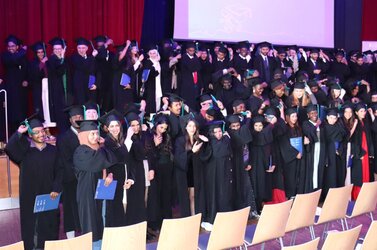
Another cohort of 234 successful graduates from nine degree programs is leaving the European Campus Rottal-Inn (ECRI) at the Deggendorf Institute of Technology (DIT). That is 32 more than last year. At the graduation ceremony in the town hall in Pfarrkirchen, 75 master's and 30 bachelor's degree holders were personally bid farewell. A number of former graduates were invited for the first time.
In accordance with international customs, the new graduates appeared dressed in black gowns and hats. Just under half of them were able to attend in person to receive their certificates. The rest were able to follow the ceremony via livestream. After all, the graduates are among the 1,500 ECRI students from around 100 countries who, after graduation, settle in many different regions. The graduates are now available to the job market as skilled workers.
Thoughts on farewell
The event was held partly in German and partly in English. Dean Prof. Dr. Christian Steckenbauer thoughtfully described graduation as “also an entry into a world that is changing rapidly.” He said it was important to work together to defend the foundations of a free society. THD Vice President Prof. Dr. Martina Heigl-Murauer viewed “education as a shared journey into a promising future” and called on everyone to “be the change you want to see in the world.” In her graduation speech, Magistra Sana Rauf from Pakistan encouraged lifelong learning and stated: “The best ideas often arise in conversations with people who see things differently.”
In his congratulations to the graduates, Deputy District Administrator Kurt Vallée praised “the boundless exchange and diversity at ECRI.” Mayor Wolfgang Beißmann confirmed: “The European Campus demonstrates coexistence in the world.” Both encouraged the graduates to take up employment in the region. University chaplain Felix M. Schandl called on to “respect creation.”
Presentation of certificates
One by one, the professors responsible for the individual degree programs addressed the graduates present to present them with their diplomas. Prof. Dr. Sabine Dittrich encouraged “global cooperation.” On behalf of Prof. Dr. Georgi Chaltikyan, she and the dean presented the certificates to 32 Master's students in Digital Health and two Master's students in Medical Informatics, as well as twelve Master's students in Global Public Health.
Prof. Dr. Michael Laar called on the 17 Master's students in Healthy and Sustainable Buildings to “strive for scientific truth.” He also advised them: “What counts today may be obsolete tomorrow.” THD Vice President Prof. Dr. Marcus Herntrei appealed to the twelve newly minted Master's in International Tourism Development and five Bachelor's in International Tourism Management graduates to “use the knowledge they have acquired to shape the future of tourism in a sustainable way.”
Prof. Dr. Stefan Mátéfi-Tempfli wished his three Bachelor's in Energy Systems Engineering graduates “fond memories of this milestone.” Representing Prof. Dr. Thomas Spittler, Prof. Dr. Christian Rummel welcomed seven Bachelor of Health Informatics graduates “to this important field of the future.” Prof. Dr. Raimund Brotsack called on his 15 successful Bachelor of Industrial Engineering graduates to “be translators between engineering and the business world.”
Two rituals symbolized the graduates' admission into the academic community: moving the faculty's turquoise hat tassel from the right to the left side and the jubilant throwing of the hat into the air. The graduates were only too happy to do so.
Alumni meeting
On the occasion of the tenth anniversary of ECRI's founding, former graduates were invited to the graduation ceremony for the first time as “pioneers of the ECRI vision,” according to Prof. Dr. Steckenbauer. Head of Staff Ulrike Sauckel led a short discussion with five of the 24 alumni present about their campus memories. In this context, Severin Eder said, referring to Frank Sinatra's song: “If you can make it in Pfarrkirchen, you can make it anywhere.”
The Gerl-Ochsenbauer duo provided musical accompaniment for the event, concluding with the European anthem. Guests of honor included university coordinator Georg Riedl and representatives from education, business, and politics. The event was organized by the THD alumni team in collaboration with the European Campus. Organizer Stefanie Ruckpaul concluded by encouraging “unity in diversity.”
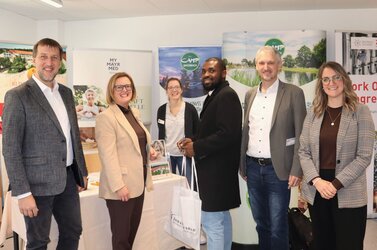
The sixth Job Fair at the European Campus Rottal-Inn (ECRI) of the Deggendorf Institute of Technology (DIT) has once again proven to be a lucrative event. For five hours, more than 200 students eagerly took advantage of the opportunity to establish valuable contacts with 14 regional companies from various industries. Two companies participated exclusively online for the first time.
Dean Prof. Christian Steckenbauer described the job fair as “one of the annual highlights on campus.” He is convinced that this event brings together the skilled workers trained at the university and regional and national companies in a targeted manner. He called on the students to “take advantage of the opportunity to make contacts.” During a tour, Mayor Wolfgang Beißmann encouraged students to “discover the diverse opportunities that the region has to offer.”
Supply and demand
The companies present represented a wide range of industries, from technology and construction to tourism and healthcare. Half of the companies took the opportunity to present themselves in a round of introductions. All of them promoted themselves at exhibition stands covering the entire ground floor of the laboratory building. There was a constant coming and going.
From internships to permanent positions: there was great interest on both the supply and demand sides. There was also an exchange of ideas on how students can write their theses in collaboration with companies. Design engineer Moritz Kreck from stela Laxhuber summed it up as follows: “Some of the conversations were very promising, now we're waiting for the applications.”
They were there
The job fair takes place every year in fall. It is organized by the DIT`s Career Service, which knows only too well that small conversations can lead to big careers. The following companies were there: ABC Vermögensverwaltung/Vital CAMP Bayerbach, Ed. Züblin, Ensana, EURES - Beratung der Agentur für Arbeit, Haas Fertigbau, IGK Ingenieurgesellschaft Klein, Johannesbad Reha Kliniken and Johannesbad Hotels, Lindner Group, Rehabilitationszentrum Klinik Rosenhof, Schlagmann Poroton, stela Laxhuber, and Techniker Krankenkasse. Also making their debut as digital participants (“Virtual Company Pitch”) were: OnlineBuchungService and Frauscher Sensortechnik.
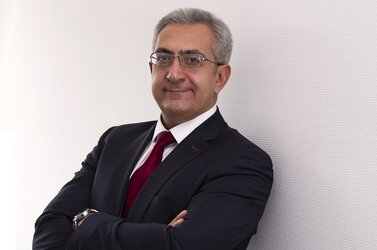
WHO/Europe has designated the European Campus Rottal-Inn (DIT-ECRI) at Deggendorf Institute of Technology in Germany as a collaborating centre on digital health. Collaborating centres carry out activities in support of various WHO programmes in areas such as medicine, public health, nursing and midwifery, and more.
DIT-ECRI will support WHO in strengthening digital health systems, including through policy and strategy development, training and capacity building, as well as research and evaluation of digital health interventions. The collaboration is expected to last 4 years with the possibility of extension.
“We are proud to be among 27 WHO partners in Germany and the only one in the field of digital health. We are committed to supporting WHO's vision of using digital technologies to transform health systems and reach underserved populations, as outlined in the WHO Fourteenth General Programme of Work (GPW14),” said Prof. Dr. Georgi Chaltikyan, head of the new center. Dean Prof. Dr. Christian Steckenbauer sees this as “a milestone in health research and in the internationalization of the European Campus”.
Specifically, DIT-ECRI’s contributions will include providing data and analyses on existing digital health policies and ethics frameworks, identifying potential gaps, and providing evidence-based recommendations for policy enhancements. DIT-ECRI will collaborate with WHO to revise and refine a comprehensive toolkit covering the planning, deployment, and evaluation of digital health solutions. To improve workforce competencies in digital health, DIT-ECRI will develop targeted training materials, coordinate capacity-building initiatives, and guide the upskilling of health care professionals. Under WHO’s coordination, DIT-ECRI will also engage in research and evaluation of digital health interventions to ensure a robust evidence base for continued innovation and improvement.
“Modernizing health care and making sure that digital tools are safe and accessible is a priority for us at WHO. Germany is a key player in advancing digital health in Europe, and this is why we are looking forward to working together with DIT-ECRI. This partnership will help us translate research into practical solutions that strengthen service delivery and improve patient outcomes across the region,” said Dr David Novillo Ortiz, Regional Adviser for Data, Evidence and Digital Health at WHO/Europe.
The new collaboration will support the implementation of the Regional Digital Health Action Plan for the WHO European Region 2023–2030 and the WHO Global Strategy on Digital Health.
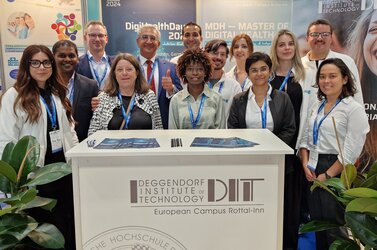
From May 29 to 31, the HIMSS 24 Europe Conference took place in Rome. The European Campus Rottal-Inn (ECRI) of the Deggendorf Institute of Technology (THD) had a significant presence: with a booth, volunteers, and participation in a panel discussion.
The dynamic ECRI booth was a central hub, attracting attendees with presentations on the successful Master of Digital Health program and showcasing innovative health informatics research projects. Highlights included the DigiHealthDay forum. The booth featured the ECRI Digital Health team, led by Prof. Dr. Georgi Chaltikyan, along with Anna Schmaus-Klughammer, Dimitry Etin, Jishen Pfeiffer, and Fara Fernandes.
ECRI's collaboration with the Healthcare Information and Management Systems Society (HIMSS) was underscored by the high number of ECRI volunteers. Nine students, more than half of the volunteer team, assisted in various conference activities, demonstrating strong organisational and communication skills. Student Lusine Shahverdyan praised the volunteer experience for the opportunity to interact with industry professionals and stay updated on healthcare technology advancements.
A highlight was the panel discussion led by Prof. Dr. Georgi Chaltikyan, titled "One Click Too Many - Reducing the Operational Burden on Clinical Staff," focusing on workflow optimisation in clinics through AI and user-friendly data solutions.
ECRI's involvement in HIMSS 24 Europe underscores its commitment to advancing innovation and excellence in digital health education. The annual conference, hosted by HIMSS, brings together industry leaders and cutting-edge technologies.
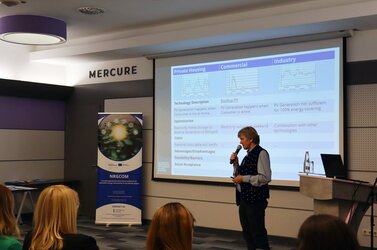
On Tuesday, 23 April, the first national workshop of the Interreg Danube Region project "NRGCOM" took place. It was organised and hosted by the Deggendorf Institute of Technology (DIT) as a partner in the project. The focus was on Energy Communities and how they can best develop in the region.
The NRGCOM project was launched in January and aims to create an environment in which renewable energy communities can flourish in the Danube region. This aim was also addressed by the workshop on 23 April. After the project presentation by Agnes Frank, DIT’s project manager, Prof. Dr. Raimund Brotsack together with Dr. Robert Bauer introduced the topic. A number of examples of good practice from Fuchstal, from the regional power plant in Cham and from the association Bayerische Bürgerenergie were presented. The participating energy communities and local action groups then discussed potential cost-effective infrastructure solutions and technological developments, as well as how the issue will develop in the future. For the participants, the workshop laid the foundation for cooperation with DIT as a partner in the "NRGCOM" project. In the further course of the project, legal solutions will be researched, operating models analysed and a model for creating favourable conditions for energy communities will be developed. The foundations laid at the first national workshop held by the DIT will be further developed on 3 June. This next workshop on business and governance models of energy communities will take place at the European Campus Rottal-Inn.
The national workshop was preceded by a kick-off event. It took place from 12 to 14 March in Budapest and brought together all 13 project partners from a total of 12 countries. The Interreg Danube Region project "NRGCOM" is led by the South Transdanubian Regional Innovation Agency. The overall objective of NRGCOM is to promote energy communities in the Danube region by creating an environment in which community renewable energy initiatives can develop to facilitate the energy transition and increase energy efficiency.
The project runs from 1 January 2024 to 30 June 2026 and is funded by the Interreg Danube Region Programme, co-funded by the EU. In total, there are 13 project partners and 14 associated strategic partners from 12 countries. They will review the (legal) framework conditions, analyse business models and governance techniques, collect best practices and solutions and develop policy recommendations. The aim is to raise awareness of the concept and increase its dissemination in the partner countries through awareness-raising activities. It will also propose legal solutions, analyse operational models and provide training.
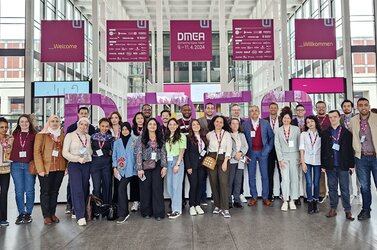
More than 50 students from the European Campus Rottal-Inn (ECRI) visited the DMEA (Digital Medicine Expertise and Applications) in Berlin from 9 to 11 April. The excursion is offered to students of the master’s programme Digital Health and the bachelor’s programme Health of Informatics to get in touch with experts from industry and academia early on in their studies.
For students such as Yasaman Rasouli the DMEA – one of the most important European events for Digital Health – is a chance to discuss current topics and future cooperations in person with experts: “It was fascinating to talk to startup founders about their projects and challenges, and find similarities between their work and students’ ideas about theses or career interests.” The conference offered thought-provoking discussion panels as well as presentations from national and international perspectives on the future of global digital health. The students were able to gain practical insights by testing the latest product developments such as VR-glasses that assist medical staff in diagnostics.
During the event Prof. Dr Georgi Chaltikyan met with Bavarian State Minister of Health, Care and Prevention, Judith Gerlach, and personally invited her to the DigiHealthDayS-2024. At this international symposium for education, research, innovation and networking – hosted annually by the ECRI – experts on DigiHealth gather on campus.
The excursion was organised and accompanied by Prof. Dr Georgi Chaltikyan (Head of the master’s programme Digital Health), Anna Schmaus-Klughammer, LLB(hons) (lecturer and member of academic staff), und Dmitry Etin (lecturer).
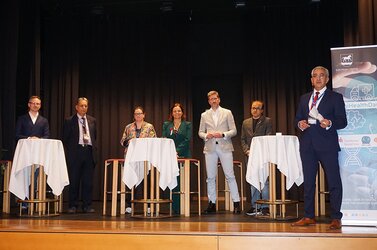
On 9 and 10 November, the fourth DigiHealthDay (DHD) was hosted by the European Campus Rottal-Inn (ECRI). The international scientific symposium received an impressive 1,323 registrations from 105 nations and brought together more than 450 people on-site and online. Academics, students, policy makers, company representatives and digital health enthusiasts came together to discuss the future of technology use in healthcare. The amount of positive feedback marks the DHD as a leading platform for digital health research, education and networking.
Three plenary sessions, three online sessions, fifteen keynote speeches and one panel discussion: the event’s programme – this year focusing on ethics and regulations, innovation, entrepreneurship, and AI research – gave the DigiHealth community a platform to exchange ideas, discuss challenges and spark future collaborations. It was a rare opportunity for on-site attendees whose level of expertise ranged from academic backgrounds to simple interest, to engage directly with some of the world's foremost experts on digital health. International speakers included Dipak Kalra, PhD (United Kingdom), Rajendra Gupta, PhD (India), Anne Snowdon of HIMSS Analytics, PhD (Canada), Miklós Szócska, PhD (Hungary) and Lars Lindsköld, MD (Sweden), to name but a few.
The DHD was particularly impactful for Digital Health students and young professionals, like Ali Badran, Bachelor of Health Informatics at DIT, who says that “[DHD 2023] was a fantastic opportunity to exchange ideas, learn from others, and build connections that will undoubtedly contribute to [his] future endeavors.”
In turn, the speakers and guests were highly impressed by the youthful, diverse and inspiring nature of the DigiHealth family in Pfarrkirchen. “My head is still buzzing from the conversations and great insights shared during the DHD. The energy of the students was contagious, and it makes me very optimistic about the future of digital health”, remarked one of the speakers, Pilar Fernandez Hermida (United Kingdom & United Arab Emirates).
Planning is already underway for the five-year anniversary conference taking place from 4 to 8 November 2024. The DigiHealthDay – initiated by Georgi Chaltikyan, MD, PhD in 2019 – is part of the ECRI’s committment to further research, education and innovation in digital health.
---
More information on DigiHealthDay at https://www.th-deg.de/digihealthday
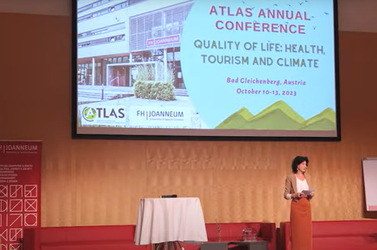
From 11 to 13 October, the international annual ATLAS conference took place in Bad Gleichenberg, Austria, hosted by FH JOANNEUM. Researchers Veronika Jánová and Linn Albert from the European Campus Rottal-Inn (ECRI) presented two projects.
The theme of the conference was "Quality of Life: Health, Tourism and Climate" and offered a multi-perspective view of tourism and a variety of current challenges. In the special track "Quality of Life, Well-Being, Climate Change: Bridging the Theory-Action Gap", Veronika Jánová presented the Interreg Alpine project BeyondSnow. The project is led by Prof. Dr. Marcus Herntrei and aims to increase the socio-ecological climate resilience of small snow tourism destinations and communities at medium altitudes in order to maintain their attractiveness for residents and tourists. In ten pilot regions in the Alps, adaptation strategies to climate change are being developed with the broad participation of local service providers. For the first time, a digital tool is being used to provide data-based solutions and concrete proposals to enable Alpine tourism regions to adapt and revitalise their tourism offer in the face of ecological change. The Resilience Decision Making Digital Tool will generate recommendations for the transition to sustainable tourism models and help preserve valuable regional resources.
As part of the special track "Good Practice in Learning and Teaching Tourism in Higher Education", Linn Albert presented the media and didactic oriented project XtraveL. Led by Prof. Dr. Sascha Kreiskott, the XtraveL team is developing an innovative and transferable teaching module that focuses on practical and theoretical skills for sustainable travel planning and hybrid excursions in higher education. Individual elements can be used by different stakeholders in higher education for planning trips, documenting events or trips, or for teaching and learning practical and future relevant skills.
This year's ATLAS Annual Conference was hybrid for the first time and offered a total of seven special tracks consisting of scientific presentations, simulation games and workshops. Circular Economy in Tourism and Hospitality, Cultural Routes, Sustainable Transport in Rural Areas, Urban Tourism and Well-being, Quality of Life and Climate Change, Good Practice in Learning and Teaching Tourism in Higher Education and Event Crisis Management were discussed intensively by participants from more than 20 countries.
The Association for Tourism and Leisure Education and Research (ATLAS) is a membership-based network and research organisation. Its main objective is to promote tourism and leisure education and research through regular meetings and exchange of information between member institutions.
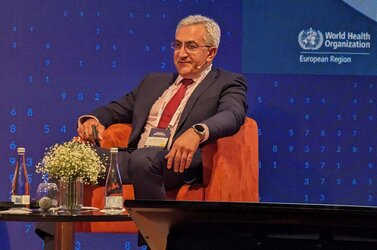
On 5-6 September, the WHO Symposium took place in Porto, Portugal, for the second time in four years. This year, the organisers at WHO invited Professor Georgi Chaltikyan, Head of Digital Health at the European Campus Rottal-Inn of the Deggendorf Institute of Technology (DIT-ECRI), to speak on one of the panels.
The symposium focused on the future of healthcare systems in the digital era in the European region and addressed burning issues facing the industry. The panel on which Prof Chaltikyan was invited to speak was entitled "High-tech vs. high-touch: Can digital technologies mitigate the health workforce crisis?" sought to explore how digital technologies can help address the health workforce crisis. Together with his colleagues, Prof Chaltikyan highlighted the key challenges of digital transformation from a health workforce perspective and the possible solutions to address these challenges.
His presence, together with his colleague from the Digital Health team at DIT-ECRI, Dmitry Etin, marked the ever-growing impact of the Deggendorf Institute of Technology as one of the key pillars of digital health education, research and development in Europe and globally. In addition, a second year student of the Master of Digital Health (MDH), DIT's flagship programme, Ms Airam Regalado Ceballos, was invited to contribute to another panel of students and young professionals entitled "Voices of tomorrow: harnessing the power of youth innovation in (digital) health".
Such a significant contribution by DIT-ECRI to the success of the meeting is in line with the institution's aspirations to become a WHO Collaborating Centre on Digital Health - an important development expected to be completed in early 2024.
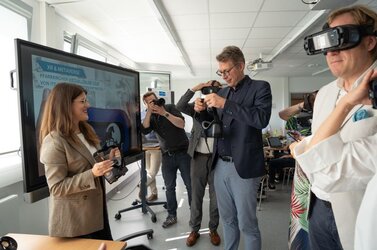
Just ahead of the upcoming winter semester, Markus Blume, the Minister of State for Science and the Arts, paid a visit to the European Campus Rottal-Inn (ECRI) in Pfarrkirchen. During his visit, the minister had the opportunity to gain insights into the six research laboratories, the latest projects, and the reasons why students from a wide array of countries choose this study destination. For the winter semester of 2023/24, ECRI anticipates approximately 1,500(*) new students from around 100 countries across Europe, Asia, Africa, and the Americas. These increasing enrolment figures document the sustained success of the European Campus and its location.
Science Minister Blume noted: “Pfarrkirchen is where the world comes to study. The European Campus Rottal-Inn at the Deggendorf Institute is a true success story. Its special appeal lies in international students hailing from over a hundred countries, excellent academic conditions, and strong support from the local community. Furthermore, the focus here is on themes of the region: health, digitalisation, and tourism. “The Deggendorf Institute is one of our most dynamic universities. This is evident even and particularly here in Pfarrkirchen.”
Upon arrival, Minister Blume was greeted by University President Prof. Dr. rer. nat. Peter Sperber, and Vice President Prof. Dr. Horst Kunhardt and the Dean of the Faculty Prof. Dr. Christian Steckenbauer shared insights into current initiatives. “We hope for ongoing support from the ministry to be able to lead the way in expanding our research and development activities in the future”, Kunhardt said. Students from Greece, Russia, Nigeria, and Iran showcased their tourism projects in the field of Extended Reality, offering virtual tours of Pfarrkirchen using VR glasses. In the “DigiHealth & Smart Tourism Lab,” the latest regional health project, “med4PAN,” was presented: this project aims to improve medical care in rural areas with technical assistance, such as providing defibrillators by drones in cases of acute heart failure. In the “EEE Lab for Electrical and Energy Engineering”, a simulator was used to demonstrate the principle of wind energy generation and to illustrate the functional principle of electrochemical energy storage during the course of the day.
Since October 2015, ECRI has been an international study destination of the Deggendorf Institute of Technology (DIT) and was established based on the state government’s “science-based regional and structural policy”. The primary research and teaching focuses at this campus are sustainability and quality of life in rural areas, which are explored from various perspectives in degree programmes such as Digital Health, Tourism, Energy and Energy Technology, and Healthy Sustainable Building, among others.
(*) Enrolment estimate as of 30.8.2023, subject to change.
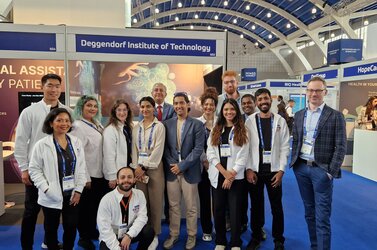
Spring and Summer is always an especially busy season for Digital Health students, teachers and researchers at Deggendorf Institute of Technology’s European Campus Rottal-Inn (DIT-ECRI) with many important conferences and industry expos taking place April through June. Professor Dr. Georgi Chaltikyan, head of the two signature Digital Health Education and R&D products at DIT-ECRI, the Master of Digital Health (MDH) and the annual education and scientific event series DigiHealthDay (DHD), as well as students and research associates, made an impactful appearance at five consecutive events in the end of May – beginning of June.
In mid-May Professor Chaltikyan delivered a master-class to the prospective students of the Armenian double-degree counterpart of DIT-ECRI’s Master of Digital Health launched last year at the Russian-Armenian University in Yerevan, Armenia. The very next day he was invited to speak on a Digital Transformation panel at the Yerevan Tech Forum 2023, a leading event in Armenia.
The week after that, DIT-ECRI students and staff attended Vitalis in Gothenburg, Sweden, the largest and most impactful Digital Health conference and expo in the Nordic Countries. This conference was co-located with Medical Informatics Europe – the annual scientific conference by the European Federation for Medical Informatics (EFMI) of which DIT-ECRI is one of the most active institutional members. Then followed the Pharma 4.0 conference in Berlin, a no less prominent event and conference on Digital Transformation of Pharma where Prof. Dr. Georgi Chaltikyan was the invited chair.
Finally, on June 7-9, one of the most significant European and international events took place in Lisbon, Portugal – the HIMSS 23 Europe congress and expo, where DIT-ECRI actively participated with a dedicated booth, as well as a large group of staff, researchers and students led by Prof. Chaltikyan. Many of the DIT-ECRI students were invited as the conference volunteers amounting to 8 out of 13 HIMSS volunteers. Volunteering at HIMSS23Europe gave the students a unique opportunity to get familiar with the behind the scenes challenges of organizing the event. They gained valuable skills and exciting experience, while those present at the booth engaged in informative conversations with visitors, showcased the university, and achieved new insights into various aspects of Digital Health. The event also featured Prof. Chaltikyan speaking at the panel titled “Harnessing Digital Health Workforce Development”.
For over three years now DIT-ECRI is a partner of HIMSS, with resultant wider recognition of its Digital Health activities in Europe and globally, and many new excellent opportunities for its students and young researchers, to learn, develop, and network with the global Digital Health community.
More is to come: later this year, the annual symposium DigiHealthDay-2023 will be convened on November 10. It is already known that several more global top-level experts and opinion leaders will be speaking at the symposium, including key Digital Health officers from the WHO Europe Headquarters in Copenhagen.
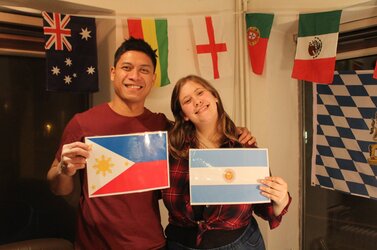
The International Office of the European Campus Rottal-Inn (ECRI) will once again be hosting the KULTURcafé on Wednesday, 21 June at 6 pm. At the event, international students will talk about their home countries. Interested citizens are cordially invited to the KULTURcafé.
In a relaxed atmosphere, ECRI students present their home countries and take the participants with them to foreign cultures. They tell stories about exciting or even curious traditions and customs, answer questions about their home countries and exchange views with the locals on cultural differences and commonalities. The best prerequisites for intercultural dialogue and an entertaining evening with interesting conversations and new insights. Knowledge of English is an advantage. Beverages and snacks from the countries presented will be provided.
Everyone with an interest in other cultures, customs and traditions is cordially invited to the KULTURcafé. This will take place on 21 June at 6 pm in the premises of the Glausbau Verein e.V. in Ringstraße 9 in Pfarrkirchen. The participation fee is €3. Due to the limited number of places, please register with Daniela Schwertlinger (daniela.schwertlinger@th-deg.de or under 0991 3615 8843).
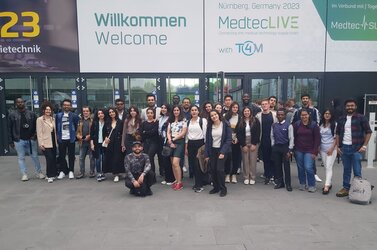
As the use of new technologies in various areas of healthcare continues to increase, it is important to keep up with the latest developments in health IT. Students of the European Campus Rottal-Inn (ECRI) of the Bachelor Health Informatics and Master Digital Health programmes therefore visited MedtechLIVE 2023 on 24 May in Nuremberg.
MedtechLIVE is the central trade fair for medical technology in Europe. For ECRI Digital Health students, the visit to the fair offered the opportunity to acquire new knowledge, learn about the latest developments in the industry and talk to representatives of the medical technology sector. They gained insight into the broad spectrum of medical technology innovations and the latest biomedical technologies and manufacturing processes. The experience gained in Nuremberg can be used by the students in their studies and thus applied directly.
MedtechLIVE took place in Nuremberg this year and brought together 397 exhibitors from 27 countries and around 4,000 visitors from 46 countries. The trade fair picks up on new trends, transfers knowledge and brings medical technology innovations to life.
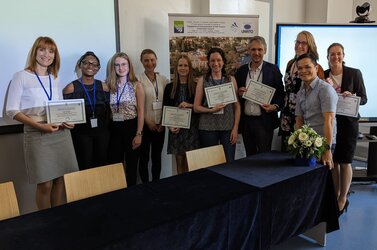
From 25 to 27 May, the Tourism in Southern and Eastern Europe (ToSEE) conference took place in Croatia with the main topic "Engagement and Empowerment: A Pathway to Sustainable Tourism". The European Campus Rottal-Inn (ECRI) travelled to the event with a delegation and contributed three conference papers.
The organisers of the conference, hosted by the Faculty of Tourism and Hotel Management of the University of Rijeka, invited the Dean of ECRI, Prof. Dr. Georg Christian Steckenbauer, to give a keynote speech. In his lecture entitled "The forest as a driver for sustainable tourism development: challenges and opportunities", he addressed the main topic of the conference. Corinna Pippirs and Sebastian Markov, research assistants at ECRI, complemented the topic with their contribution "Forests, health and tourism: developing sustainable health tourism offers in domestic forests". Veronika Jánová, also a research associate at ECRI, presented a research project under the direction of Prof. Dr. Marcus Herntrei on "Sustainable Destination Development in Bavaria: Increasing Tourism Acceptance through Participatory Approaches?" at the conference.
Five students from Pfarrkirchen, who are part of the "Health Tour" project, also came to the ToSEE. This project, led by ECRI and funded by the German Academic Exchange Service, brings together universities in five countries with the aim of making the tourism industry more international and promising for the future..,
The ToSEE conference is dedicated to the promotion of academic work in the field of tourism and contributes to the discussion of current issues related to sustainable tourism development on a global scale. It provides a multidisciplinary platform for teachers, students as well as industry specialists. A total of 111 authors with 44 scientific contributions from 16 countries participated in ToSEE 2023 this year.
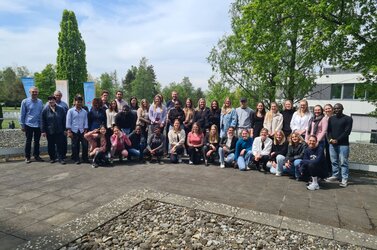
Students of the Bachelor's programme International Tourism Management of the European Campus Rottal-Inn (ECRI) visited the tourism destination Oberschwaben-Allgäu in Baden-Württemberg together with students of the Lucerne University of Applied Sciences and Arts (HSLU) for a field internship. There they gained extensive insight into what the region has to offer, the cooperation between the individual partners and developed product innovations.
The tourism students from both universities travelled to Oberschwaben-Allgäu together with Prof. Dr. Marcus Herntrei and Prof. Dr. Georg Christian Steckenbauer from ECRI and Prof. Roland Lymann and Lisa Fickel from HSLU. The region is not only halfway between Pfarrkirchen and Lucerne, but with its thermal and mud baths and its focus on health tourism, it offers the ideal conditions for a field placement. The aim was to get to know the diverse offer of the region and the different stakeholders such as hotels, spas, tourism destination and municipalities. Among other things, the group visited the Adelindis Therme, the feelMOOR Gesundresort in Bad Wurzach, the Waldsee-Therme health centre and exchanged views with Petra Misch, the managing director of Oberschwaben Tourismus GmbH. This formed the basis for an analysis of the offer by the students, who developed product innovations based on this, coordinated with the tourism master plan of the destination Oberschwaben-Allgäu.
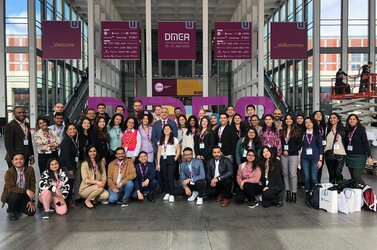
Digital health is becoming increasingly important and is now indispensable. Students of the degree programmes Master of Digital Health as well as Bachelor of Health Informatics, and Master of Global Public Health of the European Campus Rottal-Inn (ECRI) visited the DMEA in Berlin, Europe's most important event in the field of Digital Health, from 25 to 27 April.
The students of the three degree programmes share a passion for Digital Health and Health IT. The visit to DMEA, led by Professor Dr Georgi Chaltikyan, is therefore always the highlight of the year, which is why more than 50 students went along to DMEA in Berlin. At DMEA, they took part in the "Guided Tours", among other things, where they were able to learn about selected key topics on site and get to know the corresponding companies, their products and services. In addition, "DMEA Sparks" offered the students the opportunity to talk to medical institutions and companies in matchmaking sessions and thus get to know potential employers. For Professor Chaltikyan's group, the visit to DMEA was the perfect opportunity to gain a comprehensive insight into the latest developments and trends in the industry. The trade fair provided the perfect environment to exchange ideas about digital health with the community in person. In addition, the students learned about a wide range of opportunities for further education, careers and research in this field and are now well equipped for the future.
The DMEA is considered Europe's leading event for digital health. It takes place annually in Berlin and, with over 700 exhibitors and more than 300 lectures and keynotes, offers the professional audience the opportunity to obtain intensive information and network with international experts. This year, over 16,000 people attended the DMEA.
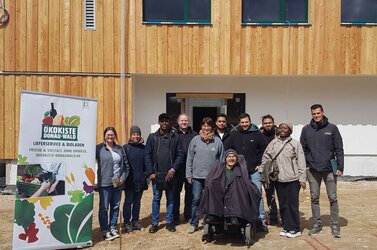
The current developments towards more sustainability and regionality are also making its way to the surface in the construction sector. The Building Products and Processes (BPP) degree programme at the European Campus Rottal-Inn (ECRI) focuses, among other things, on innovations and how individual building products contribute to the overall balance of a building. Students of this degree programme now visited the construction site of a "green" logistics building to experience first-hand what matters.
The students and laboratory engineer Jennifer Huber had been invited by Martina Kögl-Wiethaler, the owner of Ökokiste DonauWald GmbH & Co. to visit the construction site in Saulburg. Together with her son Xaver and the site managers of the company Haas Fertigbau GmbH, Benedikt Bachmeier and Christian Tippelt, she welcomed the ECRI visitors. After a brief introduction of the Ökokiste and its philosophy of ecology and sustainability, Martina Kögl-Wiethaler went into detail about the building under construction. The customer base, which had grown considerably during the Corona period, required a new logistics building including offices and a salesroom. In keeping with the company's philosophy, a sustainable and refined building was to be created. For this purpose, the decision was made to cooperate with the Haas company, which also focuses on regionality.
Site managers Bachmeier and Tippelt took the students on a tour of the construction site. There they went into details about the building, such as packing stations, hygiene areas, the light-flooded social room for employees, the roof terrace and the green roof. They also presented the challenges of how these could be implemented sustainably and in accordance with the customer's wishes. These details were of great interest to the students, who will later work as an interface between construction manager and civil engineer. Especially the photos of the individual construction phases and progress together with the explanation by the construction managers went down well with the students.
After visiting the construction site of the Ökokiste DonauWald and having a snack together, the group continued to Straubing to the company Wienerberger GmbH. There, the students learned about the company and the production steps of roof tiles and were allowed to take a look at production. This is an important step for the budding engineers to familiarise themselves with different building materials. Later on, they will need to know what is important in sustainable, recyclable building products, such as Wienerberger's roof tiles.
The visit to the construction site of a sustainable company headquarters and the subsequent tour of the Wienerberger plant left the students with many new exciting impressions and gave them a varied insight into the professional field.
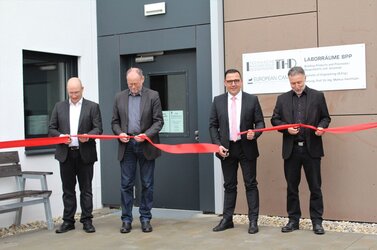
The Bachelor's degree programme Building Products and Processes (BPP) at the European Campus Rottal-Inn (ECRI) ceremoniously opened its new lab rooms in Arnstorf on Friday, 24 March. BPP Students can now complete their lab internships in new and high-quality equipped premises.
The lab was opened by course director Prof. Dr. Markus Hainthaler, DIT president Prof. Dr. Peter Sperber, Arnstorf's mayor Christoph Brunner and the managing director of Gesellschaft für innovative Bautechnologie mbH (GiB) Prof. Klaus Lang, who together cut the red ribbon at the entrance to the building. Afterwards, the guests were welcomed in the lab's co-working space, where they learned all about the premises and the unique selling points of the study programme. The fact that new, modern rooms could be rented is a lucky coincidence for ECRI, because the new building in Pfarrkirchen will take several more years to complete.
After the welcome, the guests were given a tour of the premises. In addition to the co-working space, they visited a room for project work, which was used that day by students to present their work and research results. In the BIM lab, everything revolved around Building Information Modelling (BIM), a working method for the networked planning, construction and management of buildings with the help of intelligent software. The indoor climate laboratory offered, among other things, an insight into the functioning of heat and cold pumps. In the fire protection / building materials lab, the guests learned that building materials are not only about fire protection, but also about UV resistance and component vibration.
Following the lab tour, guests were treated to appetisers and drinks and had plenty of opportunity to exchange ideas and chat with the BPP team about the lab, the degree programme and the lab tour.
The BPP lab houses a total of six different rooms and a co-working space. It is rented for five years with an option to extend for another three years in the GiB premises in Arnstorf and will then move back to Pfarrkirchen in the planned new building.
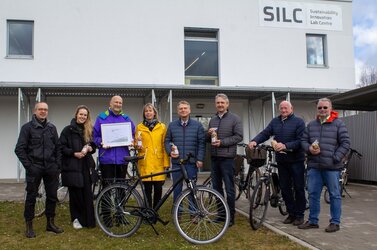
The European Campus Rottal-Inn (ECRI), sustainability campus of the Deggendorf Institute of Technology (DIT), received the "Silver" seal in the EU-wide "Bicycle Friendly Employer" certification. This makes ECRI the second campus in the whole of Bavaria to boast such a certification.
As a sustainability campus, ECRI has for years relied on various measures to make cycling to work more attractive. Last year, already existing offers, such as the "Bike Station", were expanded and extended by a whole concept. Under the direction of the university's sustainability officer, Prof. Dr. Michael Laar, and his research assistant, Laura Hoffmann, staff bicycles and sanitary facilities for cycling employees were introduced and a cycling competition was held. The two were supported by ECRI's sustainability lab. The package of measures was so well received by the ADFC, the German Bicycle Club, that it awarded the university the "Silver" seal of approval in the EU-wide "Bicycle-Friendly Employer" certification process after only nine months instead of the usual two to three years. Petra Husemann-Roew, regional manager at the ADFC national association, says: "The university supports employees who use bicycles to get to work with many different measures. This brings many advantages: The employer can thus score points in company health, environmental and mobility management."
The certification and the measures that go along with it primarily benefit the university's employees. Regular exercise improves health, increases motivation, reduces the carbon footprint and is easy on the wallet. In future, the experiences at ECRI will also be used at other DIT locations to create incentives to cycle to work.

The INTERREG-funded BeyondSnow project is an Alpine-wide initiative involving 13 partners. One of them is the European Campus Rottal-Inn (ECRI) of the Deggendorf Institute of Technology (DIT). The aim of BeyondSnow is to find new solutions for the future challenges of small and medium-sized winter tourism regions. Because decreasing snow reliability and changing consumer behaviour require innovative ideas. One of the ten pilot regions in the Alpine region is the ski area on the Großer Arber.
Climate change is expected to have an impact on Alpine winter tourism at low or medium altitudes. The duration of closed snow cover in the last century has shortened by more than a month. At higher altitudes with high snow reliability, which includes the Großer Arber, an increased rush of skiers can therefore be expected in the future. The winter seasons will become shorter, the costs for the necessary infrastructures to cover the ongoing operations will become more challenging. The viability of winter sports resorts is under great pressure and this may contribute to migration from mountain regions. The winter sports resorts in the Bavarian Forest are also affected by the impacts of climate change. The pilot region around the Großer Arber selected by Beyondsnow is analysed as representative of the Bavarian Forest. In addition, ideas and strategies will be developed on site together with the mountain railway, the districts, the neighbouring communities, the tourism association and local stakeholders.
The BeyondSnow project will work with a total of ten pilot regions throughout the Alpine region to develop instruments to strategically address the challenges of climate change. "The current situation in our mountains," says Andrea Omizzolo of Eurac Research, lead partner of BeyondSnow, "shows the critical state of many winter tourism destinations. The lack of snow is causing great difficulties for the service providers. BeyondSnow aims to make our Alpine-wide selected pilot regions more resilient to climate change. The dependency on snow is to be reduced, visitor management in heavily frequented ski areas optimised and alternatives for sustainable tourism developed. This can be a building block for reducing the threat of migration from rural regions. Exemplary solutions that are jointly developed in the course of BeyondSnow on the Großer Arber can also be useful for many other snow tourism destinations in the Bavarian Forest and in the entire Alpine region".
The BeyondSnow project now has three years to do this. Climate adaptation strategies will be designed in the pilot regions with broad participation of service providers and interested parties. The solutions will focus on the needs of the regional service providers as well as on environmental concerns. Subsequently, BeyondSnow will develop proposals for policy guidelines to strengthen resilience in the Alpine Space. For the first time, a digital tool will be used to provide data-driven solutions and concrete proposals, enabling Alpine tourism regions to adapt and revitalise their tourism offer also taking into account environmental change. This Resilience Decision Making Digital Tool will generate recommendations for the transition to sustainable tourism models and help to preserve valuable regional resources.
BeyondSnow is an INTERREG Alpine Space project co-funded by the European Union. It brings together public and private institutions and experts from the six Alpine countries Italy, France, Switzerland, Germany, Austria and Slovenia, who will jointly develop sustainable development paths, transition processes and feasible solutions for winter tourism destinations. Further details on the project can be found at https://www.alpine-space.eu/project/beyondsnow.
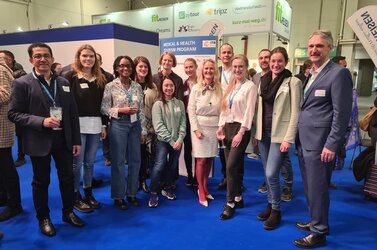
The International Tourism Exchange ITB is finally back after the pandemic and the European Campus is right in the middle of it. A delegation from Pfarrkirchen was also present in Berlin, where tourism professionals and important players in the global travel industry met from 7 to 9 March. Naturally with a special focus on the topics of health and medical tourism.
"The ITB is an excellent opportunity to establish contact between our students and representatives of leading European associations and companies in health and medical tourism," explains the Dean of ECRI and also Pfarrkirchen delegation leader in the capital, Prof. Dr. Christian Steckenbauer. The tourism industry suffers particularly from the shortage of skilled workers, and that sector, which is specifically dedicated to health, is no exception. "Qualified employees are desperately sought after," says Steckenbauer. As a networking event, ITB is a perfect opportunity for the international students at ECRI to make valuable personal contacts for their future careers. In addition, the young people were able to get a taste of the trade fair at the stand of the European Spas Association (ESPA) and actively experience how this tourism trade fair, after all the largest of its kind in the world, is run. Up close, in front of and behind the scenes. The "get-together" at the ESPA Medical & Health Tourism Pavilion was a great experience.
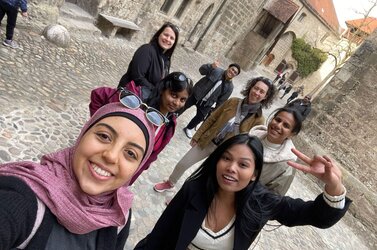
The Host Family Programme of the European Campus Rottal-Inn (ECRI) of the Deggendorf Institute of Technology (DIT) will start again in the coming summer semester. Due to the corona years, the exchange between international students and the local population suffered. As a result, the Host Family Programme unfortunately “lost” some families. This makes the search for new hosts all the more urgent.
“Our Host Family Programme is definitely a successful story,” says Andrea Ebertseder, the organiser of the programme in Pfarrkirchen. “The programme is enriching for everyone – for families as well as students,” she adds. Of course, important ties have been cut through various lockdowns and the associated distance teaching, she says. That doesn’t make it easy now that the university’s students are gradually being drawn back to campus. “But I’m counting on the people here in Rottal-Inn and on their hospitality,” Ebertseder continues. The desired and sought-after contact could happen in any conceivable form. For example, drinking coffee or cooking and eating together. A sightseeing tour in the immediate vicinity could also be a nice opportunity to get to know each other better. “In fact, the students in Pfarrkirchen bring a greater diversity, which the local people also find very pleasant,” Ebertseder adds.
The students all have a room on site, so they are not looking for accommodation. It’s simply about personal contact. They all speak English, and many also speak good German. If you would like to brush up on your language skills or enjoy exchanging ideas with young people, you can contact us at andrea.ebertseder@th-deg.de or give us a call at +49 991 3615 8863. By the way, there is no age limit for the programme. ECRI is looking forward to old and new contacts to families, couples or single people.
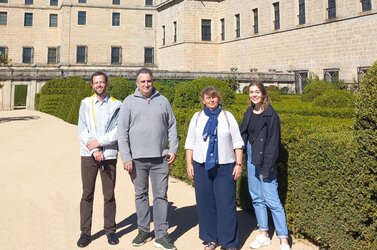
For students in the field of tourism, financial management often plays a major role after graduation. The finer points of financing, however, are not always easy for students to learn. The international FinTour project devoted itself intensively to this topic for two years and published the results in the form of an interactive online course just in time for the end of the project on 28 February.
For the FinTour project, the Deggendorf Institute of Technology (DIT) joined forces with the Prague University of Economics and Business and the Universidad Europea de Madrid. In two years of intensive cross-border cooperation, the participants have developed an online self-study course, the first part of which introduces students to the theoretical background of finance. The second part integrates the view from practice and describes the specifics of financial management in the different facets of tourism enterprises. The online course in English consists of twelve lessons and invites students to study independently. In addition to digital presentations, there are numerous examples, case studies and video and audio interviews.
For the DIT team, it was particularly important to design an engaging and interactive course that transitions well between the individual learning units and always guides students to participate through interactive H5P elements. In addition, experts from industry and academia are involved in all lessons - providing valuable and up-to-date contributions in the form of case studies and podcasts. The participants of the online course thus receive first-hand information on tourism focal points such as restaurants, hotels, travel agencies, offers from travel guides, event agencies or even spa businesses, always with a focus on the underlying financial characteristics. The course will be used in time for the start of the summer semester on 15 March in the Master's programme International Tourism Development at the European Campus Rottal-Inn (ECRI) in Pfarrkirchen.
The head of this project at DIT and ECRI is Prof. Dr. Robert Feicht. He summarises his main motivation for this cross-national and cross-university project as follows: "We have noticed that not all students in tourism have a penchant for numbers. With our course offer, we not only want to sharpen the basic quantitative understanding, but also apply it directly to relevant areas in tourism. In the end, it is always about the return on investment - also in tourism."
The FinTour project ran from 01 February 2021 to the end of February 2023 and was financed through the Erasmus programme "Partnerships for Digital Education Readiness" with funds from the EU. International cooperation is a key element: in addition to the Deggendorf Institute of Technology, the University of Economics and Business in Prague and the Universidad Europea in Madrid are also involved.
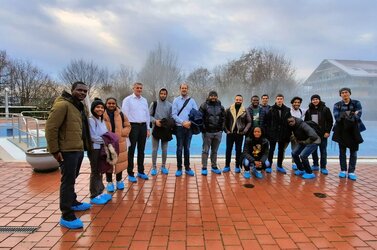
Students from the Industrial Engineering and Energy Systems Engineering study programmes from the European Campus Rottal-Inn (ECRI) worked on a project to develop concepts for a more sustainable energy supply for the thermal spa in Bad Griesbach. They have now presented the results to the spa management.
The spa triangle with its spas is an important economic factor for the region. Due to the current shortage of natural gas, the reduction of energy consumption and the use of alternative energy sources is becoming increasingly important for the neighbouring spas. As part of a student project, Prof. Dr. Matthias Huber looked for solutions together with the ECRI students. To this end, they carried out simulations of energy consumption and investigated the overall effect of the reduction in gas consumption necessary in the interests of sustainability. Combinations with renewable energies, such as electricity from photovoltaics, were also used. Based on the simulations and the testing of different variants, the students were able to come up with various ideas for reducing energy consumption.
The students presented the results of their project work to the spa management after a tour with a look behind the scenes of the feel-good spa Bad Griesbach. The concepts were discussed together and tested for feasibility.
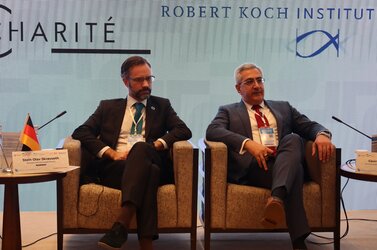
In December 2022, Prof. Dr. Georgi Chaltikyan from the European Campus Rottal-Inn (ECRI), was invited to participate and contribute to the 1st Central Asian Regional Meeting on Telemedicine that took place in Tashkent, Uzbekistan.
The event consisted of two days with extensive workshops attended by healthcare and technology specialists from all over Asia. The goal was to establish a cooperative framework, both among the Central Asian countries, and with the European partners, to develop and implement a cross-border telemedicine network in Central Asia. Prof. Dr. Georgi Chaltikyan was invited by the Robert Koch Institute and the WHO Regional Office as an established international telemedicine expert, to contribute to the analysis of the existing situation, and to help develop the roadmap for this framework.
During the 1st Central Asian Regional Meeting on Telemedicine participants presented their multi-faceted experience, exchanged ideas, and developed a preliminary roadmap of a regional telemedicine network project. They analysed different aspects of such a major telemedicine programme, including needs and requirements, capacity building and education, the technical aspects and interoperability, as well as regulations and the legal requirements. To work out the framework there were panel discussions and participants could join four different discussion groups. Prof. Chaltikyan not only participated in a panel discussion, but he also led the activities in the working group on capacity building and digital health education. At the end of the event, the participants jointly approved and signed a Declaration of Commitment to develop telemedicine and digital health in the Central Asian republics. It is expected that similar activities will be taking place in the next years, to result in the establishment of a functioning and sustainable regional telemedicine programme. Such experience can then be dublicated in other regions of the world.
The 1st Central Asian Regional Meeting on Telemedicine was attended by about 100 healthcare and technology specialists from all five Central Asian republics: Kazakhstan, Kyrgyzstan, Tajikistan, Turkmenistan, and Uzbekistan, as well as from Iran. It was jointly organised by the Deutsche Gesellschaft für Internationale Zusammenarbeit GmbH (GIZ), the main German development agency, the Robert Koch Institute, which is the public health institute in Germany, and Charité – Universitätsmedizin Berlin, one of Europe’s largest university hospitals, affiliated with Humboldt University and Free University Berlin. The local organisers were the Ministry of Health of the Republic of Uzbekistan and the Department of Management of Advanced Medical Technologies in Uzbekistan. Other prominent actors were the WHO’s Regional Office for Europe, and the Norwegian Center for eHealth Research based at the University of Tromsø.

For two years, everyone has been talking about the pandemic. But how do you communicate this or other health-related topics correctly? Students from all over the world explored this question at the Global Public Health Winterschool at the European Campus Rottal-Inn (ECRI) from 10 to 17 January 2023.
About 30 students from all over the world travelled to Pfarrkirchen for the winter school, which was offered as part of the Global Public Health (GPH) degree programme, and the same number joined virtually during the week. The event was themed around communication, which is an integral part of the work of any health authority. Among other things, the focus was on intercultural communication and how to takes place through health campaigns, scientific communication and addressing political actors. But the topics of social media in health communication was also on the agenda. The organizer of the winter school and head of the GPH Master’s programme, Prof. Dr. Sabine Dittrich, had brought in renowned reinforcement. With Dr Charlotte Hammer from Camebridge University in England and Edgar Gonzales from the International Federation of the Red Cross and Red Crescent Societies in Switzerland, international experts contributed to a successful week.
In addition, the students visited the State Office for Health and Food Safety (LGL) in Oberschleißheim together with Prof. Dittrich. They learned more about the German reporting system for infectious diseases from local epidemiologists and microbiologists. As the motto of the winter school was communication of health-related topics, the experts from the LGL went into detail about local health issues and how these were communicated with the population and the professional audience.
Outside of the courses, the students had enough programme to get to know the area and the Lower Bavarian culture. During an excursion to Passau, a joint bowling evening and a Bavarian snack, the participants had a lively exchange, true to the motto of the winter school. One of the highlights was the dinner in the restaurant of the town hall, which was made possible by the generous financial support of the ECRI Förderverein, the district of Rottal-Inn and the town of Pfarrkirchen.
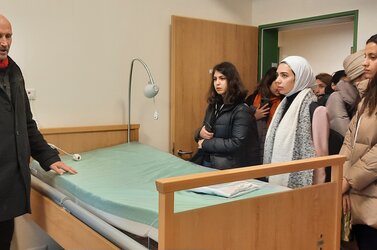
Students of the Master’s programme Healthy and Sustainable Buildings (HSB) at the European Campus Rottal-Inn (ECRI) visited the Pichlmayr Senioren-Zentrum Pfarrkirchen. They learned about the challenges of living at old age and how these are incorporated in their work as experts for healthy and sustainable building.
During the excursion, the group led by Prof. Dr. Michael Laar explored the premises, which were still empty at the time. The students were guided through the building by employees of SH Projekte, the company that planned the centre. Particular attention was paid to the structural requirements that the age of the residents brings with it and how the students can incorporate these into their work in the future. As experts for healthy and sustainable building, the students are trained, among other things, with regard to the residents and what requirements they have for the buildings. The visit to the Pichlmayr Senioren-Zentrum was therefore an important experience for the students. Since structural measures must also function well in real operation, the facility management was also present during the visit and answered the students’ questions about the facility’s care operations.
The senior citizens’ residence was only recently completed and has been accommodating its first residents since the end of November. Since the HSB students were able to visit the facility shortly before moving in, it was possible to take a look behind the scenes and into all areas.
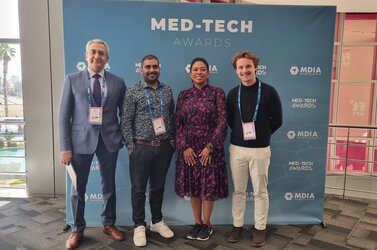
The MedTech World Summit 2022 took place in Malta this year. Prof. Dr. Georgi Chaltikyan participated in the event as the representative of the European Campus Rottal-Inn (ECRI), as a speaker, and host, and laid the ground for a possible future cooperation with the University of Malta during the summit.
Prof. Dr. Georgi Chaltikyan - the coordinator of the Master of Digital Health at ECRI - was invited to chair and host two panel discussions with participation by several distinguished experts and leaders. The panel on the first day of the MedTech was titled “Diversity, Equity and Inclusion in Data” and explored the risks of bias and unethical use of data, as well as the necessary approaches to ensuring the equitable and ethical usage of healthcare artificial intelligence. The second panel on the following day named “The AI Clinician” provided invaluable insights into the future of the artificial intelligence applications in healthcare, the hurdles and limitations to their use, and their potential in transforming the healthcare practices. Both panels received significant interest by the audience and very positive acclaims.
In between the informative congress sessions, Prof. Dr. Georgi Chaltikyan met with a number of peers and fellow-professionals, and established a good ground for a very promising collaboration between ECRI, and important digital health actors. In particular, he had an extensive discussion with his colleagues at the University of Malta who have also launched a master’s program in Digital Health one year ago. The academics from both institutions decided to explore potential cooperation aspects, to jointly advance the digital health education in Europe and worldwide.
The Malta MedTech World Summit – Connecting the Future of Healthcare, focuses on the leading innovations in emerging tech revolutionising the European medical ecosystem. With nearly 3,000 attendees, hundreds of exhibitors, and dozens of top-ranked experts in attendance, the forum provided an exciting view into the current state and the future of digital health in Europe and globally.
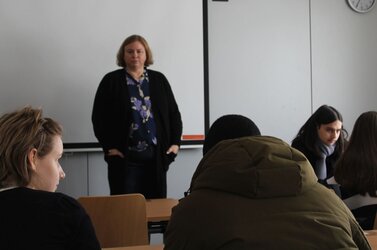
An early Christmas present awaited the pupils of the Gymnasium Pfarrkirchen (GymPan). They visited the European Campus Rottal-Inn (ECRI) in Pfarrkirchen on 20 December and were allowed to attend lectures in English, just like normal students.
The grammar school students of grades 11 and 12 were welcomed at ECRI by Prof. Dr. Michelle Cummings-Koether, who, together with GymPan teacher Kerstin Hofstett, guided them through the day. The students attended a total of four lectures from different subject areas. Each lecture lasted about 30 minutes and was rounded off with a discussion afterwards. The fact that these, like the lectures, were held in English was not a hurdle for the participating high school students, but a welcome change.
The main theme of the visit to the campus was interculturality. Therefore, this aspect was discussed in depth by all participants after the attended lectures. Particularly exciting was the question of how the various topics of the lectures can trigger intercultural interaction or even complications and how one can become aware of them. This was lively discussed by the high school students.
The cooperation between ECRI and GymPan, which allows high school students to attend lectures, was initiated by Prof. Dr. Cummings-Koehter and Kerstin Hofstett and will now be held every semester.
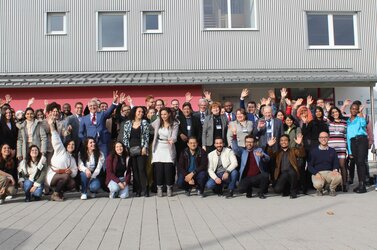
This year’s third edition of the DigiHealthDay (DHD) series received a total of 1.000 registrations from 100 nations around the world and brought together more than 400 people on-site and online, including ten keynote speakers, prominent dignitaries, experts, students, and digital health enthusiasts, exceeding by far any other event held so far at the European Campus Rottal-Inn (ECRI), a faculty of the Deggendorf Institute of Technology (DIT).
The international scientific symposium kick-started with an inspiring opening session featuring welcome addresses by Honorable Klaus Holetschek, the Bavarian State Minister of Health and Care; Wolfgang Beißmann, the Mayor of Pfarrkirchen; Prof. Dr. Horst Kunhardt, the Scientific Chair of DHD, DIT's Vice-President and Founding Director of ECRI; Prof. Dr.Dipak Kalra, the Invited International Chair of DHD; Dr. Ryan Dos Santos, the Digital Health Officer at WHO Europe Office; and Prof. Dr. Yunkap Kwankam, the Executive Director of the International Society for Telemedicine & eHealth (ISfTeH).
The DHD-2022 not only wrapped together two plenary sessions and three parallel sessions, but culminated in the enrichening and enlightening panel discussion. The discussion titled “DigiHealth-AI Quo Vadis: How to Make Healthcare AI Safe, Efficient, Ethical, Explainable, and Accountable?” was professionally moderated by Prof. Dr. Georgi Chaltikyan, Chief Organiser of the DHD-2022. Lively, interactive, and stimulating, the panel attracted much interest by all the attendees, provided a logical conclusion of what the organisers describe as a “360 Degree Immersive Digital Health Experience”, and set the stage for the next edition of the symposium, the DigiHealthDay-2023, traditionally scheduled on the second Friday in November next year.
The breakthrough moment of this year’s DHD has been the in-person visit of five speakers from three continents, including renowned global digital health leaders and academics such as Prof. Rajendra Pratap Gupta from India, Dr. Anne Snowdon from Canada, and Prof. Martin Gerdes from Norway. An opportunity to meet several of the world’s top-ranked experts in-person, to hear and learn from them, to interact with them in and out of the conference rooms, and to even plan future joint projects, was tremendously appreciated by the on-site attendees, and in particular, by the Digital Health students and young professionals at DIT-ECRI, for many of whom this was the very first live exposure to the global digital health community. In turn, speakers and guests highly acclaimed the young, diverse, vibrant and dynamic DigiHealth family in Pfarrkirchen, and unanimously called it one of the most devoted, attractive, inspiring, and energising communities of future Digital Health leaders they have ever met.
Another important feature in this turbulent time, has been the visit of a delegation from the partner university in Ukraine, the National Healthcare University in Kyiv, lead by Prof. Dr. Ozar Mintser, one of the pioneers of medical informatics in Eastern Europe, who have made it all the way from the Ukrainian capital Kyiv to Pfarrkirchen, to contribute to the DHD-2022.
The event ended in the evening with a delightful after-event reception, the “DigiHealthEvening”, that provided the on-site community within the DigiHealth-DIT-ECRI family an ambiance for networking, enjoyment, and celebration with awards, drinks, snacks, music, and many beautiful surprises. The positive vibes sent by the DHD continue reverberating even weeks post-event as witnessed by the overwhelmingly positive feedback and testimonials that the organiwsers are still receiving.
The DHD-2022 was kindly supported by its sponsors SHL Telemedizin GmbH, the Premier Sponsor, and ITD GmbH. The following partners also contributed to the great event: Bavarian State Ministry of Health and Care (StMGP), Healthcare Information and Management Systems Society (HIMSS), International Society for Telemedicine & eHealth (ISfTeH), Consortium of Educational Institutions in Digital Health (CONEDIG), International Medical Informatics Association (IMIA), European Federation for Medical Informatics (EFMI), German Society of Digital Medicine (DGDM), German Telemedicine Society (DGTelemed), Bavarian Telemedicine Alliance (BTA), Armenian Association of Digital Health (AADH), District Rottal-Inn, and City of Pfarrkirchen. As partner universities DHD is glad to have had the Russian-Armenian University (RAU), the Peoples' Friendship University of Russia (RUDN) and Shupyk National Healthcare University of Ukraine (Shupyk NHU of Ukraine) on its side. DigitalHealthNews.eu contributed to the big event as DHD’s media partner. The Munich Digital Health Summit teamed up with DHD-2022 and supported the symposium as a partner event. The DHD-2022 has the Journal of Applied Interdisciplinary Research (JAIR) and the Ukrainian Journal of Medical Informatics and Engineering as its publication partners.
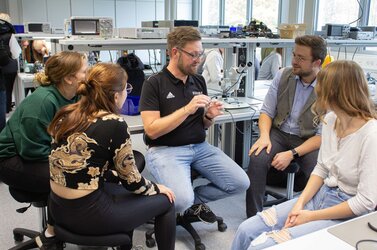
The European Campus Rottal-Inn (ECRI) offered pupils from the Pfarrkirchen Vocational School an insight into the laboratories and study programmes at the campus for the first time. During the visit, the prospective specialists learned about new technologies and their applications and took away a lot of knowledge for their future work.
A total of 66 students from the Pfarrkirchen vocational school came to ECRI. They were accompanied by teachers Johann Zeilberger, Aylin Gonnert and Stefanie Plöchl. After the welcome by the ECRI Dean, Prof. Dr. Georg Christian Steckenbauer, the students were given insights into the possibilities of study orientation at the campus as well as the new degree programme Building Products and Processes in short lectures. This was important information for the future specialists, as it will enable them to offer comprehensive advice on orientation, further education or dual studies in their future work.
Afterwards, they were divided into three groups, which took turns at the activities on campus. From then on, the students faced the challenge of the English language, which is used in all lectures and the labs at ECRI. The DigiHealth & Smart Tourism Lab station made the most impression on the participants. They learned about different digital technologies. The students were allowed to try out a variety of iHealth devices such as the iHealth Air pulse oximeter, iHealth View for measuring blood pressure and pulse or iHealth Feel for monitoring blood levels. The most impressive feature was eye tracking, which can be used to read people's emotions. Used correctly, this technology can be extremely helpful for the future specialists in their future jobs. As student Marc Luco describes, it could be used to find out what supervisors look for in job interviews, what impressions make the difference or whether reactions differ depending on the age or gender of the applicants. He is sure that eye tracking will expand his everyday professional life in a few years.
In the EEE Lab, the laboratory for electrical and energy engineering, the pupils were allowed to carry out soldering experiments on circuit boards themselves. In addition, the lab engineers presented them with the model of a heat pump and explained how the lab's own 3D printer works.
ECRI student Hashem Alshawabkeh showed the prospective labour market services specialists important on-site facilities such as the canteen and the library during the campus tour. In lectures such as Scientific Writing, Standards of Green Buildings or Engineering Maths, they got an impression of teaching at ECRI and in Healthy and Sustainable Buildings, the HSB Lab, they got a taste of sustainability, a pillar of ECRI. During the tour, the students were able to address their questions directly to the student and thus exchange ideas at eye level.
In addition to an overview of ECRI's offerings and opportunities, the laboratories and facilities on campus, the students from the Pfarrkirchen vocational school benefited above all from the technologies and their diverse applications, which they learned about during their visit and will use later in their professional lives.
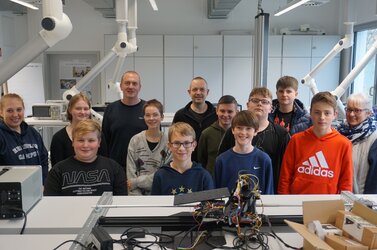
On 23 November, pupils from the Realschule Pfarrkirchen (RS-PAN) visited the European Campus Rottal-Inn (ECRI) for a soldering practical. The knowledge and skills acquired there will be used in the RS-PAN's event workshop in the future.
As part of a cooperation between the ECRI and the RS-PAN, in particular the school's events group, nine pupils visited the campus to complete a soldering practical. The participants of the AG had previously received a technical introduction by Prof. Dr. Sascha Kreiskott. They learned how to disassemble a loudspeaker and check the individual parts for function before reassembling all the components. There they had learned how to systematically check the function of supposedly defective devices that had therefore been sorted out. It turned out that one loudspeaker was simply set incorrectly and therefore made a lot of noise. The pupils had also learned from Prof. Kreiskott how to check cables, which are used in the AG.
In the subsequent soldering practical at ECRI, the members of the event AG were introduced to the finer points of soldering. The aim is that in future the pupils will be able to repair the cables and technology used in the AG themselves by soldering. This way, they can continue to use them and do not have to buy new ones. The pupils' soldering skills directly benefit the environment. Before getting to work on the cables, the participants were allowed to try their hand at soldering a "Wonkey Wire", the game known in Germany as hot wire.
The soldering practical, led by Prof. Dr. Sascha Kreiskott and teacher Stefanie Kolb, took place in the EEE-Lab, the laboratory for electrical and power engineering, at ECRI. They were supported by laboratory engineer Carola Ebner and Stefan Hofbauer. The soldering kits used were provided by the TfK - Technik für Kinder e.V. association.
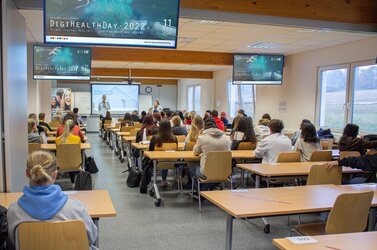
On 11 November, the DigiHealthDay (DHD) will take place for the third time at the European Campus Rottal-Inn (ECRI). The scientific symposium brings together internationally renowned experts, students and the interested public for one day to exchange ideas on the topic of digital health. Registrations for the free event are still possible.
This year, DHD-2022 is all about AI research, ethics and regulation in the field of Digital Health. The individual panels will look at these aspects from different angles. In the morning, keynote speeches will cover topics such as the modelling, development and implementation of transformed health ecosystems, digital health technologies or digital health innovations, including progress, setbacks and prospects. In parallel sessions, participants can then choose between a panel on the European Federation for Medical Informatics (EFMI), the student session or the scientific panel.
After the joint lunch break, the experts will address, among other things, the first WHO regional action plan for digital health in Europe, which will be presented by the WHO European Regional Office, in various keynote presentations. Other presentations will focus on the role of digital transformation in improving the performance of the health system or on health data as the key to future-oriented, data-based care. Finally, speakers from Canada, India, Norway, Austria and Germany will explore the question "DigiHealth-AI Quo Vadis: How to make AI safe, efficient, ethical, explainable and accountable?".
Participation in DHD-2022 is free of charge. It will not only take place on site at ECRI in Pfarrkirchen, but can also be attended virtually via Zoom. To participate on site, simply send an email with the subject "ONSITE" to info.digihealth@th-deg.de. Further information on the event and current updates can be found on the website www.th-deg.de/digihealthday.
DHD-2022 is supported by SHL Telemedicine as Premier Sponsor and iTD as Sponsor. Other partners of the event are the Bavarian State Ministry for Health and Care (StMGP), the Healthcare Information and Management Systems Society (HIMSS), the International Society for Telemedicine & eHealth (ISfTeH), the Consortium of Educational Institutions in Digital Health (CONEDIG), the International Medical Informatics Association (IMIA), the European Federation for Medical Informatics(EFMI), the Deutsche Gesellschaft für Digitale Medizin e. V. (DGDM), the German Society for Telemedicine e.V. (DGTelemed), the Bavarian TelemedAllianz. (BTA), the Armenian Association of Digital Health (AADH), the City of Pfarrkirchen, the Russian-Armenian University (RAU), the People's Friendship University of Russia (RUDN), the National Healthcare University of Ukraine (NHU), DigitalHealthNews. eu (media partner) and Munich Digital Health Summit (partner event).

Excellent health care is an important topic in Germany. Among refugees and migrants, the topic of health prevention is not always as present as it should be. In order to promote health promotion and prevention among refugees and migrants in the future, the European Campus Rottal-Inn (ECRI) is cooperating with the Health Region Plus Passauer Land.
At the kick-off event with Prof. Dr. Thomas Spittler and Regina Escher from ECRI and Dr. Heidi Brandl, Head of the Department of Medical and Social Pedagogical Health Promotion at the Passau Health Department and the Head of the Health Region Plus Passau Land, Lisa Fraunhofer, the further roadmap of the cooperation was worked out. In line with the theme of the year, heart health, the focus is on promoting physical activity to prevent cardiovascular diseases such as heart attacks and improve heart health in general. To this end, three VHS courses in "easy language" are being launched as a pilot project in the Passau Land region.
ECRI is providing scientific support for the project. The focus is particularly on intercultural communication, which plays an important role in the work with refugees and migrants. ECRI is working on possible digitalisation strategies to make health topics even more target group-oriented and accessible in the future. The aim is to use this to make refugees and migrants aware of preventive measures in order to prevent cardiovascular diseases, for example. A key to this is the promotion of physical activity measures. The evaluation of the results from the pilot project is also on the agenda.
In the next step of the cooperation, those responsible at ECRI and the Gesundheitsregionplus Passauer Land want to set up a Stammtisch. This is planned for November and will involve regional actors to promote health promotion and prevention for refugees and migrants.
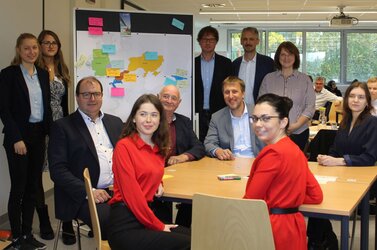
In the week from 10 to 14 October, the "Summer School Health Tour 2022" took place at the European Campus Rottal-Inn (ECRI) in Pfarrkirchen. This brought together students and lecturers from five partner universities to promote international initiatives in the areas of research and teaching in health tourism.
A total of 25 students and 10 lecturers from Georgia, the Czech Republic, Hungary, Croatia and Ukraine as well as the Secretary General of the European Spas Association (ESPA) in Brussels took part in the Summer School in Pfarrkirchen. During the week, everything revolved around health tourism and how research and teaching in this field can be linked on an international level. The Summer School had set itself the goal of bringing together training institutions, trainees and practical companies in the district of Rottal-Inn. In this way, training should be better oriented to the needs of the local health tourism businesses in the future. A discussion with representatives of numerous regional businesses took place in the middle of the week under the title "Science meets Industry". The participants were able to take away important ideas and make interesting contacts for future projects and recruitment. This format will continue beyond the Summer School.
In addition, the creation of ideas for future joint projects and events in health tourism for the district of Rottal-Inn was on the agenda. In order to get to know the region better, a health tourism excursion to the Naturium in Ering am Inn as well as to Bad Griesbach took place on Thursday, where the participants were given a guided tour of the spa and the guest services by Mr Altmannsberger and Mr Weinzierl. Afterwards, the group visited the Hotel Maximilan in Bad Griesbach. On this day, promising contacts were made between the students and the companies.
It is precisely the exchange with partners from business and industry and the cooperation on an international level during the Summer School that form the recipe for success for the transnational cooperation. Prof. Dr. Marcus Herntrei, head of the project, emphasised: "This first meeting of all partners from six countries was an inspiring exchange on the status quo in health tourism. We were able to deepen valuable contacts and agreed on very concrete next steps. Already in December 2022, we will continue with mutual working visits as well as the winter workshop of the lecturers. I am proud that the European Campus in Pfarrkirchen is the breeding ground for this great international project".
The "Summer School Health Tour 2022" was financially supported by the friends & associates of ECRI, the Rottal-Inn Economic Development Corporation and WEKO Pfarrkirchen. It was organised as part of the four-year project "Internationalisation in International Tourism Management / Health Tourism" and is funded by the German Academic Exchange Service (DAAD). The project at ECRI is led by Prof. Dr. Marcus Herntrei.
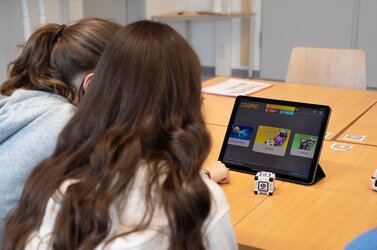
The European Campus Rottal-Inn (ECRI) is taking part in this year’s Europe-wide CodeWeek. Young people who are interested in programming will get their money’s worth on Thursday, 27 October.
Under the title “Programming with Cozmo”, ECRI is offering a programme for young people between the age of 12 and 15. Participants will learn to programme the robot Cozmo with the programming language Scratch. No special previous knowledge is required. What is important is to have fun and be interested in programming, hacking and inventing. The young people will learn everything else from Dimitrios Athanasopoulos, lab engineer and Cozmo expert at ECRI.
Since the event is offered in English, language knowledge is required. German-language support will be provided in the terms of being able to ask questions in German. The event will take place on 27 October from 3 to 4.30 pm in the DigiHealth & Smart Tourism Lab in the SILC Building at ECRI in Pfarrkirchen. As the number of participants is limited to 10, prior registration is requested by sending an e-mail to Andrea Ebertseder (andrea.ebertseder@th-deg.de).

At the start of the semester in early October, the European Campus Rottal-Inn (ECRI) in Pfarrkirchen gets very busy. This is also noticeable on the housing market in Pfarrkirchen and the surrounding area, as many students are looking for a suitable place to stay. To support both, those looking for accommodation and landlords, the university offers a housing exchange.
“The demand for flats is particularly high at the moment,” says Daniela Schwertlinger, a member from the International Office at ECRI and responsible for housing support. “To ensure that as many students as possible have a place to live at the start of the semester, we rely on the public’s help.” Schwertlinger asks landlords in Pfarrkirchen and the surrounding area to publish their offers on the university’s housing exchange. Free rooms in existing shared flats can also be offered here.
The university’s internal housing exchange went online in the winter semester 2016/2017. Creating an offer in the housing exchange is easy and takes less than ten minutes. The selected furniture/applications are translated automatically into English. Photos can also be attached to make the offer visually appealing. The International Office is happy to support landlords, for example if they want to create an English-language tenancy agreement.
The housing exchange can be viewed at www.th-deg.de/wb. If you have any questions about the housing programme, Daniela Schwertlinger is available as contact person (daniela.schwertlinger@th-deg.de or via phone +49 991 3615 8843).
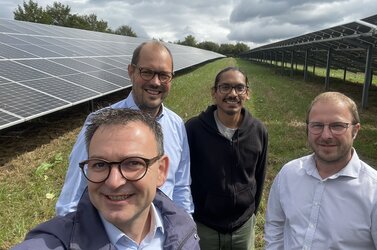
Against the backdrop of the energy crisis, renewable energies are to be increasingly used in the future. Once central technology is photovoltaics (PV), which generates electricity from the sun’s rays. As part of a Master’s thesis, the European Campus Rottal-Inn (ECRI) is looking at how solar energy can be used even more efficiently in the future.
There are already several PV parks in the district of Rottal-Inn. The plant in Gangkofen is equipped with innovative bifacial modules. These are special because they also produce electricity via the rear side and are even more efficient than conventional modules. In his Master’s thesis, ECRI student Irineu Auccappure, supervised by Prof. Dr.-Ing. Matthias Huber, is investigating the extent to which the use of radiation on the back of bifacial modules increases the use. For that he is examining factors such as the installation and orientation of the modules in the Gangkofen PV park.
Since realistic measurement and evaluation is not possible in the laboratory, Irineu Auccappure carried out the practical part of his Master’s thesis on site at the PV park. In an experiment, he covered the backs of selected modules with cardboard supported by wooden sticks and compared the energy production. The data collected in this way can be used to find out how the bifacial modules are set up and aligned to make the best use of the solar energy. One hundred percent of the materials used for the project are recycled materials.
Sustainability is the main theme for the operators of the PV plant. Thus, the park with a total output of 4,500 kWp not only produces electricity for an average of about 2,500 households, but was also planned and built according to the latest standards by sunbird energy GmbH. In the spirit of sustainability, the management of the PV park, FinRo®, always tries to leave a strip of green per row during each mowing so that there is enough food for the insects.
During the visit to the PV park, Prof. Huber from ECRI, Jan Kiermeier, Managing Director of sunbird energy GmbH and Harald Eder from FinRo® agreed to continue and expand the cooperation between the campus and the operators of the plant.
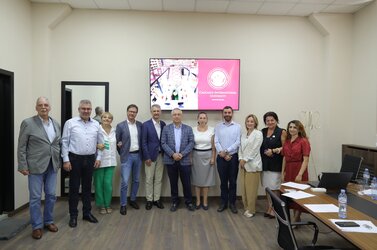
The European Campus Rottal-Inn (ECRI) of the Deggendorf Institute of Technology (DIT) launched the Health Tour project at the beginning of the year, which is dedicated to the internationalisation of research and teaching in the field of health tourism. In order to advance this project and establish a new cooperation, a delegation from Pfarrkirchen visited the Caucasus International University (CIU) in Tbilisi, Georgia.
The focus of the visit was on getting to know each other, networking and exploring future cooperation possibilities in line with DIT's focus in research and teaching. The ECRI delegation consisting of Dean Prof. Georg Christian Steckenbauer, Prof. Dr. Marcus Herntrei, Dr. Guido Kaufmann and Dr. Viachaslau Nikitsin was welcomed by Vakhtang Tsivtsivadze, the founder of CIU, Kakhaber Kordzaia, the Rector of CIU and the Dean of the CIU School of Business, Giorgi Abashishvili. In short presentations, ECRI introduced itself with its Health Tour project and CIU gave an overview of its institution. Prof. Steckenbauer and Prof. Herntrei each gave a lecture on health tourism topics for the academic staff of CIU.
As part of the Health Tour project, a Summer School will be held in Pfarrkirchen from 10 to 14 October, which will also be attended by representatives of the CIU. The project is led by Prof. Dr. Marcus Herntrei from ECRI and brings together partners from the Czech Republic, Hungary, Ukraine, Belgium, Croatia and soon Georgia. Important components of the project are meetings and exchanges on an international level, such as at the Summer School taking place in October, or through mobility of teaching staff and students between the partners.
The Health Tour project will be implemented during the period from January 2022 to December 2025 and is funded by the German Academic Exchange Service (DAAD) through the HAW.International programme.

With the open lectures for adults, the European Campus Rottal-Inn (ECRI) offers a format for education-hungry adults. The next lecture in the series will take place on 22 September at 5 pm. The topic this time is: Climate protection concerns us all – the ecological footprint.
There is talk everywhere that humans are destroying planet earth. With the way we manage, consume and empower ourselves. In fact, there is probably little that can be done about it. But does this image help us when it comes to stopping climate change? Prof. Josef Steretzeder explores this question in an interactive workshop at the open lectures for adults. Together with the participants, he will determine their personal ecological footprint, explain why less waste alone is not the solution and how a positive image of humanity can help us in climate protection.
The open lectures for adults is open to anyone interested, regardless of prior education. The lecture on climate protection will take place at the Sustainability and Innovation Lab Centre (SILC) at the campus in Max-Breiherr-Straße in Pfarrkirchen. Prior registration is not necessary.
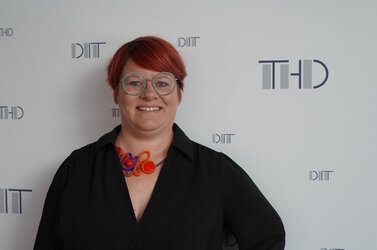
The Deggendorf Institute of Technology (DIT) has been able to attract a first-class appointment for the professorship of "Global Public Health". Dr. Sabine Dittrich has held the position at the European Campus Rottal-Inn (ECRI) in Pfarrkirchen since 1 August. Her students in the Master's programme Global Public Health can look forward to a lecturer with worldwide experience in public health.
Colourful and curious - that is simply Prof. Dr. Sabine Dittrich's motto. "From my red hair to my stories from all over the world - colourful, curious, yet determined and assertive. That probably describes me best," Dittrich says about herself. Her curiosity and hard work have taken as far as Singapore, England, the Netherlands, Laos and Switzerland. After almost 20 years abroad, the native of Augsburg is now returning to Bavaria. In her luggage: a lot of experience in terms of health care and research. Her area of expertise relates to how pathogens are detected, diagnosed and communicated in the health system. Her work in Laos and Geneva had the greatest impact on the microbiologist. In Asia, she researched and practised at the country's largest state hospital; in Geneva, she sat as an expert at the round table to help make global health decisions. She knows the systems inside and out. Sabine Dittrich has worked with the world's top infectious disease researchers, held positions at the EU and the Tropical Institute in Berlin, and maintains close ties with the University of Oxford. She now wants to bring her expertise, experience and networks to DIT. "I am looking forward to meeting the students and working with them on how to build better health systems. It will be great to educate this next generation to ensure that all people around the world have access to good healthcare including new technologies," says the newly appointed professor. At DIT, the combination of international orientation and a pragmatic and innovative environment appeal to her. Her students can expect practical examples and interactions with colleagues in international organisations as well as many discussions from her. After all, Dr Sabine Dittrich knows that only those who are open to new opinions and data can follow scientifically sound paths. Until the students return to the university in early October, the new professor and her dog are busy settling in and getting used to the local dialect.
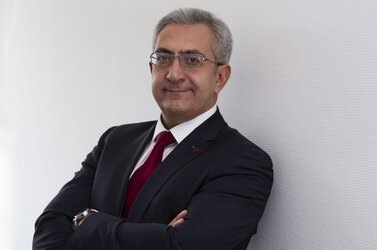
On 11 November the DigiHealthDay (DHD) will take place for the third time. The international scientific symposium will be preceeded by two more workshops and an Erasmus+ blended intensive programme on artificial intelligence in healthcare. Registration to all events of the DHD22 series is still open. In addition, the submission deadline for scientific papers will be extended until 1 October.
The European Campus Rottal-Inn (ECRI) of the Deggendorf Institute of Technology (DIT) hosts the DHD for the third time, this year as a hybrid event (on-site and live stream). In the run up to the main event on 11 November, there will be two more workshops in October on relevant topics of Digital Health. Participation in the virtual workshops is free and registration is open on the official website: www.th-deg.de/digihealthday
Preceeding the main event, there will be an Erasmus+ blended intensive programme from 7 to 11 November. The programme titled “Explainable and Ethical AI in Healthcare” is funded by the European Union under the Erasmus+ programme and will be hosted by DIT-ECRI, University of Agder (Norway), Aalborg University (Denmark) and Luleå Technical University (Sweden). People interested in participating in the programme can register by sending an e-mail to info.digihealth@th-deg.de, including name, affiliation / position, and study programmes (for students) until 1 October.
Researchers and scientific staff can also contribute to the DHD22 by submitting scientific papers in the field of Digital Health to the committee. Scientific contributions will be published jointly in DIT’s Journal of Applied Interdisciplinary Research (JAIR) and the Ukrainian Journal of Medical Informatics and Engineering, to support the Ukrainian colleagues in the field of Digital Health research. In addition to that there is an extraordinary chance for students to win a cash price for their R&D project, including the thesis work on Digital Health topics. The deadline for both submissions, the scientific papers and the student projects, will be extended until 1 October. Information on submissions and criteria can be found on the official website: www.th-deg.de/digihealthday
The main DHD22 event on 11 November includes plenaries, scientific and student sessions, a special EFMI Session, and a panel discussion. The international scientific symposium features Prof. Dipak Kalra (UK), Prof. Bernd Blobel (Germany), Prof. Rajendra Gupta (India), Prof. Sarah Wamala Andersson (Sweden), Prof. Louise Pape-Haugaard (Denmark), Prof. Martin Gerdes (Norway) and other world-renowned speakers.
The DHD22 series is hosted by DIT-ECRI in cooperation with its sponsors and partners: Bavarian State Ministry of Health and Care (Stmgp), Healthcare Information and Management Systems Society (HIMSS), International Society for Telemedicine & eHealth (ISfTeH), International Medical Informatics Association (IMIA), European Federation for Medical Informatics (EFMI), German Society of Digital Medicine e.V. (DGDM), German Telemedicine Society (DGTelemed), Bavarian Telemedinice Alliance (BTA), Armenian Association of Digital Health (AADH), City of Pfarrkirchen, Russian-Armenian University (RAU), People's Friendship University of Russia (RUDN), National Healthcare University of Ukraine (NHU), and DigitalHealthNews.eu (the media partner).
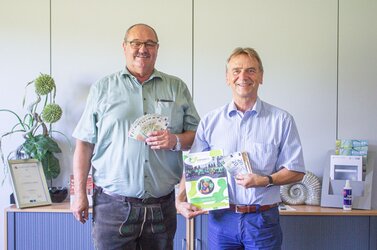
At the European Campus Rottal-Inn (ECRI) summer fest in July, various cakes were sold at the international bake sale. The proceeds from the cake sale have now been donated to the Kinderkrebshilfe Rottal-Inn e.V. (Children’s Cancer Aid).
It is a tradition that cakes are sold for a good cause at the ECRI summer fest and the proceedings are donated to a charity. This year, the cake sale raised a total of € 385. Campus Director Prof. Dr. Horst Kunhardt added the remaining difference to €500 from his own pocket, which were donated to the Kinderkrebshilfe Rottal-Inn e.V..
For Josef Hofbauer, the 1st chairman of the Kinderkrebshilfe Rottal-Inn e.V., the donation is an important signal and enabled the association to support children with cancer and services that are not covered by health insurance. In addition, donations can also help many families who are in financial need due to the disease, for example, when the salary is not enough or the parents have to stop working to be able to care for their child. Every donation, no matter how large or small, is needed and goes directly to where it is needed. Hofbauer emphasised during his visit to the campus. He also exchanged views with Prof. Kunhardt on the palliative and hospice situation in the Rottal and the surrounding districts of Passau and Deggendorf. The lack of palliative care and assistance in the region makes the work of the Kinderkrebshilfe Rottal-Inn e.V. all the more necessary.
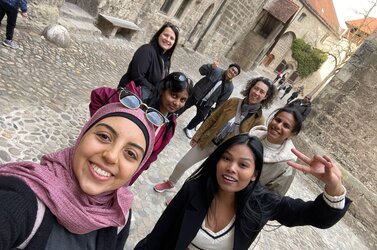
At the European Campus Rottal-Inn (ECRI), numerous young people will once again begin their studies in October. Many of them come from a different country and cultural background. In order to promote cultural exchange and to bring students closer to the Bavarian culture, ECRI is once again offering the Host Family Programme this semester. Interested students can register now.
The Host Family Programme enables international students to make contacts off campus and to get to know the Bavarian culture and way of life. For this purpose, the university establishes contact between students and locals, who then meet informally and as often as they like. Whether it’s coffee and cake, a trip to the beer garden, a games evening or cooking together. There are many opportunities to introduce students to the area and culture.
Participants in the Host Family Programme don’t need to be afraid of possible language barriers. Most students know German very well and are happy to use their language skills in conversation with locals. For locals, too, the Host Family Programme offers the perfect opportunity to speak English casually and thus deepen their language vocabulary. In addition, they get to know the respective country of the students, its inhabitants and their culture. Last but not least, friendships are also made and togetherness is enriched. A small insight into the programme is provided by the university’s podcast, in which participants share their experiences so far. You can find the podcast at: https://www.th-deg.de/campustalk.
Further information and the application form for the Host Family Programme can be found on the website at www.th-deg.de/hostfamily. If you have any questions, please contact Andrea Ebertseder via e-mail at andrea.ebertseder@th-deg.de or give her call on +49 991 3615 8863.
The Host Family Programme is a non-profit organisation of the Deggendorf Institute of Technology, which is dedicated to the integration of foreign students. At ECRI in Pfarrkirchen, the programme started for the first time in the winter semester 2019/2020 with six host familied and ten students.
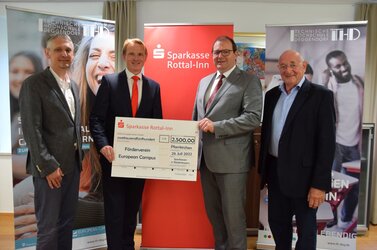
The European Campus Rottal-Inn (ECRI) is pleased to announce a donation from the District Association of the Lower Bavarian Sparkassen to the ECRI Support Association. The cheque for € 2,500 will directly benefit the students, who will have access to a drinking water dispenser from October.
Martin Ruhland, Chairman of the Board of Sparkasse Rottal-Inn, presented the cheque from the District Association of the Lower Bavarian Sparkassen. Dean Prof. Dr. Georg Christian Steckenbauer and university coordinator Georg Riedl were also present when the cheque was handed over to Michael Fahmüller, the first chairman of the ECRI support association.
The money from the donation will go towards a water dispenser on campus, from which students will benefit from the coming semester. The water dispenser not only supplies fresh drinking water, but also counts how many plastic bottles are saved by students refilling their bottles. The project not only demonstrates how important it is to take care of water resources, but also how good the water quality is in Germany. For many students, drinkable water from the tap is so unimaginable that they resort to water from plastic bottles. With a project on drinking water, the university wants to sensitise students to the issue. For example, signs saying "Drinking Water" have already been placed on the taps in the university. Thanks to the donation from the District Association of Lower Bavarian Savings Banks, this project can be expanded to include a water dispenser and the built-in meter will make the extent to which this is done for the environment clear, thus contributing to sustainability.
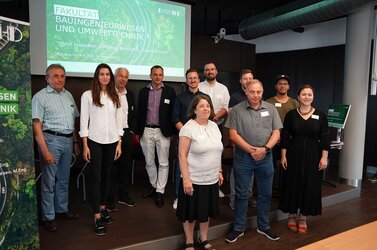
An event was recently held at the Deggendorf Institute of Technology (DIT) campus for company representatives and researchers to learn about advances in drone and software technology in the field of digital inspection of buildings and infrastructures. With over 120 participants and positive feedback throughout, the event was a great success.
Under the title “Digital Inspection: Buildings, Structures, Drones & more”, the modern and complex topic of “digital inspection in construction” was extensively examined from several sides. After a welcome by the university management, represented by Prof. Dr. Horst Kunhardt, experts from STRUCINSPECT (a subsidiary of the world market leader and manufacturer of innovative cranes PALFINGER) reported on the possibilities of digital building inspection in the context of building data modelling, or BIM for short, drones and software. With the help of a practical example of a motorway subway, the speakers impressively demonstrated how digital inspection can be carried out in practice today.
Afterwards, Louisa Harmann, Customer Success Expert of the Munich-based company Fairfleet GmbH, spoke about challenges and solutions of buildings and roof inspection from the air and presented many practical examples and applications of drone technology.
This was followed by a panel discussion in which, in addition to the speakers from the two keynote presentations, the founders of the Deggendorf-based start-up “Squadron”, which was founded by DIT students at the European Campus Rottal-Inn (ECRI) in Pfarrkirchen, also had their say. Everyone agreed that technological progress can make the processes of recording, documenting and eliminating defects many times faster and easier. Finally, there was an opportunity for informal exchange for guests and speakers present.
The number of 120 participants at the event shows the great interest of the industry in the topic. The initiative for the event came from Hubert Girschitzka, Business Development Partner of STRUCINSPECT in Bavaria and Pfarrkirchen’s former mayor Georg Riedl.
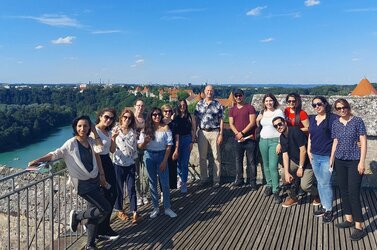
On 15 July, students from the Healthy and Sustainable Buildings course at the European Campus Rottal-Inn (ECRI) went on an excursion together with course director Prof. Dr. Michael Laar. They visited the company Schlagman Poroton and the town of Burghausen.
The group started at the Schlagman Poroton company in Zeilarn. The students learned about various building materials, including the world's best pure mineral highly insulating brick. The know-how and the range of products, as well as the ultra-modern production facilities, were therefore particularly interesting for the students at Schlagman Poroton. The company then invited the students to lunch together in Marktl.
Afterwards, the group went on to Burghausen. They immersed themselves in medieval architecture at the longest castle in the world. In addition to the buildings of the castle, the students also visited the museum with Renaissance paintings of the Bavarian State Gallery. They discussed, among other things, the development of perspectives in paintings since the Renaissance until today.
Urban planning also plays a major role for the students of the Healthy and Sustainable Buildings programme. Therefore, the group explored the historic city centre and the Grüben as an example of a well achieved balance between preservation of the historic substance and modern use at the same time. The adjacent Wöhrsee as an inner-city and sustainable leisure option was also on the agenda. During the excursion, the international students were not only interested in the technical topics. They also absorbed the information about the development of Bavarian culture. The knowledge about the historical development as well as the modern and innovative building materials form an important basis for the students' future work in Bavarian and German companies.
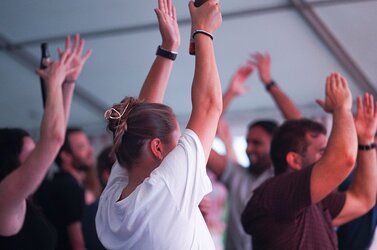
On Saturday, 9 July, after a two-year break, the European Campus Rottal-Inn (ECRI) in Pfarrkirchen was finally able to organise a summer fest again. The event attracted both young and old visitors, students and locals alike, who all got their money's worth.
After the official welcome of the guests by Dean Prof. Dr. Georg Christian Steckenbauer and the 2nd Mayor of Pfarrkirchen, Hermann Gaßner, the young visitors immediately joined the Children's University. The topic this time was optical illusions and why we see what isn’t. The next generation made the human kicker unsafe and tried their luck against the 1st team of TuS Pfarrkirchen e.V.. At the Spielecafé der Generationen, everyone played together in colourful teams.
Those who wanted to learn more about the campus could watch exciting experiments at the Open Labs, ask the lab engineers questions and also try out experiment themselves. In the two campus tours, visitors not only learned more about ECRI, the students, the focal points and the history of the international campus in Pfarrkirchen, Lower Bavaria, but also stopped off at all the labs, the library and the cafeteria. There, the physical well-being was well taken care of with international dishes and ice cream. Those who wanted a sweet dessert afterwards could choose from a variety of international cakes. The proceeds of the cake sale will be donated again this year to the Kinderkrebshilfe Rottal-Inn e.V.. The Lazy Cat provided various coffee specialities and aperitifs with its Catmobile.
In the evening, the ECRI band played, in a small line-up due to the upcoming exam period, and heated up the audience in the marquee. The student duo played a colourful mix of well-known songs that invited the audience to sing along. Afterwards, the band Pinja Daunen stepped it up a notch with a mixture of ska, rock and indie and made the tent shake. After a few encores and almost two hours of playing time, Pinja Daunen closed ECRI's Summer Festival 2022 with their last song. The students were so enthusiastic about the musicians that they spontaneously stormed the stage to take a photo together.
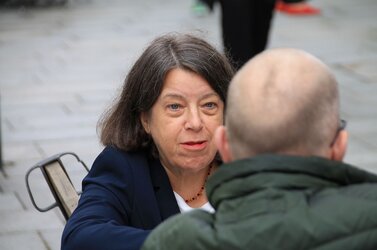
On Tuesday, 5 July, the European Campus Rottal-Inn (ECRI) will once again host a Science Bench. At this event, Anna Schmaus-Klughammer, LLB (hons) will take a seat on the Science Bench between 12 noon and 2 pm and exchange views with the public on improving healthcare in the Rottal-Inn district.
Science rarely takes place only in the lecture hall. Especially when it comes to the topic of healthcare in rural areas. After all, the topic affects everyone in the district. That is why ECRI takes science outside through the Science Bench to the people it affects. To be more precise, in the Pfarrkirchner Allee near the Lazy Cat café. Anna Schmaus-Klughammer is available for a chat for two hours and, together with the population, explores the question of how the improvement of healthcare in the district of Rottal-Inn can be improved.
In the med4PAN project, Anna Schmaus-Klughammer and her team are looking for solutions to improve healthcare in the Rottal-Inn district. The motto of the project is: "Breaking the limits of telemedical care in rural areas! The knowledge gained is not only profitable for our region, but can also help other districts. Interested citizens can ask Anna Schmaus-Klughammer directly how exactly the project proceeds and what steps are necessary to improve healthcare in the district. Have a chat on the science bench!
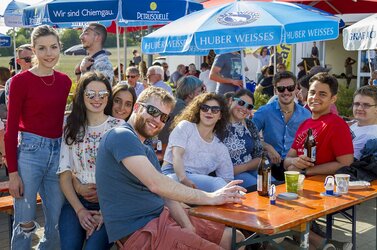
The time has come: After a two-year break, the European Campus Rottal-Inn (ECRI) is organising a summer party again. On Saturday, 9 July from 2 pm onwards, our official mascot, the panther Deggster, will be dancing on the campus grounds.
Both young and old guests will get their money’s worth at the summer festival. Whether at the children’s university on the topic of “Optical Illusions – Why we see what is not there” or at experiments in the ECRI labs, there are many exciting and new things to discover. If you want to learn more about the campus, you can take a guided tour of all areas of ECRI and ask questions about studying and teaching in Pfarrkirchen. There will also be various hands-on activities such as the magic ball, wonky wire or bagpipes at the Technology for Children stand, the IKAROS Virtual Reality Experience by the Techniker Krankenkasse and a reaction game by AOK. The Spielecafé der Generationen e.V. offers entertainment for all ages with a range of board games. One of the highlights is the human kicker, where, among others, the men’s team of TuS Pfarrkirchen e.V. will compete against the students. But all other football fans are also cordially invited to take part in the human foosball.
The physical well-being is also well catered for. The Mensa will be offering a variety of hot and cold food, with vegan and vegetarian options. Drinks will also be sold by the student organisation RESP e.V. There will be an international cakes sale, where all the proceedings will go to the Rottal-Inn Children’s Cancer Aid. You can buy coffee from the Lazy Cat Mobile. They will also sell some summery aperitifs.
The summer festival has special highlights starting at 7 pm with the ECRI band. After their performance the band Pinja Daunen will heat up the audience in the large tent with a mix of indie/rock/ska.
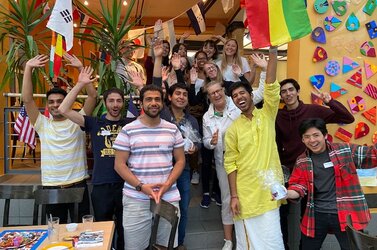
At the end of May, everything at the Deggendorf Institute of Technology (DIT) revolved around the international. From intercultural training to live cooking, a colourful programme was offered during the International Weeks to promote cultural exchange.
According to Nathalie Banehr, the International Office team can look back on informative and entertaining International Weeks at all three study locations – Deggendorf, Pfarrkirchen and Cham. There were information events on summer schools and stays abroad for DIT employees. Students from the Master’s programme in Strategic and International Management offered intercultural training on Colombia, Brazil and South Korea. Many other events made the week a unique time: the student association ESN organised an International Dance Day and the international tutors offered a hike to Schwellhäusl. In Deggendorf, there was the Quiz around the World as well as the popular Erzählcafé. At the same time, the KULTURcafé took place at the European Campus Rottal-Inn. The Celebration of Cultures in Cham was a great success. The highlight for everyone was Taste the World as live cooking on Zoom. And for the first time, visitors from Pfarrkirchen came to the International Week. The participants of the Summer School of the Master’s programme Global Public Health visited the Deggendorf campus and took a tour through the city centre.
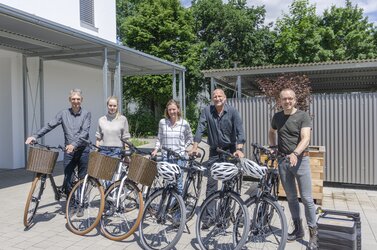
Employees of the European Campus Rottal-Inn (ECRI) can now make business trips quickly and, above all, CO2-free. Six company bicycles have recently been bought for the campus staff. This initiative was supported by the sustainability officer of the Deggendorf Institute of Technology (DIT), Prof. Dr. Michael Laar.
It is a trial that has been running at DIT Sustainability Campus in Pfarrkirchen since the beginning of June. Most of the business trips made from the campus are short journeys – mostly to the city centre for appointments or transport. These can be easily done by bike save CO2 compared to travelling by car. With the purchase of the company bikes, ECRI is trying to live up to its responsibility to be an environmentally friendly university. There is a separate shelter for the bikes and there is even a regular bicycle workshop for university staff. This is the first time such an offer has been made at a DIT location. If the concept proves to be a success consideration will be given to expand the offer to other university locations.
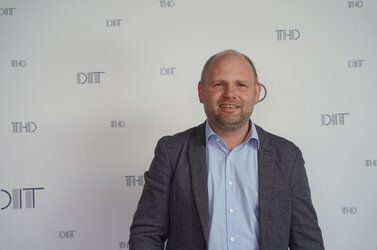
For the development and implementation of the new Bachelor’s degree programme “Building Products and Processes” (BPP) at the European Campus Rottal-Inn (ECRI), further expertise has been gained. Dr Alexander Siebel, an expert in building physics and construction, was appointed professor at the end of May. He will strengthen the team in Pfarrkirchen with immediate effect and will also play a key role in shaping the building physics laboratory at the campus.
“I chose the position in Pfarrkirchen because the Building Products and Processes degree programme is unique. Here, the interaction between teaching, practice and research is institutionalised and professionalised,” says Prof Siebel and is please about his move to Rottal. His focus is on the optimisation of building materials and constructions with regard to their thermal and acoustic properties. Even before his appointment to Lower Bavaria, the renowned building physicist held a professorship for building physics at the Aachen University of Applied Sciences. From this position and his many years of practical experience, he has outstanding specialist knowledge. He would like to share this expertise with as many future BPP students on campus as possible.
In the next few years, the Building Physics Lab at the Pfarrkirchen site will also be established under his leadership. “This task represents a very special challenge for me. My team and I want to help ensure that the new degree programme is characterised by a pronounced theory-practice relationship in teaching and research,” says the 43-year-old. Equally important to Siebel is the close cooperation with practical partners in the local construction industry. He would like to work intensively with them in the coming years. “It is very important to me to let the requirements from practice flow into the theory again and again and thus adapt the learning concepts to real needs. True to my motto: There is always something left to discover,” Siebel explains. Fortunately, because innovative building materials will also play a huge role in the goal of minimising the CO2 footprint of our society. And the new BPP degree programme addresses precisely this issue. “We want to make a difference,” says the professor, optimistic about his new task at ECRI and looking ahead with confidence.
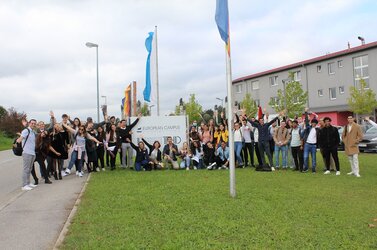
Those who would like to start studying in October can still apply for a study place at the European Campus Rottal-Inn (ECRI) at the Deggendorf Institute of Technology (DIT) until 15 July. A new Bachelor’s degree programme, Building Products and Processes, will also start in the coming winter semester.
The hybrid degree programme combines knowledge and expertise from construction management and engineering and is the first degree programme in Germany to focus on sustainable building products for the buildings of tomorrow. With English and German as course languages, students are well equipped for both national and international careers. The special feature of the degree programme is the links to the regional economy with companies in the construction industry, where students can already complete an internship or write their final thesis during their studies. In this way, they are ideally prepared for their career entry and already bring practical experience with them.
In addition to the new degree programme, ECRI offers eight other degree programmes. Among them is the internationally awarded Bachelor’s programme International Tourism Management / Health & Medical Tourism. Further study programmes are Digital Health, Healthy and Sustainable Buildings and Energy Systems Engineering.
With English as the campus language, ECRI is particularly attractive for internationally oriented students and brings together people from around 90 nations under one roof. More detailed information on the campus and the courses offered can be found on the website at https://th-deg.de/ecri-en.
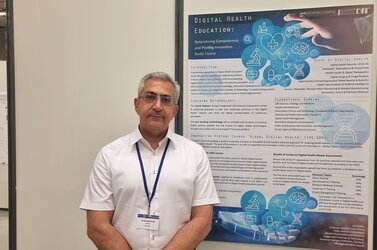
The European Campus Rottal-Inn (ECRI), a faculty of Deggendorf Institute of Technology (DIT), participated in the Medical Informatics Europe (MIE) conference in Nice, France from 27 to 31 May. There Prof. Dr. Georgi Chaltikyan, head of the master’s programme Digital Health at ECRI, presented the university’s vast and successful experience in fostering global Digital Health education and chaired three scientific sessions.
The MIE conference is one of three conferences related to Digital Health the ECRI participated this spring-summer. At DMEA – Connecting Digital Health in Berlin the university was visible with a dedicated stand from 25 to 28 April. There ECRI presented its educational and R&D programmes, among them the main study programme Master of Digital Health (MDH), and the annual signature event series DigiHealthDay. At the MIE conference from 27 to 31 May in Nice, France, the university not only presented its vast and successful experience in the field of Digital Health, but Prof. Dr. Georgi Chaltikyan also chaired three scientific sessions, underlining his expertise. DIT-ECRI has been an Academic Institutional Member of the European Federation for Medical Informatics, the host of MIE, since 2019, and has partnered with that leading European academic society in many aspects, in particular, within the frameworks of the DigiHealthDay series.
After participating in DMEA and MIE Professor Chaltikyan explains: “Thanks to the vast national and global networking and connections of its staff, the DIT-ECRI collaborates extensively with a number of key players in Digital Health, both in Germany and internationally, which has a mutually beneficial, “win-win” effect: on the one hand, students and staff at DIT have excellent opportunity to engage with the global Digital Health community, with multiple educational and research possibilities. On the other hand, DIT-ECRI contributes significantly to the advances in Digital Transformation of Healthcare worldwide, and brings its considerable expertise and experience to the forefront of innovation and development in this critical domain.”
The collaboration with key players in Digital Health will find its high point in the participation of the DIT-ECRI at the HIMSS22 Europe Health Conference in Helsinki from 14 to 16 June. The Healthcare Information and Management Systems Society (HIMSS) is the leading global non-profit dedicated to advancing health care through its digital transformation, bringing together more than 120,000 experts, business developers, scholars, students, and Digital Health enthusiasts from all over the world. The 2022 HIMSS European Health Conference & Exhibition will be this year’s epicenter to accomplishing the goal of Digital Health Transformation. Therefore, the DIT-ECRI’s significant presence at the conference in Helsinki with a dedicated stand, more than ten teaching staff and students in attendance, and Professor Chaltikyan as the moderator of the Workforce Empowerment track of the conference will add to the university’s journey towards becoming a recognised centre of Digital Health education and research – nationally, Europe-wide, and globally.
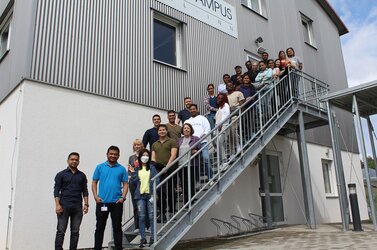
As part of the Master’s programme Global Public Health at the European Campus Rottal-Inn (ECRI), the first cross-border Summer School took place in Pfarrkirchen in May. This brought together students from all over the world and from different universities for a fortnight at ECRI and culminated on 25 May.
The Summer School is an integral part of the new joint Master Global Public Health under the direction of Prof. Dr. Thomas Spittler, whose lectures only take place online. At the Summer School kick-off on 9 May at the Pfarrkirchen campus, the students met for the first time outside the virtual world. The joint Bavarian lunch provided an opportunity to get to know not only fellow students but also the local culture. The subsequent guided tour of Pfarrkirchen gave the students a first impression of the region. In addition to the cultural programme, excursions and professional topics were not neglected during the Summer School. During a tour of the DigiHealth laboratory on campus, the students got to know the equipment and tried it out themselves in experiments. At FotoFinder Systems GmbH in Bad Birnbach, they gained insights into the field of telemedicine and concrete areas of application. The Summer School was rounded off by a joint excursion to Deggendorf to the DIT campus, which ECRI is part of as faculty.
Most of the participants of the Summer School were in Germany for the first time and gained professional, personal and cultural experiences during the past two weeks that helped them broaden their horizons. This international approach is an essential part of the Master’s programme in Global Public Health.
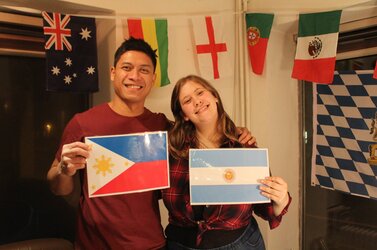
After a long break, the International Office at the European Campus Rottal-Inn (ECRI) is organising a KULTURcafé in person again, on Tuesday, 24 May at 5.30 pm. This time, European neighbouring countries will introduce themselves. Interested citizens are cordially invited to the event.
In a relaxed atmosphere, students from ECRI will present their home countries and report on exciting or even curious traditions and customs. Participants will get to know the European neighbours Albania, Portugal and France at this KULTURcafé. In addition to interesting insights into the respective cultures, the lectures provide a wonderful basis for intercultural dialogue. The event promises an entertaining evening with interesting conversations and new insights. Knowledge of English is an advantage. Snacks from the countries presented and drinks will be provided.
Everyone with an interest in other cultures, customs and traditions is cordially invited to the KULTURcafé. This will take place in the premises of the Glausbau Verein e.V. in Ringstraße 9 in Pfarrkirchen. The participation fee is 3€. Due to the limited number of places, please register with Daniela Schwertlinger (daniela.schwertlinger@th-deg.de or under +49 991 3615 8843).
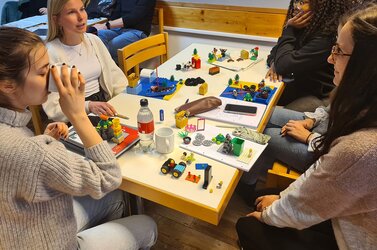
The tourism industry has suffered greatly in recent years from the restrictions imposed by the pandemic. Now creative solutions are needed to strengthen the industry and breathe new life into it. At the European Campus Rottal-Inn (ECRI), students are therefore working on innovations in health and wellness tourism together with the Lucerne University of Applied Sciences and Arts (HSLU). The kick-off was a Design Thinking Challenge with students from both universities. The resulting tourism innovations were presented at a final event on 12 May at the Pfarrkirchen campus.
For the two-and-a-half-day kick-off of the cooperation, ECRI students from Health & Medical Tourism met students from Business Administration with a focus on Tourism from the Lucerne University of Applied Sciences and Arts in Oberstorf at the beginning of April. The aim was to develop innovations in health and wellness tourism in small teams in a design thinking challenge. For this purpose, the students were mixed into eleven groups, so that students from Pfarrkirchen worked together with students from Lucerne.
Under the direction of Prof. Dr. Georg Christian Steckenbauer and Prof. Dr. Marcus Herntrei on the ECRI side and Prof. Roland Lymann and Lisa Fickel of the HSLU, the students first gained insight into market and trend analyses. These formed the basis for the work in the groups. During the Design Thinking Challenge, the teams were to develop innovative ideas from which the tourism industry can benefit. Creativity and knowledge were in demand. Already during the kick-off, ideas emerged from areas such as improving the quality of sleep, nutrition and well-being, emotional health as well as gamification for fitness.
In joint lectures, the ideas and innovations were expanded by students from both universities. In the end, prototypes were to be developed from the creative proposals. At the final presentation, the groups presented these together with their concepts and presented the work of the past weeks to the professors from Pfarrkirchen and Lucerne. In the final step, the prototypes including concepts will be submitted by the students to the "Shark Tank of Wellness Student Competition". This is a global competition for students. Of the international submissions, three teams will be shortlisted and invited to the "Global Wellness Summit". This will take place in Tel Aviv in November. There, the finalists will be allowed to present their innovations to the investors, the so-called Wellness Sharks.
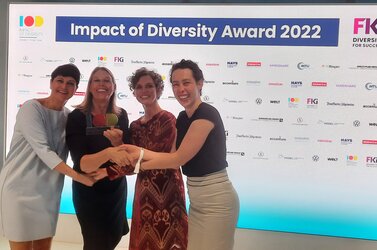
On Thursday, 5 May, the Impact of Diversity Award was presented at the DRIVE. Volkswagen Group Forum in Berlin. The Deggendorf Institute of Technology (DIT) made it into the top 3 in the University Award category with its project "In 80 Nations around the World", beating off numerous competitors.
With the submitted project, the university portrays students and employees from a total of 80 nations who study and work at the international European Campus Rottal-Inn (ECRI) in Pfarrkirchen. Special emphasis is placed on celebrating similarities and learning to love differences. This not only demonstrates the diversity of ECRI, but also actively shapes interculturality and internationality in the region. The university is supported in this by the Rottal-Inn District Office.
In addition to DIT, the Anti-Discrimination Office of the University of Marburg made it to the finals in the University Award category. The winner was the State Conference of Women's and Equal Opportunities Representatives at Bavarian Universities (LaKoF) with its Bavaria-wide project "Become a female Professor".
A total of over 200 submissions were received for the Impact of Diversity Award. In the first step, the public voting, over 50,000 people took part. Afterwards, 48 jurors from science, business, associations and initiatives selected the winners. The Impact of Diversity Award is presented to 14 award winners who have made outstanding contributions to the topics of diversity and inclusion.
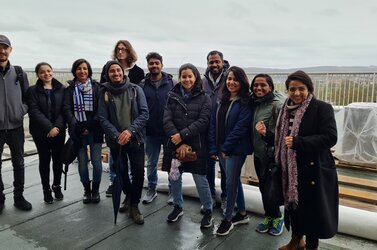
After a long time of remote teaching due to corona the European Campus Rottal-Inn’s (ECRI) Healthy and Sustainable Buildings Master of Engineerig Programme resumed excursions. The first one for this semester led the students on the rooftop of the student residence at Alois-Gässl-Straße in Pfarrkirchen. The participants got a first hand impression of the building and had the chance to see the progress of the constructions.
During the excursion to the student residence the participants learned more about the construction materials used, which play an important role when constructing a sustainable building. They also gained some insights concerning the firefighting systems installed in the residence and they learned about the differential pressure method. This test simulates the wind load on a building on a stormy autumn day at wind strength 5 to see if the building leaks air. The results of this test show how well constructed the building shell is. The students not only saw how the things they learn in theory at ECRI are applied at a real construction site, but they were also rewarded by a beautiful view of the city of Pfarrkirchen as they had the chance to go up the rooftop of the new student residence.
For students of Healthy and Sustainable Buildings excursions are an integral part as these offer them the possibility to see real applications beside the coursework taught inside classrooms. The programme will further organise more excursions in different parts of Germany including museums, construction companies and construction sites.
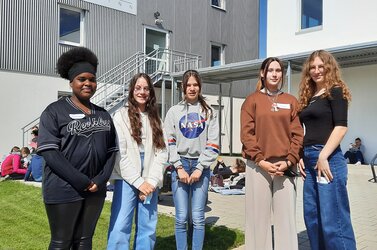
"Masculine" or "feminine" professions or just a profession you enjoy? On Girls' Day on 28 April at the European Campus Rottal-Inn (ECRI), around 50 schoolgirls got a taste of typically "male" occupational fields. The day was held under the motto of sustainability, a focus of ECRI.
For Girls' Day, schoolgirls from the Pfarrkirchen high school and the Pfarrkirchen secondary school came to the campus to spend a morning learning about various aspects that are usually reserved for boys. The young women were welcomed by Andrea Ebertseder from the university's MINT team and the ECRI Women's Representative, Prof. Dr. Michelle Cummings-Koether. Afterwards, the schoolgirls met five English-speaking female students who had themselves decided to study in the STEM field. They then accompanied the students throughout the day.
In small groups, the participants explored the laboratories on campus through hands-on experiments. In two of the labs, a knowledge of English was necessary, because the lessons at ECRI are actually held in English. In the sustainability lab, the focus was on supply chains and the origin of individual components of a smartphone. In the DigiHealth & Smart Tourism Lab, they programmed a Cosmo robot. The Chemistry Lab was about energy production and the Electronics Lab was all about the heat pump. The laboratory for healthy and sustainable building simulated the course of the sun in the sky, which can be used to determine the heat requirements of a house.
The schoolgirls had no fear of contact on Girls' Day. On the contrary, they were happy to have the opportunity to meet female laboratory engineers, architects or students at ECRI. This shows them that they as women can work in such professions just as well and that others have already done it before them, says Graciette. For the high school student, divisions into "male" and "female" professions are outdated anyway, because all that matters is that it's fun. It doesn't matter whether it's technology, IT, mathematics or something else entirely.
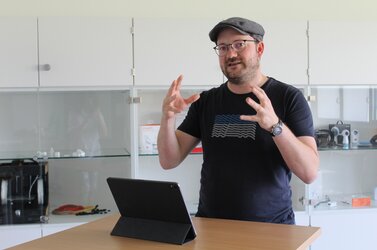
After the excellent start of the Adult University at the European Campus Rottal-Inn (ECRI) last year, lectures for inquisitive adults will again be offered at the campus this year. The first lecture of the series will take place on Thursday, 5 May from 5 pm. The topic will then be digitalisation in health care.
Digitalisation is currently a megatrend that no one can ignore. Whether professionally nor privately, it follows us everywhere and all the time. No wonder that it is also making its way into healthcare. At first, this may seem suspicious to many, but digitalisation in healthcare offers enormous opportunities, especially in rural areas. For example, if the emergency doctor has to travel from one end of the county to the other in the event of a cardiac arrhythmia, vital minutes are lost for the patient. In this case, a drone can provide relief. Thanks to digitalisation, it can then bring a defibrillator, for example, and help can be provided quicker. The megatrend is also being used for chronic wounds. Mixed reality glasses are already being used for wound monitoring.
Prof. Dr. Thomas Spittler will share these examples and much more with the participants at the adult university. The expert from the field of health informatics will present the current state of developments, go into examples and also know how concretely digital healthcare can be improved in the district of Rottal-Inn with the help of the "med4PAN" project.
The lecture of the adult university will take place on Thursday, 5 May from 5 pm in the ECRI lecture room EC.B 007. Pre-registration is necessary and can be done by contacting Andrea Ebertseder at +49 991 3615 8863 or via email to andrea.ebertseder@th-deg.de. Wearing a mask is still compulsory on campus.

This week the DigiHealthDay-2022 series starts again with its first workshop. As in the previous years, a series of pre-conference DigiHealth workshops by leading national and international experts, will be hosted in the spring-summer of 2022. These workshops pave the way for the main event, the DigiHealthDay-2022 on 11 November, 2022. The international symposium is hosted by the European Campus Rottal-Inn (ECRI) of the Deggendorf Institute of Technology (DIT). The event is held in cooperation with local and international partners. Registration to the workshops and the main event in November is now open.
The DigiHealthDay-2022 is a one-day-long action-packed symposium. It includes keynote talks by leading German and international experts, audience-centered panel discussions, oral and poster scientific presentations, student thesis and project presentations, and networking possibilities. It explores modern digital health and its role in tackling global health problems from a uniquely international perspective. Highlight themes this year include: AI research, ethics and regulation; pragmatic research in digital health; as well as – traditionally – digital health education. At the DigiHealthDay-2022, the organisers will also share first-hand the result of the important ongoing research on Digital Health Education conducted by DIT-ECRI, and the highlights of the university’s new online learning course "Global Digital Health".
This year the symposium will be preceded by a special 5-day workshop on "Explainable and Ethical AI in Healthcare" delivered jointly by leading experts from DIT-ECRI, University of Agder (Norway), University of Aalborg (Denmark), and Luleå Technical University (Sweden).
Participation in the DigiHealthDay-2022 main event and pre-conference workshops is free of charge. The main event on November 11 is planned as a hybrid event (onsite and live-streamed). Participants will be able to join Prof, Dr. Dipak Kalra, International Invited Chair, Prof. Dr. Horst Kunhardt, Scientific Committee Chair and Prof. Dr. Georgi Chaltikyan, Organising Committee Chair and many of the speakers physically, on the ECRI campus, or tune in virtually from any part of the world. Registration to receive subsequent news and information is now open under the following link: https://th-deg.de/digihealthday
The previous edition of this signature event – DigiHealthDay-2021 – was attended by nearly 560 participants from 74 countries, and received testimonials; “It is fruitful with updated knowledge” “great discussion. great experts gets right to the point”, “Very educative”, among many. The event series offers considerable advantages to all who are curious about the latest advances in digital health, looking for inspiration for their business, or simply keen on meeting like-minded professionals from around the world.
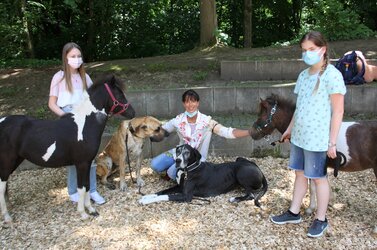
The European Campus Rottal-Inn (ECRI) offers a children's university on Friday, 8 April at 5 pm. This time, everything revolves around horses and how they can contribute to the learning process in the case of reading and spelling disorders. All interested children between the ages of eight and 13 can take part.
At school, children learn everything they need for their professional life. But when learning becomes stressful, for example because of a reading or spelling disorder, the fun of school can quickly disappear. The Project for Joyful and Relaxed Riding to Take Off in Learning, or P.F.E.R.D.L (German abbreviations) for short, offers support in such a case. In the Children's University, participants learn about the advantages of teaching German on horseback and how horse-supported pedagogy works.
But why with horses of all things? Horses promote fine motor skills, increase concentration and stamina, strengthen self-confidence, relieve tension and build social skills. Training with horses creates a framework that makes it possible to train the brain with all the senses and with pleasure in such a way that learning is easier, knowledge is permanently stored and can be retrieved even under stress.
In the children's university "Learning Easier with P.F.E.R.D.L", the children learn everything about horse-supported pedagogy in a theoretical part. Here Annika Münstermann from the University of Koblenz Landau provides insights and explains the background to the young students. Ellen Meier, guidance counsellor at the Realschule Pfarrkirchen rounds off the Children's University with a practical part afterwards.
The lecture will take place on Friday, 8 April at 5 pm at the Realschule Pfarrkirchen. In good weather in the green classroom and in bad weather in the auditorium. The kinder uni is an event hosted in German. During the event, masks are compulsory for children. Registration is through Andrea Ebertseder of ECRI via phone at + 49 991-3615 8863 or via e-mail at andrea.ebertseder@th-deg.de. Interested parents can find more information about the project and how equine-assisted pedagogy contributes to the success of reading or spelling disorders at https://www.rs-pan.de/index.php/schulisches-leben/tiergestuetzte-paedagogik/p-f-e-r-d-l.
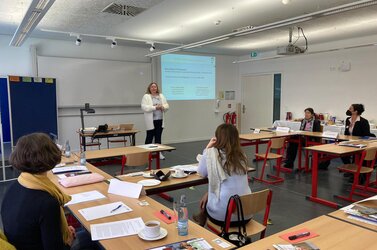
Bavaria was the second German state to give women access to university. Since 1903, when the Bavarian Prince Regent Luitpold allowed women to study, the number of female students has steadily increased. The number of male professors, on the other hand, still predominates at the universities of applied sciences (HAW). To ensure that more women dare to become professors in the future, the State Conference of Women's and Equal Opportunities Representatives at Bavarian Universities (LaKoF) organised the seminar "HAW Professor as a Career Goal" at the Deggendorf Institute of Technology (DIT) from 11 to 12 March.
The seminar was brought to the university in Deggendorf and supervised by Prof. Dr. Michelle Cummings-Koether, DIT’s deputy women's representative. The participants of the seminar fulfil all the requirements for an appointment as a professor. During the two-day seminar they received intensive coaching, which prepared the participants for an appointment procedure and thus for the professorship. The central core element was the trial lectures in front of an "appointment committee". The committee evaluated the presentations and gave reflective feedback.
The seminar "Berufsziel HAW-Professorin" received a lot of support and commitment from DIT. The "Appeals Committee" was made up of DIT professors, staff and students. In addition to the host Prof. Dr. Michelle Cummings-Koether, Prof. Dr. Kristina Waniek, Prof. Dr. Maria Kufner, Prof. Dr.-Ing. Andreas Grzemba and Prof. Dr. Sascha Kreiskott were members of the "Appeals Committee" and advised the participants. In addition, a representative of the Human Resources Department and four students were members of the committee.
Since the seminar was very well received by the participants and the university and its hospitality left a positive impression, another event is planned for July. At an information day at DIT together with the LaKoF, the project "Become a Professor" will be taken up again and the university's teaching campuses will be presented.
The seminar "Berufsziel HAW Professorin" was implemented with the help of the LaKoF's "Werde Professorin" project, which promotes women and prepares them as best as possible for a professorship. The aim of the project is to increase the number of female professors in Bavaria. Interested women can find out more about the project and the opportunities available to them at https://werdeprofessorin.de.
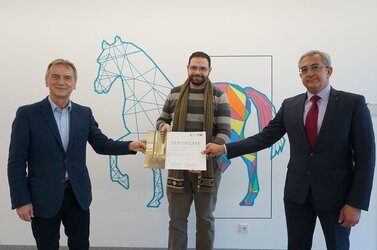
The DigiHealthDay (DHD) at the European Campus Rottal-Inn (ECRI) is not only a series of events for Digital Health experts and students, it also provides a platform for aspiring researchers in the field. This is why the DHD also held a “Students Session” with an Student R&D Project Contest during the main event last November. On 9 March, the two winners of the contest received their certificates and prices, after the ceremony had previously been postponed due to Covid-19.
The two winners where invited to join Prof. Dr. Georgi Chaltikyan, Organising Committee Chair of DHD, and Prof. Dr. Horst Kunhardt, Scientific Committee Chair of DHD for a small ceremony at the ECRI. The first prize of € 200 was awarded to Hamza Maatouk for his presentation titled: “Digital Health Aging Population Telemedicine Education Mobile Technology Telemedicine for old people”. The second prize of € 150 went to Elegbede Adeniyi who held a presentation on “Usage and Effectiveness of Digital Health Technology (DHT) as a Tool for the Management of Mental Health in South-West Nigeria during COVID-19 Pandemic”.
For the Student R&D Project Contest students who where enrolled in Bachelor's and Master's programmes in the domain of Digital Health, and in any stage of pursuing their thesis research were invited to submit their abstracts. Six of the projects were then selected for oral presentation at the "Student Session" during the DigiHealthDay 2021 symposium on 12 November 2021. Each presenter got 15 minutes, including Q&A.
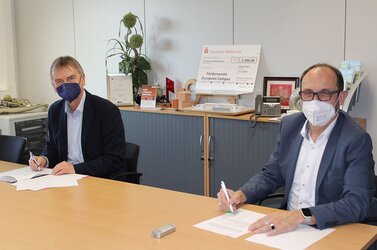
On 14 March, the European Campus Rottal-Inn (ECRI) and the AOK Bayern, Direktion Passau-Rottal-Inn, once again sealed their cooperation by signing a cooperation agreement at the campus. Both parties are thus extending the contract that has already existed since 2015.
With its study programmes on health informatics and health tourism, ECRI focuses on prevention and improving health. The cooperation with the AOK, which pursues the same goals, is therefore obvious. The two had already worked together in the past and organised a "Health Day" on campus, for example. In the future, ECRI and AOK will jointly focus on offering further low-threshold health promotion and prevention services to inspire students and thus contribute to a healthy and long life.
ECRI already offers company sports or university sports or information events on the topic of health. In the future, the AOK will provide support in this area and together they will develop offers on the topics of nutrition, exercise and stress management. The aim is to promote the health of students and staff on campus. Because the earlier health promotion begins, the more present the topic will be later in professional life. In addition to joint offers, consultation hours on health insurance issues are also planned for students. As part of the cooperation, the AOK will also have space available at ECRI in the future, and not only in the "AOK lecture hall" named after it.
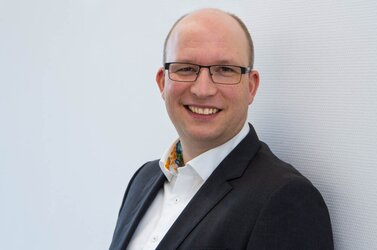
The winter semester at the European Campus Rottal-Inn (ECRI) of the Deggendorf Institute of Technology (DIT) will start in October, and with it a new degree programme. In "Building Products and Processes", the university addresses the two megatrends of digitalisation and climate change in the construction sector. Interested students will find out what advantages the degree programme offers and what the content is like at the virtual kick-off event "Building Products and Processes" on 28 March from 4 pm.
The interactive event actively involves the participants and directly addresses their questions and ideas about the new degree programme. Prof. Dr.-Ing. Markus Hainthaler as head of the degree programme and Prof. Josef Steretzeder will tell the students everything they need to know about the degree programme. Veronika Lindner and Robert Hummel, two industry experts, will also be there to provide information about the importance of "Building Products and Processes" for the industry and the future prospects for graduates.
In the new degree programme, students learn to develop, market and process resource-saving, recyclable building products in an engineering manner, which in the best case are reusable, and to manage them in medium and large building construction projects with the appropriate programmes and models. There is already a close connection to local companies during the study programme, which makes "Building Products and Processes" so exciting for those interested. Students can already complete an internship in companies or write a thesis during their studies. This makes it easier to start a career after graduation, because the graduates already have practical experience. With English and German as the language of instruction, the students of "Building Products and Processes" are not only equipped for the German labour market but can work as managers all over the world.
The kick-off event on 28 March will be broadcast on Zoom. Participation is free of charge and without prior registration. The event will start at 4 p.m. via https://th-deg-de.zoom.us/j/86299097440. Further information can be found in the event calendar on the DIT website.
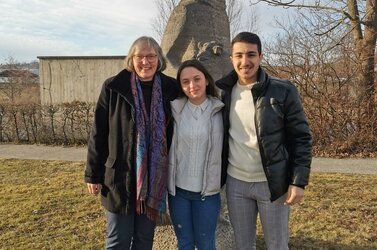
The summer semester starts at the European Campus Rottal-Inn (ECRI) and the students return to Pfarrkirchen. In order to bring the international young people closer to the culture and make life in Lower Bavaria easier, ECRI is now looking for cultural ambassadors as part of the Host Family Programme.
The programme matches students with locals who then meet at regular intervals. The aim is to give international students an opportunity to make contacts off campus and get to know Lower Bavarian culture. Especially at ECRI, Bavaria's most international campus, the Host Family Programme is indispensable for the exchange with people from other cultures. The process is quite simple: you meet the students casually and as often as you like. The participants decide for themselves whether the first meeting takes place in person or virtually because of Corona. As far as further meetings are concerned, there are no limits: whether it's an excursion to the beer garden, a walk around the Rottauen Reservoir or cooking together, there are many opportunities to share the area and culture with the students.
The cultural ambassadors do not have to be afraid of possible language barriers. Christiane Benesch is one of the ambassadors and meets regularly with two students as part of the Host Family Programme. She has high praise for them: "Hashem and Ersilja already speak excellent German and then I get scolded every now and then that I shouldn't speak so much English with them". She is not only behind the programme because of the exchange. She also finds the Host Family Programme indispensable from the perspective of the students' parents. "If I had children, I would of course be very grateful if my children were in foreign countries and someone was there to look after them a little and offer something like that," she says.
If you would like to gain a little insight into the programme and the process, you can find a short interview with Christiane Benesch in the university's podcast. There she talks about her experiences so far. You can find the podcast at: https://www.th-deg.de/campustalk
Further information and the application form for the Host Family Programme can be found at www.th-deg.de/hostfamily. If you have any questions, Andrea Ebertseder from the Centre for International Affairs at the DIT is available via e-mail at andrea.ebertseder@th-deg.de.
The Host Family Programme is a non-profit organisation of the Deggendorf Institute of Technology, which is dedicated to the integration of foreign students. In Deggendorf, the network includes people from a wide range of nations, religions and cultures and currently consists of more than 80 host families from Deggendorf and the surrounding area. At ECRI in Pfarrkirchen, the programme started for the first time in the winter semester 2019/20 and since then over 50 students have been placed with host families in the region.
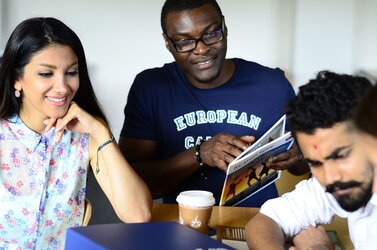
As the Corona crisis has shown, the tourism industry and health tourism are suffering greatly from the effects of the pandemic. Together with partners from four European countries, the European Campus Rottal-Inn (ECRI) wants to counteract this with the HealthTour project in order to make the industry more international and promising for the future. The virtual kick-off event on 23 February was attended by the project partners as well as the German Academic Exchange Service (DAAD), which supports the project with funding.
Under the direction of Prof. Dr. Marcus Herntrei, the HealthTour project is dedicated to the internationalisation of research and teaching in the field of health tourism. Together with the project partners of the University of Economics (VSE) from the Czech Republic, the Budapest Metropolitan University (METU) from Hungary, the Kherson State University (KSU) from the Ukraine and the European Spas Association (ESPA) based in Brussels, the international network in the field is to be expanded and stabilised. Important components are meetings and exchanges on an international level, for example in the form of summer schools or through the mobility of teaching staff and students between the partners.
During the four-year period from January 2022 to the end of December 2025, the project will focus on, among other things, the assessment of quality requirements in the countries of the project participants, joint field research projects and joint international teaching. The focus is particularly on joint research, joint teaching and summer schools for students.
The DAAD supports the HealthTour project through the HAW.International programme. The aim of this programme is to strategically anchor and sustainably implement the internationalisation process at universities of applied sciences at all levels of higher education and across all groups of staff, from students to teachers and researchers to administrative staff.

For students who are curious about other cultures and want to speak English, the European Campus Rottal-Inn (ECRI) offers the online conversation platform oConvo. This allows participants to immerse themselves in the English language once a week without having to pack a suitcase. oConvo starts on 21 March and takes place online every Monday from 6.30 pm to 8 pm.
oConvo is open to all students in Grade 7 or above. They should bring basic conversational skills in English and an interest in other cultures. oConvo is about teaching English in an entertaining way and improving language skills. The interests of the participants are taken into account. From making music together, exchanging recipes, talking about local customs to clarifying grammatical questions or idioms. Always in English, of course.
The fun of the language is not neglected, but the necessary seriousness and the demand to learn something at the virtual meetings are no less important. The overall coordination of the platform lies with Prof. Dr. Georg Christian Steckenbauer, the Dean of ECRI. Scientific and methodological-didactic support is provided by Prof. Dr. Michelle Cummings-Koether and Claudia Nikitsin. Students who actively participate in oConvo will be rewarded with a participation certificate at the end of the semester.
Those who meet the criteria and would like to participate in the Online Conversation Platform oConvo can register by emailing elisabeth.mueller@th-deg.de and start their English language journey into foreign cultures.
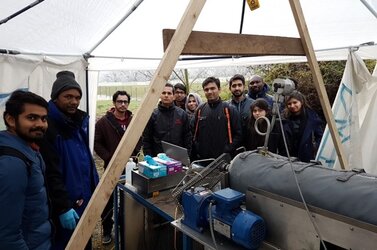
Protecting the climate together, finding new solutions to technical questions about hydropower, wind and solar energy in a team and getting paid well for it? The #StudyGreenEnergy network is organising a digital study information day on 27 January at 4 pm to raise awareness of study programmes in the field of renewable energies. The European Campus Rottal-Inn (ECRI) of the Deggendorf Institute of Technology (DIT) will also be represented with two degree programmes.
With the energy transition, our society is facing one of the greatest upheavals since the beginning of industrialisation. The challenges, but also the opportunities for shaping this sector are enormous. For Prof. Dr. Matthias Huber, one thing is certain: “A degree in renewable energies provides the engineering skills to actively shape the national and global energy transition.” As professor of Smart Infrastructure and Energy Economics at ECRI, he knows about the current challenges.
With the Bachelor Energy Systems Engineering and the Master Healthy and Sustainable Buildings, ECRI offers two future-relevant degree programmes. In addition to the typical engineering tools, both also teach holistic competences for sustainable change. And they are English-language and intercultural, with students from more than 80 nations worldwide. Prof. Dr. Tobias Bader teaches Sustainable Energy Systems and Technology Management at ECRI and knows: “An understanding of innovative key technologies together with competences for sustainable development, such as systems thinking, strategic thinking or integrated problem solving are key competences for the global transformation of the energy system”. These are precisely the competences that ECRI teaches in its degree programmes tailored to sustainability, thus preparing students for an attractive job market and solving the pressing challenges of time.
At the international study information day of the “StudyGreenEnergy” network, Volker Quaschning, among others, will give a lecture on climate change and today’s tasks for engineers. Alumni will give insights into their experiences at the universities. In break-out sessions, participants can also get in touch directly with the various universities, ask questions or take part in virtual lab tours. The free virtual event will take place on 27 January at 4 pm. For more information and registration, please visit:
The #StudyGreenEnergy network is made up of members of the university group of the German Solar Energy Society (DGS). In addition to ECRI, the following universities are involved: Düsseldorf University of Applied Sciences, Ingolstadt University of Technology, Kassel University, Erfurt University of Applied Sciences, Stralsund University of Applied Sciences, OTH Amberg-Weiden, Nordhausen University of Applied Sciences, Südwestfalen University of Applied Sciences, TH Aschaffenburg, Hamm-Lippstadt University of Applied Sciences, Environmental Campus Birkenfeld, Osnabrück University of Applied Sciences, HAW Hamburg, Münster University of Applied Sciences, Ruhr West University of Applied Sciences, Bern University of Applied Sciences, Biberach University of Applied Sciences and many others.
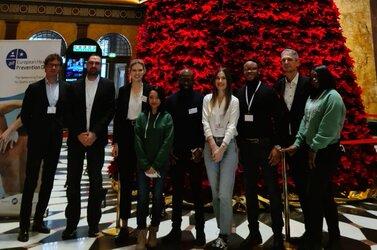
In times of ongoing pandemics, health tourism is having a hard time. The question of whether it still has a future was hotly debated at the European Health Prevention Day from 2 to 3 December in Wiesbaden. Three scientists from the European Campus Rottal-Inn (ECRI) were invited as speakers, which underlines ECRI’s expertise in the field.
Under strict conditions, about 50 participants had gathered at the Kurhaus Wiesbaden to devote themselves for two days entirely to the question “Do natural place-based remedies have a future in the age of the pandemic?”. Prof. Dr. Marcus Herntrei, Head of Tourism Studies at ECRI, hosted a thematic block on products in spa tourism and contributed a paper entitled “Experience Health. Planning holidays with healthy content”. Sebastian Markov and Dean Prof. Dr. Georg Christian Steckenbauer were invited as further experts from the campus. They spoke on the topic “The potential of the forest for the development of target group-specific offers. Findings of a representative survey from Germany and Austria”.
This year, the European Health Prevention Day was dominated by Lithuania, which had its own thematic block as a partner country and hosted a “Lithuanian evening” for all participants. The European Health Prevention Day is an international meeting of experts with a focus on relaxation and wellness. The special feature is the focus on local remedies such as thermal water, healing mud, seawater or climate. Topics of the event are marketing, new products and strategy.

The European Campus Rottal-Inn (ECRI) of the Deggendorf Institute of Technology (DIT) rings in the new year with a new event format. The series called “ECRI Lunch Talk”, kicks off with the topic of destination branding. The free virtual event will take place on Friday, 21 January at noon and is open to all interested parties. The event is held in German.
The ECRI Lunch Talk is about a topic considered by two experts and invited the audience to actively participate in the discussion. The special feature: The format takes place virtually during the lunch break from noon to 1 pm. The kick-off event is all about destination branding in tourism. Because every place, or destination in the technical jargon, tells a story, brings its own culture and way of life and is defined by its environment and the people there. Destination branding is all about identifying the strongest and most competitive values of the destination in the eyes of its potential visitors. In particular, it is about capturing the “DNA of the destination” and conveying it consistently across all marketing channels and communications.
Claudia Hinnerkopf explains how this is done in practice at the ECRI Lunch Talk. She is Head of Marketing at Bayern Tourismus Marketing GmbH and knows Bavaria as a destination inside out. The second participant, Prof. Dr. Marcus Herntrei, will contribute scientific findings on citizen participation in destination branding. He is the head of the Bachelor International Tourism Management and Master International Tourism Development programmes at ECRI. The ECRI Lunch Talk will be hosted by Sarah Beham, correspondent at Bayerischer Rundfunk and experienced journalist on tourism in Eastern Bavaria.
Interested parties can register for the free event by sending an e-mail to miriam.bleck@th-deg.de or using the registration form. This can be found under the heading “Veranstaltungen” on the German ECRI website at: https://th-deg.de/ecri.
The ECRI Lunch Talk will take place twice a semester in the future and will focus on different ECRI topics. In each case, lecturers from the campus meet people from outside and look at a topic from different angles.
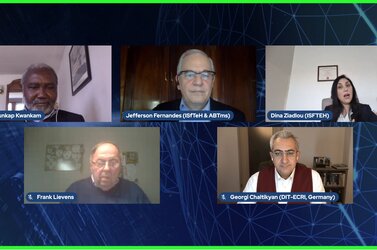
Prof. Dr. Georgi Chaltikyan, Programme Director Master of Digital Health at the European Campus Rottal-Inn (ECRI), was invited as a keynote speaker and panelist to two international Digital Health congresses organized by Brazil’s vibrant and dynamic Digital Health community. He spoke at the Global Summit on Telemedicine and Digital Health as well as the Brazilian Congress of Telemedicine and eHealth, both taking place in November 2021.
The first event was a pre-meeting webinar on Digital Health Education, a part of the event series titled Global Summit on Telemedicine and Digital Health. In his keynote, Prof. Chaltikyan spoke on the history and evolution of telemedicine and telehealth into eHealth and Health IT, and eventually into Digital Health (with important differences between the concepts and definitions), provided insights into the changing paradigm of Health IT and medical/health informatics education, discussed the novel approach to fostering interdisciplinary specialists capable of driving the Digital Transformation of Healthcare, and presented the experience with Master of Digital Health at DIT-ECRI. The Global Summit 2021 convened on November 9-12 in São Paulo, attracted 2 thousand virtual participants from around the world, provided 100 hours of content in 95 sessions during 4 days, presented by 200 speakers from 24 countries
At the Brazilian Congress of Telemedicine and eHealth, Prof. Chaltikyan was invited to a panel discussion titled “Professional Education Transforming Telemedicine and Digital Health”. The discussion featured also Prof. S. Yunkap Kwankam, the Executive Director of the International Society for Telemedicine and eHealth (ISfTeH), Mr. Frank Lievens, the Executive Secretary of ISfTeH, and Ms. Dina Ziadlou, Chair of ISfTeH Working Group on Digital Transformation and was moderated by Prof. Jefferson Fernandes, Head of Education Program and Board Member at the ISfTeH. The panelists presented their vision and opinions about streamlining Digital Health education internationally and globally, and engaged in a lively discussion addressing the challenges and opportunities of providing professional workforce for Digital Transformation.
In both the keynote and the panel, the ongoing work on the Consortium of Educational Institutions in Digital Health (CONEDIG), an initiative under the auspices of the ISfTeH of which DIT-ECRI is one of the founding members, was also presented and discussed.
Deggendorf Institute of Technology’s ECRI is an academic institutional member of the ISfTeH since 2018.
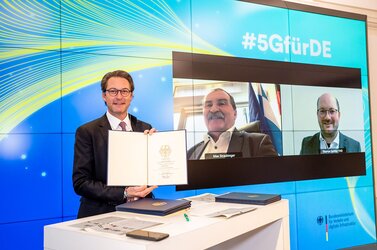
Together with project partners, the district of Rottal-Inn has committed itself to improving medical care in the district of Rottal-Inn in the "med4PAN" project. The European Campus Rottal-Inn (ECRI) of the Deggendorf Institute of Technology (DIT) is responsible for the overall management of the project. For this idea, Federal Minister of Transport Andreas Scheuer presented Max Straubinger, Member of the Bundestag, and the project team around project leader Prof. Dr. Thomas Spittler with a funding decision amounting to € 3.64 million on 18 November.
In his speech at the handover of the funding notification, Federal Minister of Transport Andreas Scheuer highlighted the project as a lighthouse project that can also be applied to many other districts and will sustainably improve medical care in rural areas. The Minister also emphasised that he would continue to personally support the project. For MP Max Straubinger, who was present at the handover as a member of parliament for the district, "med4PAN" is also a lighthouse project. He emphasised the importance for rural areas and how the project will improve the lives of citizens in the event of an emergency or treatment in hospital in the district of Rottal-Inn.
In Rottal-Inn, the district with the most scattered settlements in Germany, the distances between hospitals in an emergency are longer than average and every minute counts for the patient. In order to be able to counteract this problem in the future, the "med4PAN" project is investigating the use of state-of-the-art technologies in medical care in four concrete application cases.
The project starts before patients even arrive at the hospital. By linking the ambulance service and the Rottal-Inn clinics, the care of patients who are in an emergency situation in the ambulance is to be improved. For this purpose, live videos of the patient captured by a 360° camera in the ambulance are transmitted to the emergency room and the doctors can get an idea of the situation before the ambulance arrives. In addition, the project aims to improve teleconsultation communication, allowing specialists from different locations of the Rottal-Inn hospitals to exchange information virtually and thus contribute to telemedical decision support. This will reduce time, cost, burden and stress for all involved and improve patient care. The project aims to facilitate the localisation of objects and people in clinics. For medical staff, this would lead to a great relief, as the required device can be located, found immediately and the patient thus helped more quickly.
In addition to the actual cases in the ambulance and the clinic, the project will also establish a so-called innovation hub at ECRI. Within the framework of this, applications based on state-of-the-art technology will be scientifically developed, tested, evaluated and scaled for further use cases. This includes, for example, the delivery of a defibrillator by drone or the transmission of images of a high-resolution histopathological section to the specialist in real time.
The "med4PAN" project is led by Prof. Dr. Thomas Spittler and supported by Anna Schmaus-Klughammer, LLB (hons.), as coordinator of the project at DIT. Besides the district of Rottal-Inn, the Rottal-Inn Clinics, the Bavarian Red Cross, the Fraunhofer Institute and the companies medDV and becon GmbH are involved as project partners.
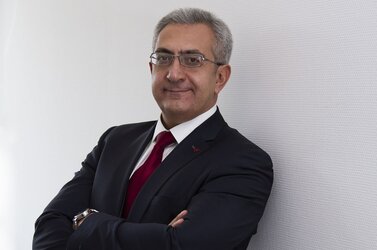
On Friday, 12 November, 2021, the second edition of the international Digital Health symposium DigiHealthDay (DHD), will be hosted by European Campus Rottal-Inn, Deggendorf Institute of Technology (DIT-ECRI).
The international symposium DHD-2021 tries to capture how digital technologies are transforming health and care around the world, featuring keynotes, parallel sessions, impulse talks, and a panel discussion including distinguished experts in the field of Digital Health. Leading international experts from Germany, United Kingdom, United States, India, Hungary, Poland, Sweden, Italy and other countries will provide knowledge and information on the future of healthcare during the day of the symposium. The main highlight event of this year is the panel discussion "The Future of Digital Health Data: Achieving the Opportunities, Addressing the Anxieties, Responding to Risks".
Scientific Session, EFMI Session, Student Session, and CONEDIG session are hosted parallel. In the Scientific Sessions, selected academic papers in Digital Health will be presented. The Students Session is the stage for recognising sprouting talents. At CONEDIG Session, The Consortium of Educational Institutions in Digital Health (CONEDIG) will converse on educational reforms, goals, and challenges in Digital Health.
The organiser of the event, Prof. Dr. Georgi Chaltikyan, is proud to host honorary Klaus Holetschek - Minister of State for Health and Care as well as honorary Bernd Sibler - Minister of State for Science and the Arts (Bavaria), who will open the event with their welcome addresses. Another milestone for the DHD is the partnership with one of the key Digital Health events in Germany, ‘Munich Digital Healthcare Summit'. For further information visit the DHD-2021 website: https://th-deg.de/digihealthday
The event is endorsed and sponsored by the Bavarian State Ministry of Health and Care (StMGP), Healthcare Information and Management Systems Society (HIMSS), International Society for Telemedicine & eHealth (ISfTeH), International Medical Informatics Association (IMIA), European Federation for Medical Informatics (EFMI), German Society of Digital Medicine (DGDM), German Telemedicine Society (DGTelemed), Bavarian Telemedicine Alliance (BTA), Armenian Association of Telemedicine (AATM), Town of Pfarrkirchen, Roche, Russian-Armenian University (RAU), People's Friendship University of Russia (RUDN), National Healthcare University of Ukraine (NHU), and DigitalHealthNews.eu (media partner).
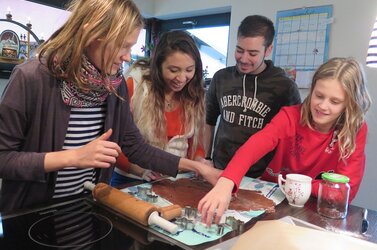
At the start of the winter semester, the Host Family Programme of the European Campus Rottal-Inn (ECRI) enters the next round. The programme brings locals and students together to promote cultural exchange. Students and host families arrange to meet as often as they like within the framework of the programme for joint excursions, coffee and cake, games evenings or similar. Interested students can register now.
The Host Family Programme enables international students to make contacts outside the campus and to get to know the Bavarian culture and way of life better. Andrea Ebertseder from the Centre for International Affairs at the Deggendorf Institute of Technology (DIT) establishes contact between students and host families. Previous experiences, such as that of Hashem Alshawabkeh, show that the programme is a complete success for both sides. He is an international student at ECRI and took part in the Host Family Programme last semester. The programme exceeded all his expectations and made the last few months as exciting and enjoyable as possible, he says. Through his host family, he not only learned about important cultural differences between Bavaria and his home country, but also visited some of the highlights of the region, such as the Whitsun race at the harness racing track or the jazz festival in Burghausen.
But not only the international students benefit from the exchange. The programme also offers many advantages to the host families. All the students speak English, but many can also speak German very well. This offers the perfect opportunity to speak English casually and thus deepen their vocabulary. In addition, they get to know the respective country of the students, its inhabitants and their culture. Last but not least, friendships are made and togetherness is enriched.
Further information and the application form for the Host Family Programme can be found at www.th-deg.de/hostfamily. If you have any questions, please contact Andrea Ebertseder (andrea.ebertseder@th-deg.de) from the Centre for International Affairs at DIT/ECRI by email.
The Host Family Programme is a non-profit organisation at DIT that is dedicated to the integration of foreign students. At ECRI in Pfarrkirchen, the programme started for the first time in the winter semester 2019/20 with six host families and ten students.
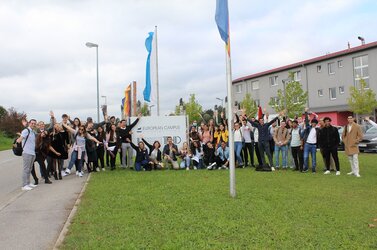
After three semesters of distance learning, the start of the winter semester 2021/22 on Monday, 4 October was a welcome occasion for the students of the European Campus Rottal-Inn (ECRI) to come back to campus. A comprehensive programme was offered on site for the students present, while everyone else was able to attend the opening of the semester via live stream.
About 40 students came to be welcomed by Campus Director Prof. Dr. Horst Kunhardt and Dean Prof. Dr. Georg Christian Steckenbauer. The rest were connected online. Afterwards, the service facilities of the university were presented, the organisation of the courses was explained and the students were given techniques for self-management during their studies. Finally, the student association RESP e.V. took the attendees on a tour of the campus and showed them the labs, refectory, library and all the stations at ECRI that are relevant for the students.
In the afternoon, the students had the opportunity to exchange ideas with the heads of the degree programmes and to clarify important questions about the respective degree programmes at the World Café. At the end of the day, the students were invited to a small Welcome Back Party in front of the campus building. With music and free drinks, they had the opportunity to get to know their fellow students in a relaxed atmosphere and to exchange ideas before the start of lectures.
The International Office of the university had already made all the arrangements in advance to make the arrival in Germany and the start of the semester as pleasant as possible for the international students. For example, they receive intensive support in finding accommodation or with administrative tasks such as dealing with the authorities. For international students who first have to go into quarantine after arriving in Pfarrkirchen, there is a shopping service offered by the International Office. To support students, there are also international tutors who answer questions, help students and also organise events. Just in time for the start of the semester, they organised a get-together on Tuesday, 5 October to get to know each other. For students who have not yet made it to ECRI, this was also offered virtually.
In total, over 330 new students started their studies at ECRI at the start of the winter semester 2021/22. This brings the campus to over 1,050 students.
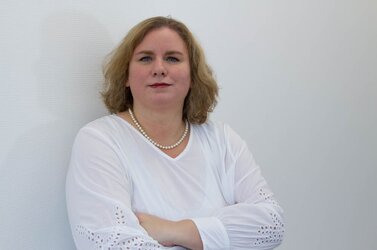
On Friday, 8 October, the European Campus Rottal-Inn (ECRI) will host the Science Bench for the second time. Professor Dr. Michelle Cummings-Koether will take a seat on the Science Bench between 9 and 11 a.m. and exchange views with the public on the topic of "Intercultural Competence as the Key to Success?".
Science does not always have to take place in the lecture hall. That's why ECRI brings science outside with the Science Bench, more precisely to the town square in Pfarrkirchen. The topic of intercultural competence in particular is an area that is becoming increasingly important in a society characterised by diversity, globalisation and digitalisation. It is an area that affects everyone and can also harbour faux pas alongside opportunities.
Prof. Dr. Cummings-Koether is an interculturalist and deals extensively with intercultural management and communication in an international environment. This includes areas such as project management and leadership skills, as well as soft skills. These are not only important at work or in international negotiations, but can also make a difference at the regulars' table at home. Interested citizens can ask Prof. Dr. Cummings-Koether directly how exactly. During a little chat on the science bench.
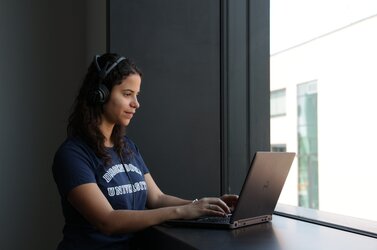
Fundamentals of medicine, economics and society, statistics and data analysis. These are just some of the courses offered through the early study programme at the European Campus Rottal-Inn (ECRI). Pupils from the 10th grade onwards can register now and get a taste of university life.
All those who would like to attend lectures while still at school can choose between different subject areas and topics in the winter semester 2021/22. Lectures are offered in the fields of tourism, engineering and digital health. In addition to the traditional lectures, the early study programme also offers general science electives (AWP), such as Business Storytelling. The lectures and AWPs all take place virtually and in the afternoon. Early students also have access to the entire range of courses offered by the virtual university of Bavaria (vhb). Via the vhb platform, they can also take courses, also from other universities, and complete them with a certificate.
An important prerequisite for early study is an interest in English, because the lectures at the international ECRI are all held in English. Those who take up this challenge can take an exam at the end of the semester. If you pass, the ECTS points (credit points in studies) you have earned can possibly be counted towards a later degree programme. If you realise that the effort is too great or that the subject is not right for you, you can easily withdraw at any time.
Registration for the early study programme is possible until Monday, 4 October, by contacting Andrea Ebertseder (andrea.ebertseder@th-deg.de or phone 0991/3615 8863). The early study programme is organised and supervised by the MINT team of the Deggendorf Institute of Technology. More information on the early study programme, the application process and the complete course programme can be found on the internet at www.th-deg.de/fruehstudium.
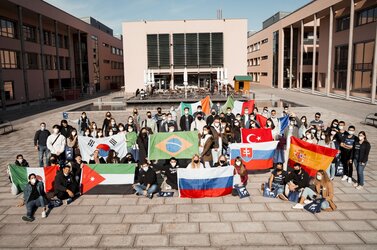
For the first time since the Corona pandemic, a large number of international exchange students have returned to campus at the Deggendorf Institute of Technology (DIT). They are attending the orientation weeks to prepare for the start of their studies on 4 October. They are being looked after by the International Office team.
Almost 60 of 76 international exchange students who will be studying at DIT for the winter semester 2021/2022 were there. Some of them have been in quarantine for several days. Thanks to the university’s shopping service and welcome packages, however, they survived this well and are now looking forward to their first impressions in Deggendorf. Eight exchange students are completing their stay abroad at the European Campus Rottal-Inn in Pfarrkirchen. The international students, who are in Pfarrkirchen or had to start their semester abroad either in quarantine or from their home country due to the current entry regulations, will participate in the orientation weeks via live broadcast.
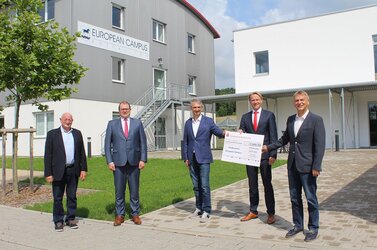
On Tuesday, 20 July, the European Campus Rottal-Inn (ECRI) was pleased to receive a donation from the Bezirksverband der niederbayerischen Sparkassen to the ECRI’s Support Association. This will enable the campus to support projects and students in an even more targeted way.
Campus Director Prof Dr Horst Kunhardt, together with Dean Prof Dr Georg Christian Steckenbauer and Coordinator Georg Riedl, welcomed the two representatives of the Bezirksverband der niederbayerischen Sparkassen at ECRI. As chairman of the Bezirksverband, District Administrator Michael Fahmüller came to the campus together with the chairman of the Sparkasse Rottal-Inn, Martin Ruhland. In their luggage they brought a donation cheque for € 2,500 for the ECRI support association.
After the welcome, the visitors were given a brief overview of what is happening on campus and an outlook on the coming months at ECRI. At the moment, lectures are still held online or hybrid, but ECRI is trying to quickly switch back to face-to-face teaching despite planning uncertainties. This plan met with great approval from everyone involved. As Ruhland emphasised, ECRI contributes to the local economy and thus to the future of the region with its international campus, for which he is very grateful. Fahmmüller, who as the chairman of the Bezirksverband has particularly supported the donation of € 2,500, once again emphasised the importance of the campus in terms of manpower and cultural life in the region.
The ECRI support association has been active in supporting students in recent months, despite Corona. For example, the association supported the graduation ceremony or helped students who were in distress due to the pandemic.
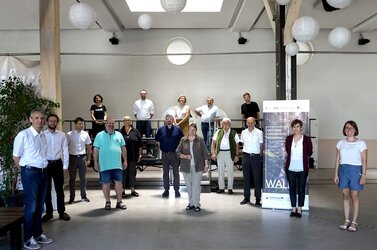
One of five specific pilot regions in Bavaria and Austria, Braunau-Simbach is a partner in the "INTERREG Project AB291". As part of the project, the region held a workshop with the aim of developing ideas and approaches for the health tourism use of forests in Braunau-Simbach. The lead partner is the European Campus Rottal-Inn (ECRI) in Pfarrkirchen.
As part of a joint workshop, the five-member project team together with Georg Bachleitner from the Braunau-Simbach city, tourism and location marketing invited several stakeholders and experts from the fields of "forest, health and tourism" to the Simbacher LOKschuppen on Wednesday, 21 July. In addition to some local guests from Braunau-Simbach, workshop participants from supra-regional project partners and institutions were also welcomed, such as the Bavarian State Ministry in Munich, the State Forests Wasserburg or the Office for Food, Agriculture and Forestry in Pfarrkirchen.
With their local know-how as well as their many years of competence and expertise, the participants make an indispensable contribution to the joint development of ideas and approaches on how forest spaces can be used for health tourism in the specific context of the Braunau-Simbach pilot region. The premise of all joint considerations and efforts is always to be able to create added value for local providers and stakeholders as well as visitors and guests without damaging natural resources.
In joint presentation and discussion rounds as well as in targeted group work on various project topics, the 17 workshop participants gathered important insights and assessments on possible target groups, forest-related offer possibilities or necessary structures and partnerships that are fundamental for a sustainable use of forests in the future. The workshop was hosted by Prof. Dr. Christian Steckenbauer, Dean of ECRI and experienced tourism expert.
The results of the workshop will be used to take a further step towards deriving specific offers for the Braunau-Simbach pilot region, but also to make them transferable and applicable to corresponding destinations together with findings from the other four pilot regions. Georg Bachleitner also sees this as an important step for the future: "The sustainable, health tourism use of forests, especially in regions for which forest use seems commonplace anyway, will be a future-oriented challenge for destinations".
In this ambitious project, an interdisciplinary, cross-border project consortium consisting of a total of 14 renowned partners is approaching the topic of "forest, health and tourism" from different angles and is jointly developing sustainable approaches in five selected pilot regions (in addition to Braunau-Simbach, also Tennengau, Bad Birnbach, Neureichenau, Traunsee-Almtal) as to how local forest areas can be used for health tourism and to create added value.

Under the leadership of Prof. Dr. Thomas Spittler, the European Campus Rottal-Inn (ECRI) is breaking new ground in virtual teaching formats together with the Catalan University of Vic (UVic) in Spain.
Together with Juan Antonio De Los Cobos and Montse Romera Mas from UVic, Prof. Dr. Thomas Spittler and Anna Schmaus-Klughammer, LLB (hons.) from ECRI conducted a teaching project on e-health with students from Spain, Deggendorf and Pfarrkirchen. A total of 30 students from Nursing and Physiotherapy and Health Informatics took part in the project from home.
At the beginning, all relevant contents on e-health, serious games and gamification, law and ethics as well as robots in nursing were gone through. Afterwards, the students were given a concrete task to apply the knowledge they had learned in practice. In six internationally mixed teams, each consisting of equal numbers of students from Spain, Deggendorf and Pfarrkirchen, the students were to implement the use of gamification in a concrete example. The task was to support a patient with a new hip joint, who had to reactivate his motor skills after surgery, in his rehabilitation by playing games. For this, the students had to research to find out which measures are recommended after such an operation. Based on this, they had to find solutions on how to advance recovery with the help of gamification or a concrete game. Legal aspects and the question of whether results that the patient achieves in the game should also be recorded in the patient's electronic medical record and whether this makes sense or not were also important.
The students developed a wide variety of ideas and rehabilitation games during the project. For example, a virtual pet was created whose state of health adapts to that of the patient. If he achieves good results during the exercises because his condition improves, the virtual pet is also healthy and happy. If the patient regresses, the pet also shows a deterioration in health. Other ideas included the integration of artificial intelligence to optimise exercise progress and thus help the patient recover more quickly, but also the use of virtual reality elements and even a connection between the exercise bike and an app.
The positive feedback from students and teachers as well as the excellent international virtual collaboration rounded off the collaborative teaching project. With the success of the first collaboration in mind, the participants are already planning the next joint project.
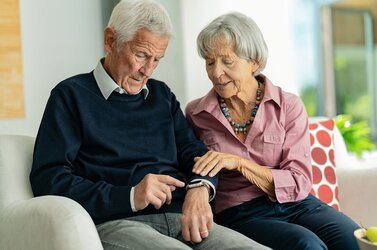
The European Campus Rottal-Inn (ECRI) of the Deggendorf Institute of Technology (DIT) offers with the newly launched Adult University all education-seeking adults the opportunity to listen to scientific lectures from research areas at DIT. The lecture “DeinHaus 4.0 – Länger Leben Zuhause mit Technikunterstützung” on 22 July will kick things off and is open to everyone interested.
Getting older catches up with us all at some point. Having to leave your own home because of it is a nightmare for most people. To counteract this in the future, DIT is looking at digital assistance systems and how they can make everyday life easier for seniors in the “DeinHaus 4.0” project funded by the Bavarian State Ministry of Health and Care. In a one-hour lecture as part of the Adult University, Prof Dr Horst Kunhardt will go into detail about the project and the individual aspects. Particularly exciting is how digital helpers can support the residents. Participants of the lecture at the Adult University will hear about the possibilities which already exist in this are, how “DeinHaus 4.0” is used in practice and which scientific findings are implemented in the project, and much more. Using the concrete example of “DeinHaus 4.0”, Prof Kunhardt will discuss the challenges of ageing and how they can be mastered with the help of science and digitalisation.
The lecture will take place on 22 July at 5 pm at the ECRI campus in Pfarrkirchen. Prior registration is necessary for participation. Interested parties can register, either by emailing andrea.ebertseder@th-deg.de or by calling Andrea Ebertseder at +49 991 3615 8863. On the day of the event, participants’ contact details will be recorded on site via the app “darfichrein” using a QR code. If needed, ECRI staff will assist with this step. Other requirements for participation are wearing an FFP2 mask and social distancing.
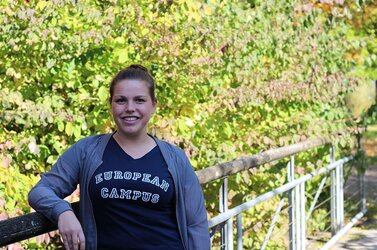
The last days of the application period at the European Campus Rottal-Inn (ECRI) are approaching. Prospective students still have time until 15 July to apply for a place in the coming winter semester.
The international campus offers a total of seven study programmes in the fields of tourism management, medical informatics and engineering. A special focus of ECRI is the Bachelor’s programme International Tourism Management / Health and Medical Tourism, which was awarded the ESPA Innovation Award by the European Spa Association (ESPA). Students learn about the specifics of business and tourism in this degree programme. In addition, key qualifications, implementation skills and the ability to innovate are developed. Students here have their fingers on the pulse of time and also get to the bottom of current trends from the scientific side in the modern and high-quality equipped eHealth and Smart Tourism Labs. The main focus lies on innovations such as artificial intelligence or eye tracking, which are increasingly being used in the tourism sector, especially in health and medical tourism.
For those who prefer to study computer science or technology, the bachelor’s degree programmes in Health Informatics, Industrial Engineering or Energy Systems Engineering are the right choice. For those interested in a Master’s degree, ECRI offers the study programmes Digital Health, Medical Informatics and Global Public Health. The latter is particularly exciting as it is a joint degree together with the Savonia University of Applied Sciences in Finland.
With English as teaching language, ECRI is the only completely English-speaking campus in all of Bavaria. This makes studying at ECRI in Pfarrkirchen particularly attractive for internationally oriented prospective students. Prospective students can find out all about the degree programmes and how to apply on the ECRI website: https://th-deg.de/ecri-en.
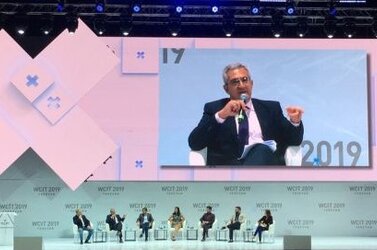
The Corona pandemic has demonstrated the challenges that global health problems can bring. In order to be able to cope with such problems in the long term, it is necessary to approach them from an international perspective of digital health. That is why the European Campus Rottal-Inn (ECRI) is offering a virtual workshop series with international experts from the healthcare industry in the run-up to DigiHealthDay-2021. The English-language workshops are free of charge. Those interested can now register at www.th-deg.de/digihealthday.
ECRI offers a total of five workshops on the topic of Digital Health in the DigiHealthDay-2021 series until mid-July. These are carried out by internationally recognised experts from Germany, the United Kingdom, India and the USA. These workshops will focus on patient safety in the context of digital health products, how radiology images can provide business insights, the importance of high-quality health data and its trusted use for health systems learning, artificial intelligence and big data analysis in healthcare, and the need for a telehealth accreditation program.
The virtual workshops are the prelude to DigiHealthDay-2021, an international online symposium, which will take place virtually on 12 November 2021. The events are aimed at everyone who is interested in digital health, whether academics, healthcare institutions, companies and start-ups, authorities or students. Further information about the event can be found on the homepage at www.th-deg.de/digihealthday.

On the occasion of the first anniversary of the cooperation between the European Campus Rottal-Inn (ECRI) and the FOSBOS Pfarrkirchen, Campus director Prof Dr Horst Kunhardt and Headmaster OStD Wolfgang Schneider met for an exchange. At the meeting, they reflected on the implementation of the goals set out in the cooperation agreement, summed it up and worked out further possibilities for cooperation.
Originally, attendance events were planned within the cooperation, such as mutual observation by teachers and lecturers, as well as cultural events. Since these cannot take place due to the prevailing pandemic, the meeting focused on the time after Corona. Headmaster Schneider and Campus director Kunhardt pushed for joint projects such as a poetry slam, language events or taster and trial lectures. After the pandemic, these are to become a permanent part of the cooperation and established as regular measures. Both partners are already looking forward to even more intensive cooperation.
The cooperation between ECRI and FOSBOS is intended to promote pupils and students in the STEM field. In addition, the cooperation between the two institutions will intensified and promoted in educational and professional terms. Intercultural exchange and the improvement of foreign language skills is an important goal of the cooperation agreement, along with the reduction of the “dropout rate” in the degree programmes.
OStD Schneider expressed his gratitude at the meeting for the uncomplicated, friendly interaction. Thanks to the use of the lecture rooms at ECRI, the FOSBOS classes could be held smoothly even during the pandemic.
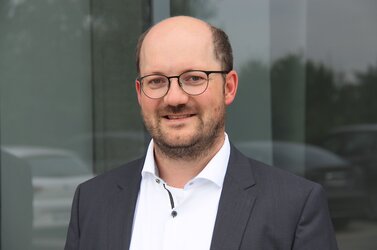
People want to stay healthy and active into old age, which brings with it increased illnesses for which we need an answer. This requires digital transformation in the healthcare system to bring prevention, diagnosis and treatment into harmony. Artificial intelligence (AI) plays a central role here, because more and more data is being collected and generated in the healthcare system. The problem: these have to be evaluated and put into context. AI can help with this. This is exactly what the new OPENvhb course "Health Data Analytics" by Prof. Dr. Thomas Spittler of the European Campus Rottal-Inn (ECRI) is about.
The course is the perfect introduction to the topic of data processing in the health sector. Here, prospective students and those interested in the subject from business and the health sector learn the basics of data analytics. Specifically, it is about the possibilities of what AI can do with data from the healthcare sector and how it can be used for prevention, diagnosis and treatment. Prospective students can familiarise themselves with the topic and find out whether studying health informatics at ECRI is an option for them.
In the English-language online course "Health Data Analytics", participants learn everything about data analytics in the health sector in 15 units of 45 minutes each and are rewarded at the end with a certificate of participation issued by the virtual university of Bavaria (vhb) and the Deggendorf Institute of Technology (DIT). Course contents include the analysis of different types and sources of health data, the evaluation of the quality of these data and appropriate interpretations of the meaning depending on the data source and intended use. However, ethical considerations and challenges in health data analysis are also covered in the course.
The course is free of charge and open to all interested parties. Enrolment takes place via the vhb platform. For more information and registration: https://open.vhb.org/blocks/ildmetaselect/detailpage.php?id=235
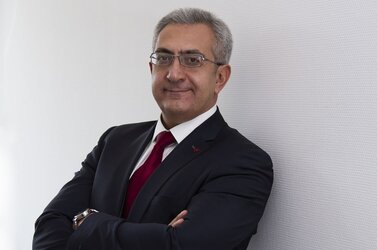
The European Campus Rottal-Inn (ECRI) has signed a partnership agreement with Healthcare Information and Management Systems Society, Inc. (HIMSS), the world’s largest Digital Health membership organization. The ECRI is the first academic institution in Germany to join the HIMSS Partner Innovation Exchange.
The cooperation with HIMSS is a huge step for the campus and offers several benefits for students, professors and staff of the ECRI. This includes free access to unlimited tools, resources, webinars and more at the HIMSS Member Center. Especially for students of Health Informatics, Digital Health or Global Public Health this is a valuable advantage and they also profit from the cooperation for their studies.
By signing the partnership agreement ECRI also became the first academic institution in Germany to join the HIMSS Partner Innovation Exchange. This is an initiative to convene key digital health influencers to further the organization’s mission to transform the health ecosystem through information and technology. The HIMSS Partner Innovation Exchange promotes a mutually beneficial collaboration for applicable benefits and services including also educational opportunities among others. For ECRI this is particularly important in regards to the DigiHealthDay series and its promotion among relevant audiences.
HIMSS is a trusted coach, advisor and thought leader in health information and technology. It is the largest Digital Health membership organisation in the world encompassing more than 80.000 global individual members, 650 corporate members, and over 470 non-profit organizations. It is a one-stop-organisation for all Digital Health-related information, knowledge and advice, and offers an unrivalled perspective on what’s happening in the world of health and care IT.
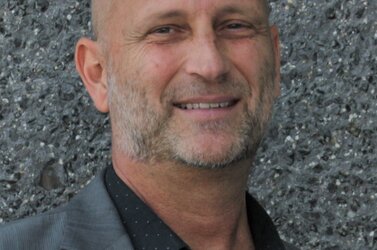
The European Campus Rottal-Inn (ECRI) of the Deggendorf Institute of Technology (DIT) has focused on sustainability since its foundation and has now been accepted as a cooperation partner of the German Sustainable Building Council (DGNB) in Europe's largest network for sustainable building.
For the ECRI, the cooperation offers new opportunities in the field of sustainable planning and building, from which the students of the Master's programme "Healthy and Sustainable Buildings" in particular will benefit. All of the society's teaching materials are available to them via the DGNB's knowledge platform. In addition to teaching units in online courses, this also includes modular topic blocks that can be used by the professors in classroom teaching.
The cooperation also provides direct practical relevance and knowledge exchange with other DGNB cooperation partners. This means that ECRI and its students have access to a wide range of opportunities and a large network. This is an important advantage for the students, especially with regard to their entry into professional life. In addition, they have the opportunity to take the exam to become a "DGNB Registered Professional" and thus clearly position themselves as future experts in the field of sustainable planning and building. This not only offers advantages on the job market, but also saves students time and money if they wish to train as DGNB consultants or auditors later in their careers.
Prof Dr Michael Laar, who as an architect has been a member of the DGNB since its founding, was accepted into the pool of experts in 2018 and coordinates the cooperation, sees a win-win situation in the partnership as the head of the "Healthy and Sustainable Buildings" degree programme: "Our students get preferential access to this important benchmarking system, while the DGNB receives national and international multipliers for its certification system for 2nd generation sustainable buildings. The German system is characterised in particular by a very holistic approach that takes into account not only ecological, economic, socio-cultural and functional quality, but also technical quality as well as process and site quality. It is precisely the understanding of the very complex interrelationships of sustainable building that this imparts that forms the basis for truly successful planners of sustainable buildings. And to train very successful planners of sustainable buildings later on is our aspiration."
The DGNB, based in Stuttgart, is Europe's largest network for sustainable building. It was founded in 2007 and has been campaigning for a sustainable built environment ever since. The focus of the non-profit organisation is the future topic of "sustainable planning and building". On behalf of the German government, the DGNB also developed the BNB sustainable building assessment system, which has been mandatory for federal buildings for several years and is also increasingly being used at the state level. The new ECRI building, for example, is to be certified with this system.
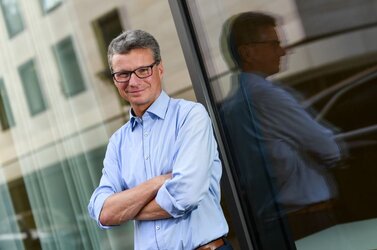
The Deggendorf Institute of Technology (DIT) is being allocated five new professorships. Part of the funding comes from the High-Tech Agenda Bavaria, the Free State’s major future and technology offensive, and part from additional resources that Science Minister Bernd Sibler was able to obtain for the Bavarian universities of applied sciences and for the technical universities in the budget negotiations. The Minister made the announcement today in Munich.
Three of the five professorships are earmarked for the European Campus Rottal-Inn at the Pfarrkirchen location, which will also receive three additional positions for science support staff. The other two professorships and two positions for science support staff are earmarked for the Technology Campus Cham. “It is not least thanks to the high quality of the Pfarrkirchen study location that the European Campus has gained an excellent reputation worldwide in just a few years. With the additional three professorships, we can now massively strengthen this Lower Bavarian success model beyond the already planned new building by further expanding the degree programmes offered,” explained the Minister of Science. “The successful model of the Technoloy Campus (TC) Cham with its thematic focus on mechatronics and automation will also benefit with two additional professorships, a clear commitment by the Free State to the importance of the campus for applied research and its great significance for the regional science, business and industry location,” Sibler continued.
Funds from the Bavarian High-Tech Agenda Bavaria

Following the success of the first DigiHealthDay (DHD) at the European Campus Rottal-Inn (ECRI) last year, the Campus is now continuing the international symposium as an annual event. The DHD-2021 will take place virtually on November 12. A series of pre-event workshops will be held in the run-up to the DHD-2021. The first workshop will take place next week, on April 26. Registration for the workshops and the event is now open.
The DHD-2021 offers a comprehensive programme on modern Digital Health and its role in tackling global health problems from a uniquely international perspective, with a special focus on Digital Health Education. It will include Keynote Talks by top German and international experts, an extremely interesting Panel Discussion on the “Future of Digital Health Data”, as well as oral and poster scientific presentations, student thesis and project presentations, and (virtual) networking possibilities.
The DHD-2021 is preceded by a series of virtual workshops, which will take place in spring and summer. The extensive programme with a total of eight workshops has something in store for everyone interested in Digital Health and related issues. Topics range from Data Integration and Interoperablity, Human-Computer Interaction in Digital Health, Digitalisation of Healthcare in Germany and in the US to Digital Imaging and Artifical Intelligence in Radiology, to name but a few.
Everyone with an interest in Digital Health such as researchers, healthcare professionals, businesses and start-ups, authorities or students is invited to participate in ECRI’s DigiHealthDay-2021. For further information about the event and workshops, please visit the homepage www.th-deg.de/digihealthday.
The first DHD last autumn was attended by 348 participants from 59 countries. Due to the great success, the event will be held annually from now on. The event series is organised and conducted by Prof. Dr. Georgi Chaltikyan.
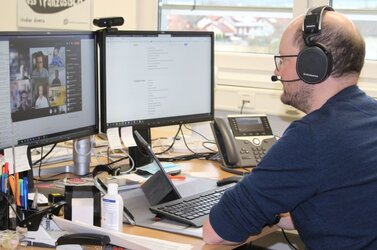
On Monday, 12 April, around 40 participants met virtually for the Interreg workshop "Cross-border Health Care" and achieved a very good success on this day, which will contribute to research work in the field of cross-border digital health in the future.
The workshop was organised by Prof. Dr. Thomas Spittler and Anna Schmaus-Klughammer, LLB (hons.) from the European Campus Rottal-Inn (ECRI) in cooperation with Thomas Kern from the FH Oberösterreich. They invited experts from health institutions, business and science to develop ideas for joint projects.
At the beginning of the workshop, the approximately 40 participants were introduced to the topic of cross-border health through the presentation of the Interreg project INDEED, which has set itself the goal of advancing and improving the medical care of dementia patients in the European area. INDEED was kindly presented by Prof. Dr. Alexander Kurz and Lea Pfäffel, both from the Technical University of Munich.
This was followed by three workshops in which the participants delved deeper into the topic. Digital processes - the path to better health or the transparent human being?" dealt with digital health and digital processes in the healthcare system and the question of how a patient summary file can be implemented across borders. Then the topic of health and AI was combined and the question was asked whether bioinformatics and medical informatics, explainable artificial intelligence and core clinical processes can be the solution for a better life. Finally, it was about sensor technology for medical applications and whether these can be used as a source for innovative therapy and prevention.
This was followed by the creative part of the day with brainstorming and finalising the research question. The participants from companies and clinics worked in a highly concentrated manner and also networked between the workshop topics, which gave the process further momentum. In the end, eight concrete research questions emerged, which is an above-average success for a workshop of this kind. These research questions now need to be translated into project proposals in order to advance cross-border health care.
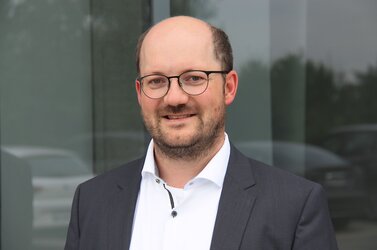
The application period for the winter semester at the European Campus Rottal-Inn (ECRI), the international faculty of the Deggendorf Institute of Technology (DIT), starts on 15 April. In addition to the existing degree programmes, prospective students can also apply for the new Master's programme in Global Public Health.
Especially in times of a global pandemic, it has become clear how important health is worldwide. The Global Public Health programme takes these requirements into account. As a joint degree together with Savonia University in Finland, the programme is internationally structured and addresses the challenges of global public health.
Students learn during the Master's programme Global Public Health how health can be managed and promoted in the global health system. The programme focuses on health care in industrialised countries as well as in developing regions worldwide. It also looks at the connections between health problems and culture, politics, human rights and ethical values. These topics are explored in greater depth in the Winter School at ECRI and in the Summer School at Savonia University in Finland. The students benefit from the expertise and intensive research on digitalisation in healthcare of Prof. Dr. Thomas Spittler, the head of the programme, and his team.
With the Master's degree, graduates of the Global Public Health programme have a wide range of career opportunities open to them. They can either join governments, non-governmental organisations, international organisations such as the WHO or consultancies. But also positions in health management, health promotion, human resource management, administration, marketing and controlling or occupational health care are possible for students of this degree programme after successful completion.
With a joint degree and the division between Germany and Finland, the Master's programme is a unique joint degree that has not existed in this form at DIT before. This is an absolute added value, especially for an internationally oriented degree programme that has set itself the goal of taking on global challenges and improving the health system worldwide.
In addition to the Master's programme in Global Public Health, the Master of Digital Health will also start in the coming winter semester. Those who want to do a Bachelor's first have the choice between Health Informatics, Industrial Engineering, International Tourism Management / Health & Medical Tourism and Energy Systems Engineering. Information on the degree programmes is available on the ECRI website at https://th-deg.de/ecri.
With English as the language of instruction, ECRI is the only completely English-speaking campus in the whole of Bavaria. This makes studying at ECRI in Pfarrkirchen particularly attractive for internationally oriented prospective students, for whom all doors are open after successful completion.
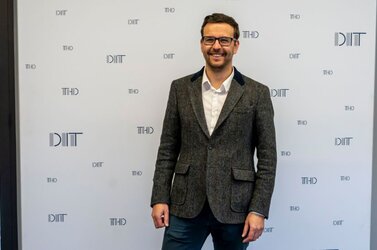
The year 2020 has drawn a great deal of attention to the topic of health and created new political and legal framework conditions for digitalisation in the health sector. How these can be used as quickly as possible for the benefit of all involved and how Germany can catch up in the area of digitalisation in healthcare is the subject of Prof Dr Dominik Böhler’s research. He is a new professor at the European Campus Rottal-Inn (ECRI) of the Deggendorf Institute of Technology (DIT).
In his field of expertise, “Management in Digital Healthcare”, Böhler deals with the digitalisation of processes and digital business models in the healthcare sector. It is therefore not surprising that the past year was also a particularly formative one for Prof Böhler in professional terms. For him, the pandemic has shown that health is a valuable commodity and that the obvious “under-digitalisation” in the health sector creates many points of friction for all involved. However, in his eyes, this also offers immense opportunities for young talent with new ideas. Seeing how start-ups in the health sector bring new technologies to a supposedly highly regulated market and how the confidence of individuals with a strong vision can positively change the reality of many people fascinates him every time.
When it comes to start-ups and new ideas, Böhler knows what he is talking about. After studying business administration and earning his doctorate in business informatics on the topic of “What influence does AI have on organisations?”, he took over as head of entrepreneurship education at UnternehmenTUM. There he dealt with the question of how project-based learning can work in large numbers and high quality and accompanied over 2,000 project teams and over 150 start-ups. He was also involved in setting up the Digital Health Summit in Munich.
At DIT, he wants to advance applied research in the health sector quickly and pragmatically and make healthcare in rural areas and the global south more digital and better. He has also set himself the goal of developing new business models in the health sector with established companies. For Böhler, there are too many hurdles, especially in higher education and health care, and too few who really break them down. We need more courageous people like Bertha Benz, who led the way at the beginning of the last great transformation: get on and go. Because especially in a time of transformation, as is currently the case, holding on to the tires and tested is, in his opinion, a bad strategy.
As a pragmatic, performance-oriented idealist, Prof Böhler finds it a sense of achievement to achieve goals together with little resources and a lot of enthusiasm. He should thus easily succeed in inspiring, challenging and encouraging his students. His wife and two sons provide the necessary grounding for all these ideas.
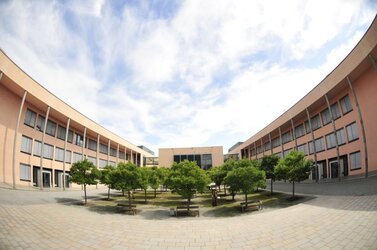
Artificial intelligence, tourism, civil engineering, media technology or something completely different – with more than 60 different Bachelor’s and Master’s degree programmes, there is something for everyone at the Deggendorf Institute of Technology (DIT). Those who want to get hold of one of the study places for the winter semester 2021 for start in October can apply for it from 15 April until 15 July.
Since 1994, DIT has developed into one of the most successful new universities of applied sciences founded in the 1990s. Today, more than 8,000 students study at the campuses in Deggendorf and Pfarrkirchen. The range of courses is constantly being expanded. New in the winter semester 2021, for example, are the English-language Bachelor’s programme Artificial Intelligence, the part-time German-language Master’s programme Digital Business Engineering, the Bachelor’s programme Interdisciplinary Engineering Sciences and the Master’s programme Applied Sports Sciences. Because there are more and more degree programmes at DIT, undecided students will be able to try out various subjects and also studying in general for the first time from the winter semester 2021 in form of an orientation study programme. In one to two semesters, young students will have the opportunity to get a taste of various degree programmes. Prerequisites for the orientation study at DIT are a university entrance qualification, e.g. the Abitur, and a letter of motivation. Interested students can apply via DIT’s applicant portal. Even if it is not currently possible to come to the campus in person, the university offers a wide range of online services to provide information about the degree programmes and campus life in Deggendorf. Prospective students can take part in webinars on degree programmes or on student finance. The Centre for Student Advise also provides support on individual degree programmes via phone, WhatsApp or video chat.


